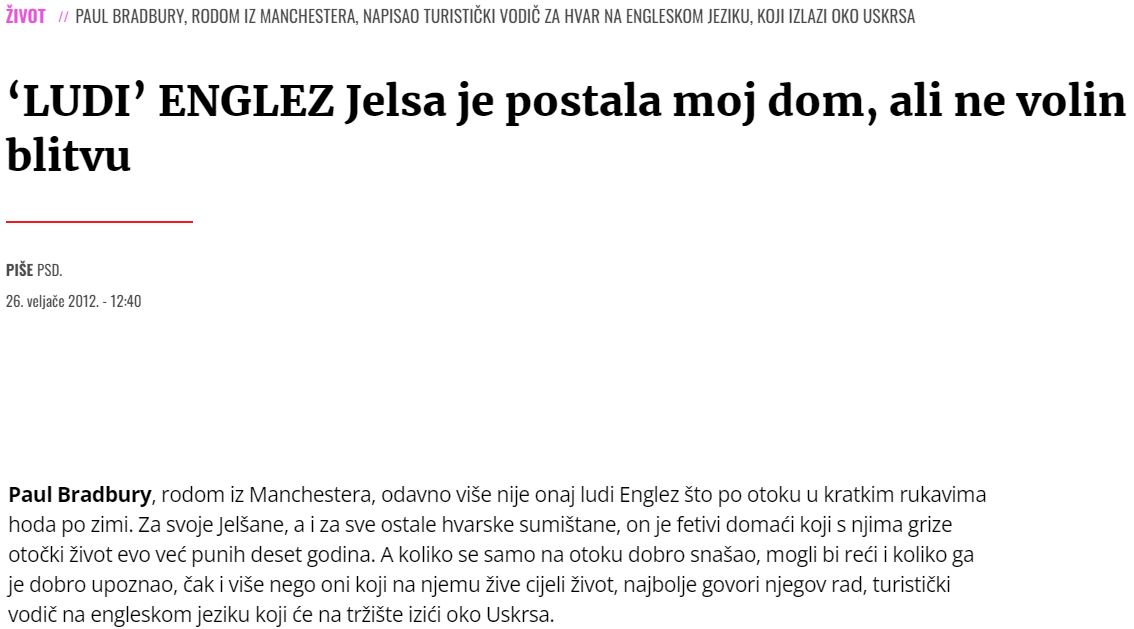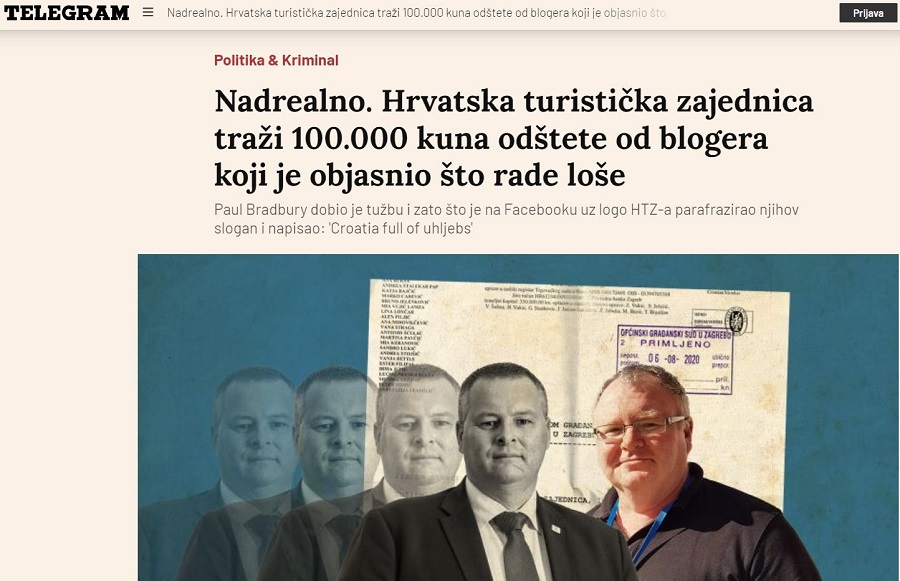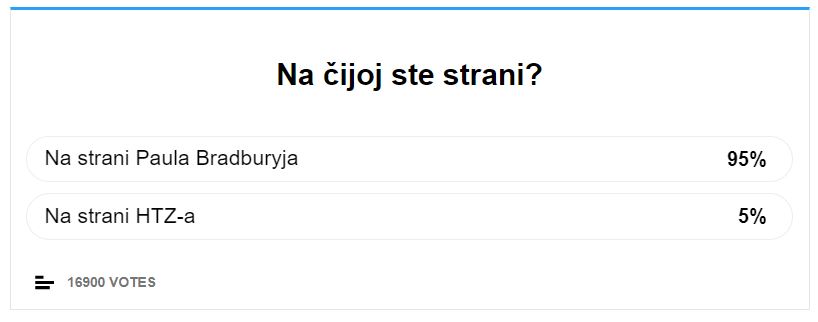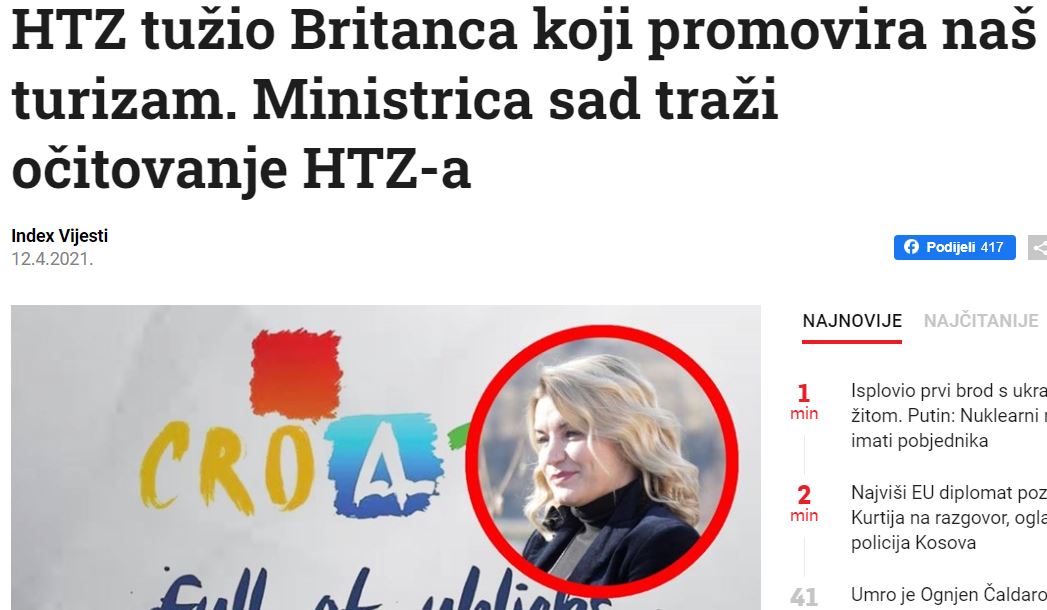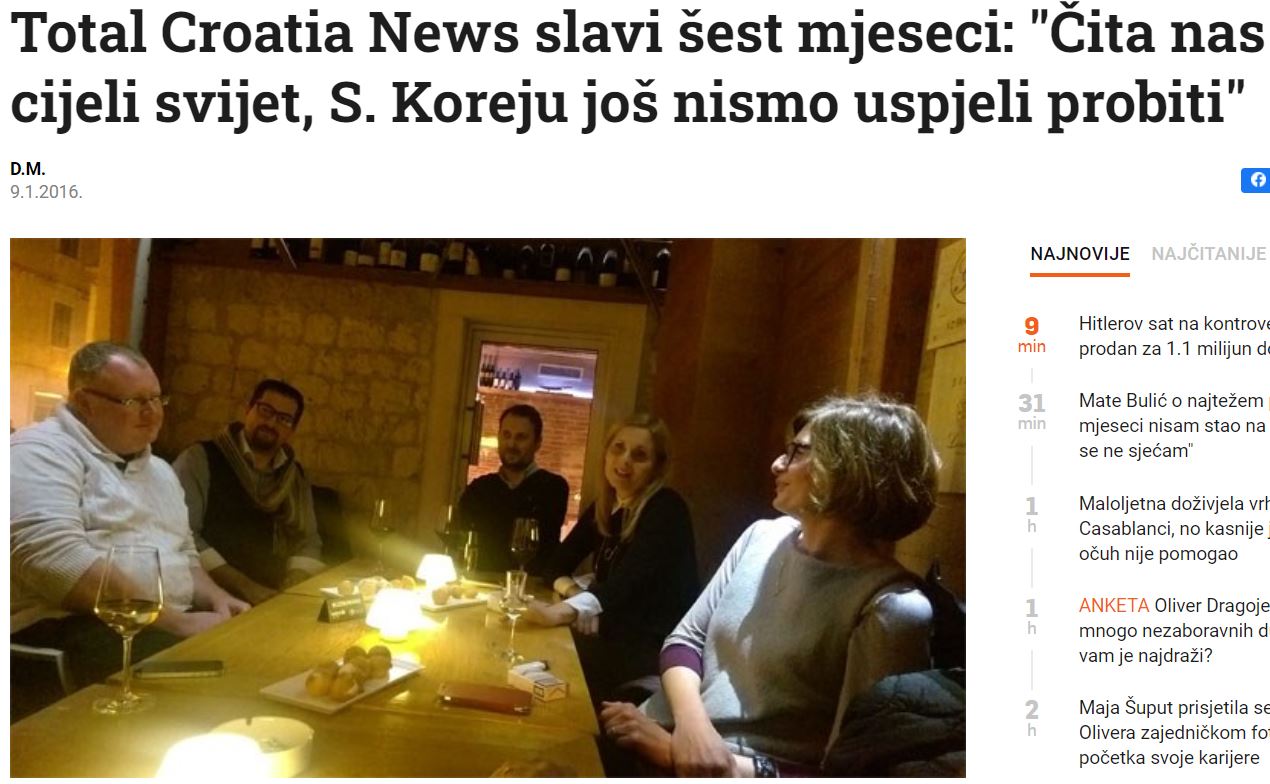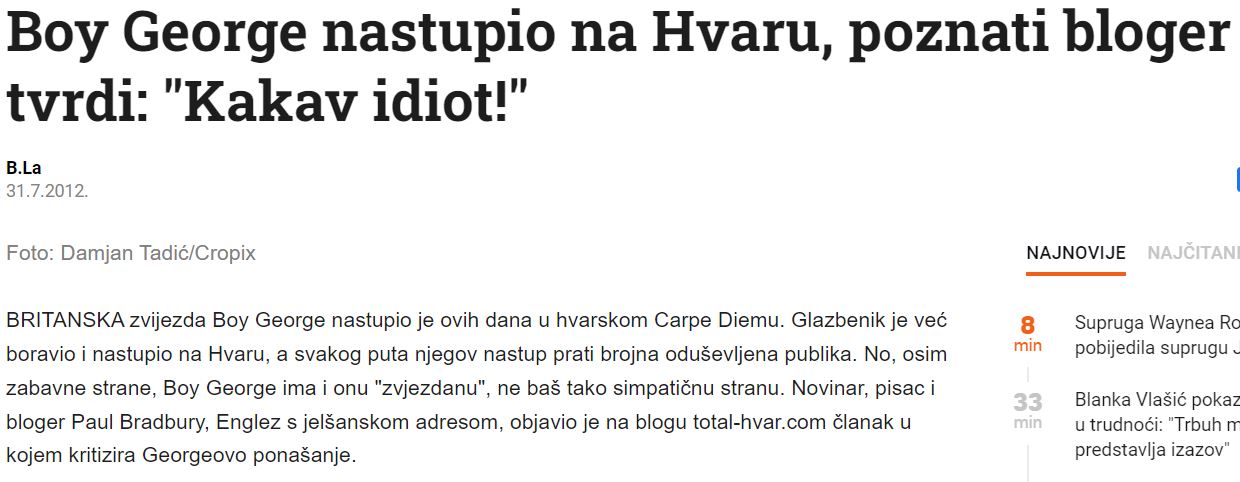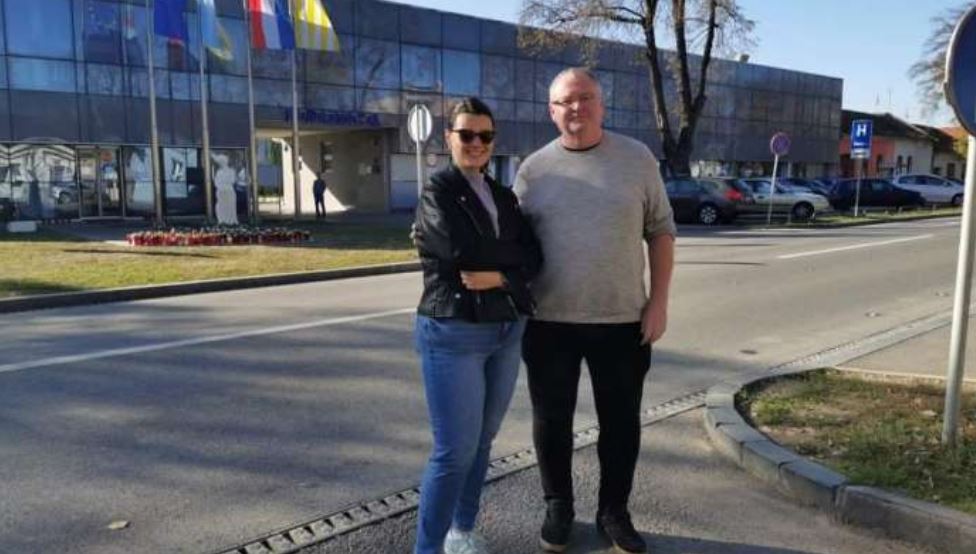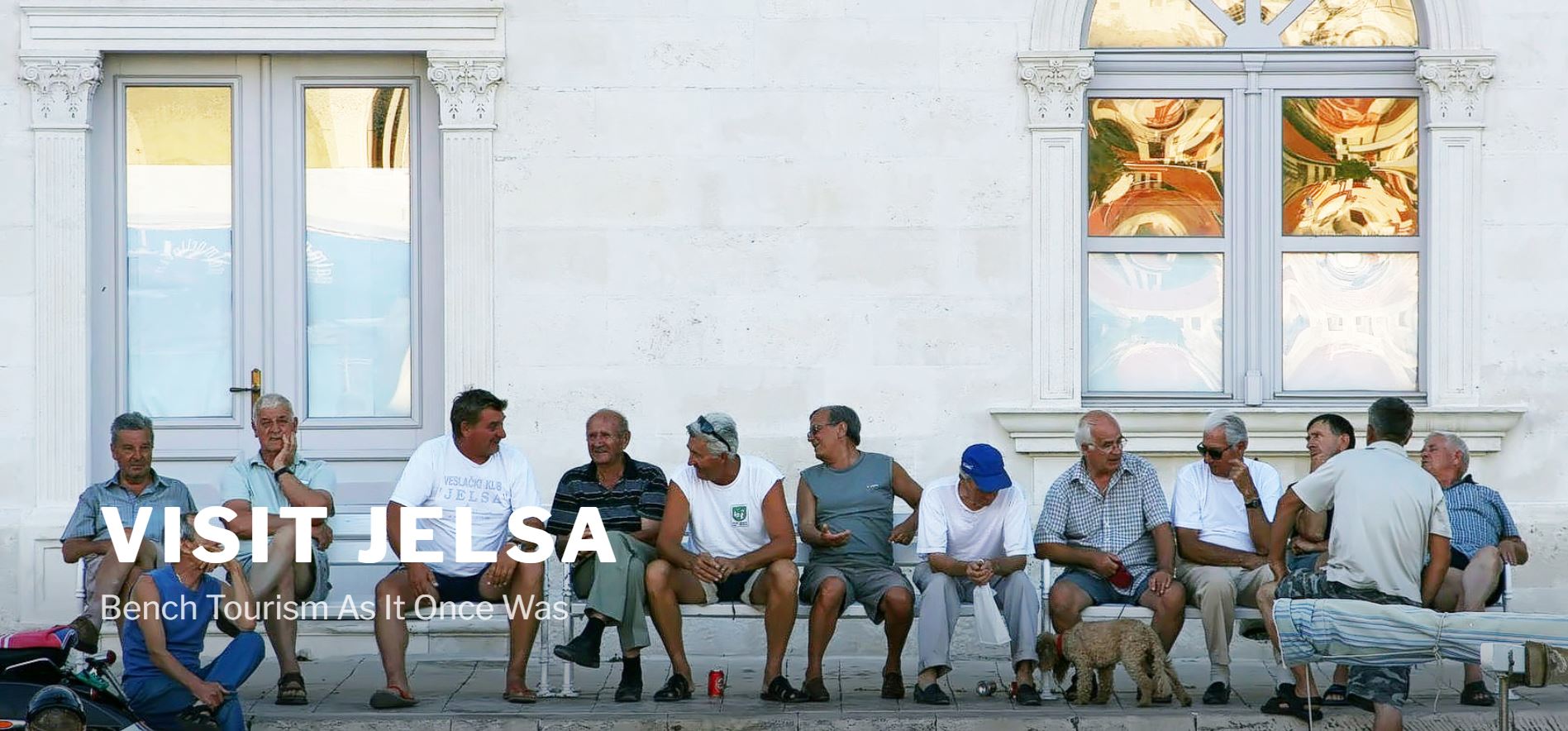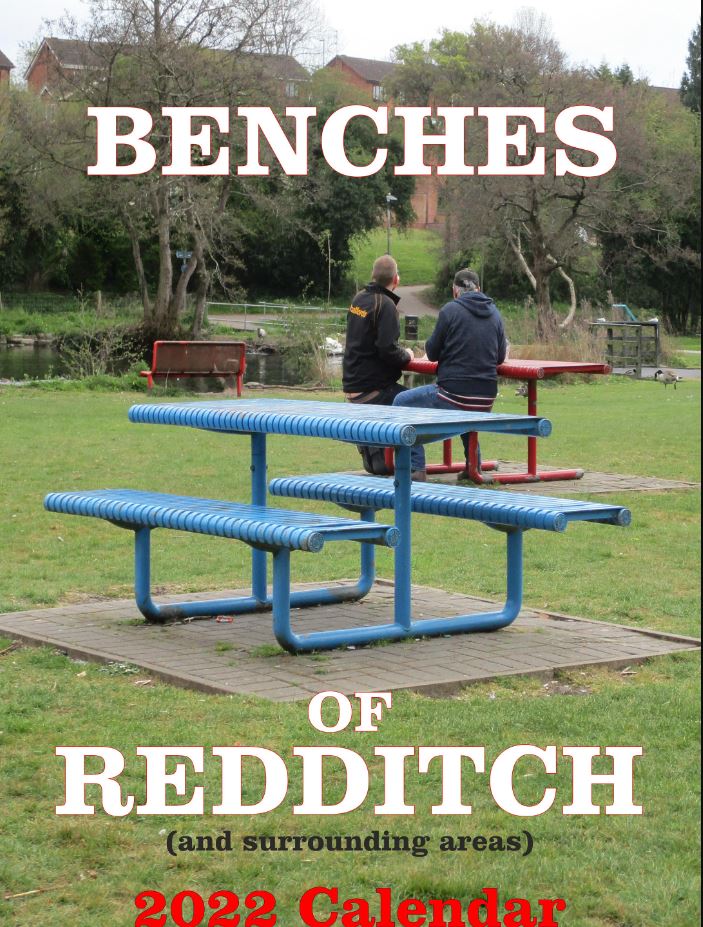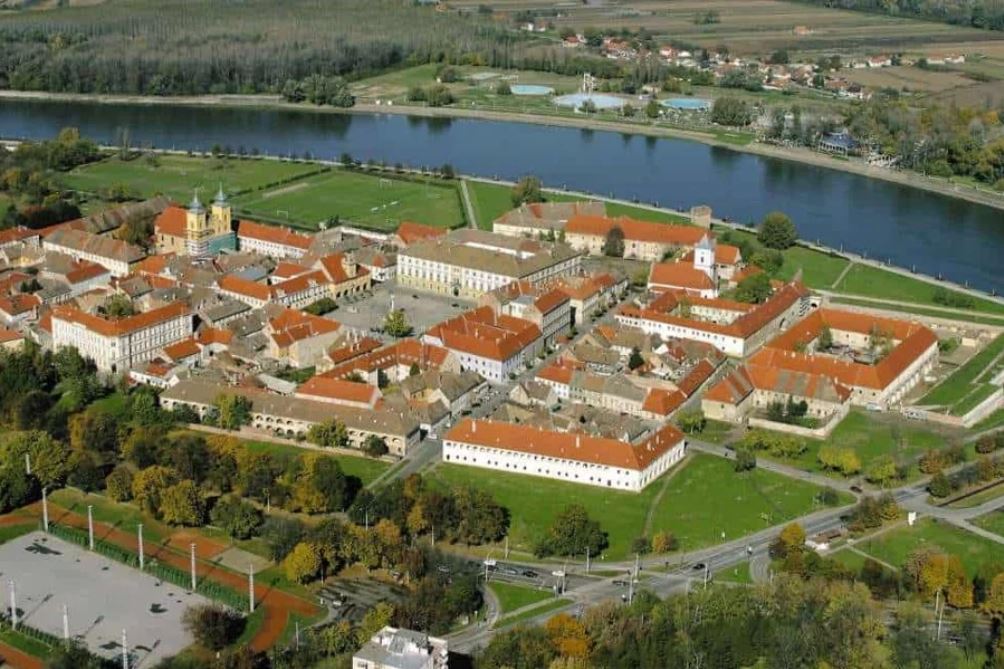20 Ways Croatia Changed Me in 20 Years: 20. Frane, Moj Punac (Father-in-Law)
August 6, 2022 - Twenty years a foreigner in Croatia. Part 20 of 20 Ways Croatia Changed Me in 20 Years. The man to whom I will dedicate my book, my father-in-law, Frane.
Twenty years and 19 ways in which Croatia has changed me. I must confess that I have really enjoyed writing this series about my last two decades in Croatia, and the chance to celebrate all that Croatia has given - and continues to give - me. If you are new to the series, you can start at the beginning with doing business in Dalmatia.
The series has been a little self-indulgent, perhaps, but I have been egged on by the rather large interest that the series has generated. I can't remember the last time my inbox had so little abuse (trolls, please come back, I miss you) and so many heartfelt comments from total strangers.
The series started taking on a life of its own. At some point, the idea of turning it into a book was born. When a Croatian lady in Holland said she would buy 40 copies of the book for her foreign colleagues in the Zagreb office so that they could begin to understand the mysteries of living in this wonderful land, one thing led to another, and Living in Croatia, a Foreigner Survival Kit was born.
It will be published by the end of October in time for Christmas, a collection of these articles, as well as more commentary and some practical sections for those looking to make the move to Croatia. It will also be dedicated to the subject of this, the last of the 20 Ways Croatia Changed Me in 20 Years.
My initial subject for the final chapter was going to be the Croatian lifestyle, but in some ways, the lifestyle has already been covered. And I wanted to find room to pay tribute to an extraordinary man who has had a big impact on my time here, and who sadly passed away suddenly earlier this year - my 'punac' (father-in-law) Franko, aka Frane. A truly exceptional man who lives on in the hearts of many on Hvar and beyond, and who will live on a little with this book, which I am dedicating to him and his lovely wife Zorica.
There is a lot I could write about Frane, but I will leave it with my words on Facebook soon after his funeral.
****
Who are the people you respect the most in life?
One of the best things that has ever happened to me was getting new parents at the ripe old age of 33, an amazing couple who treated me as their own when I started dating their daughter almost 20 years ago. I want talk a little about my father-in-law/father, Franko.
The first time we met, you were in a suit. I never saw you in a suit again. You had invited me to lunch so you could meet the strange foreigner who was dating your eldest daughter. Even though we had no language in common, you and your family made me very welcome and we laughed a lot. When you left the table after lunch, you shook my hand, looked me in the eye and said: My first impression of you is positive, young man. I hope it will always be that way. I am not sure if it stayed positive, but my impression of you certainly did.
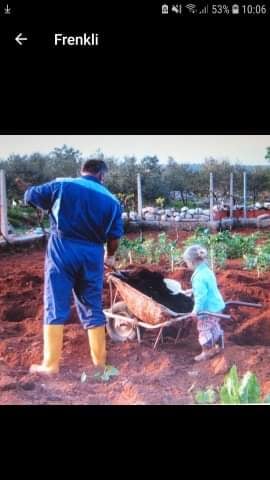
The second time I met you, you took me to look at property for sale, and then for a tour of your beloved 'polje' (field). You showed me your olive trees, your vines, your vegetables, and your plans for the future. And then you picked a couple of oranges, eating one in four bites without peeling it. I thought this was some kind of manly challenge (I failed). You gave me a bag of salad and vegetables to take home. It was the first example of your 19 years of giving. The last was 20kg of oranges that you delivered to us in Zagreb just a couple of weeks ago.
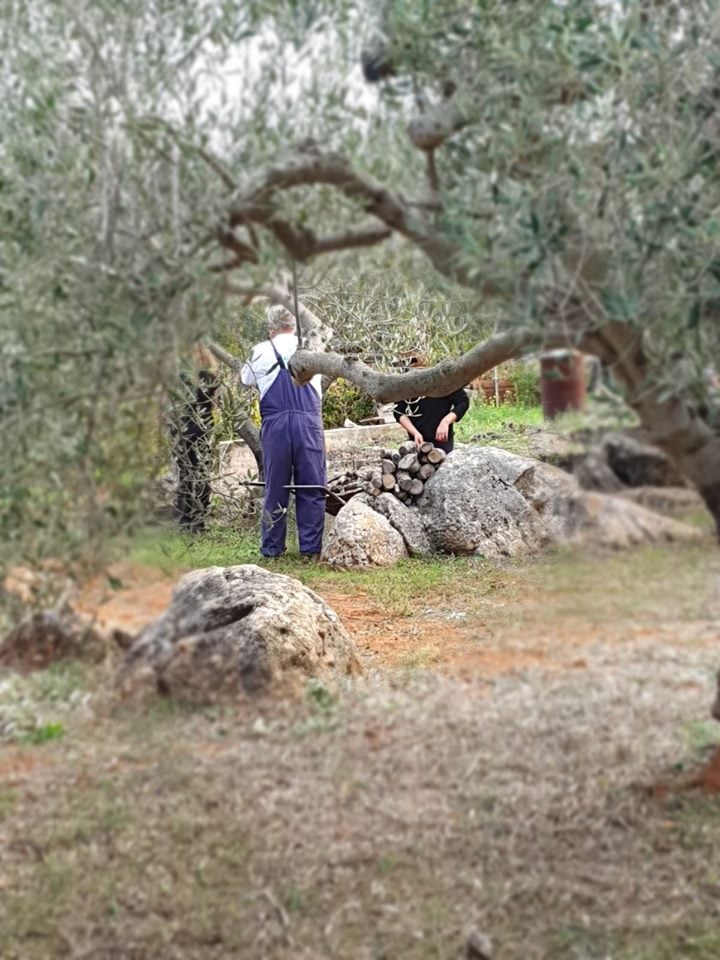
When we moved into the apartment above yours, you took me to the garage and showed me three stainless steel tanks, each filled with 200 litres of your excellent red wine. On one of the tanks was the word POL - this one is for you, Pol.
I never got to tell you how much respect and appreciation I have for you and your amazing wife Zorica. How together you achieved so much more in life than I ever will, and how privileged I felt to be included in your wonderful family.
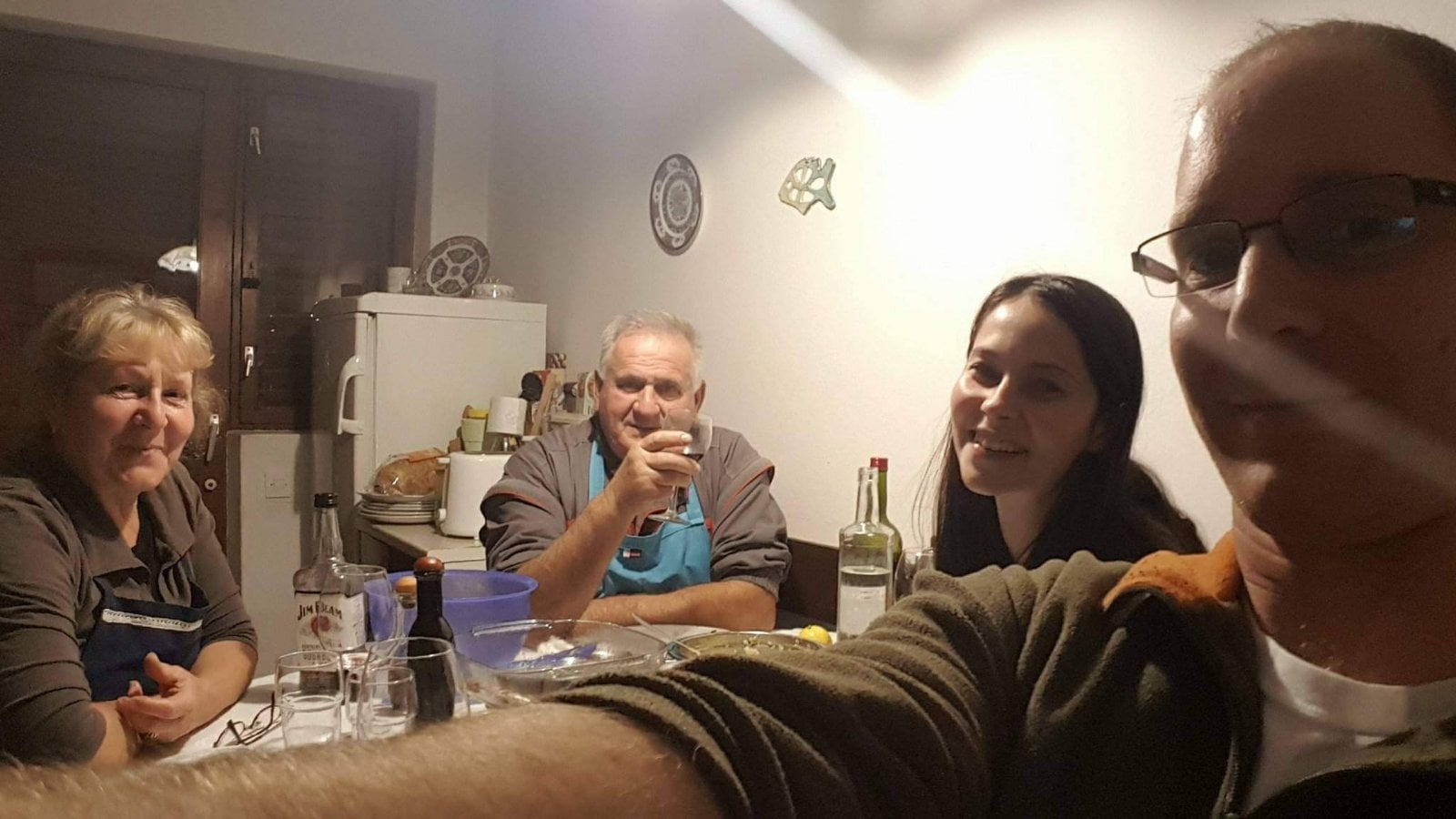
You were one of ten kids living in relative poverty. One pair of shoes handed down, 6 km walk to and from school each day, never any luxuries. And you worked, like no man I have ever met, for a better and brighter future for your children. Together with Zorica, you raised four of the nicest people I know. Together you built a magnificent house and tourism business, and you put each and every one of your kids through university. You may not have had the opportunity, but you made sure that they would have opportunities in life not afforded to you.
And you did all this without ever borrowing a single kuna. If you could not afford it, you would not buy it. The only time you were ever short of money was trying to put your fourth child through university. We bought the apartment above from you which paid for that, and you were then happy that you could fulfil your wish to put them all through university. You got new neighbours above to whom you and Zorica showed nothing but kindness, and our kids really had the best and most loving start to life, thanks to you two.
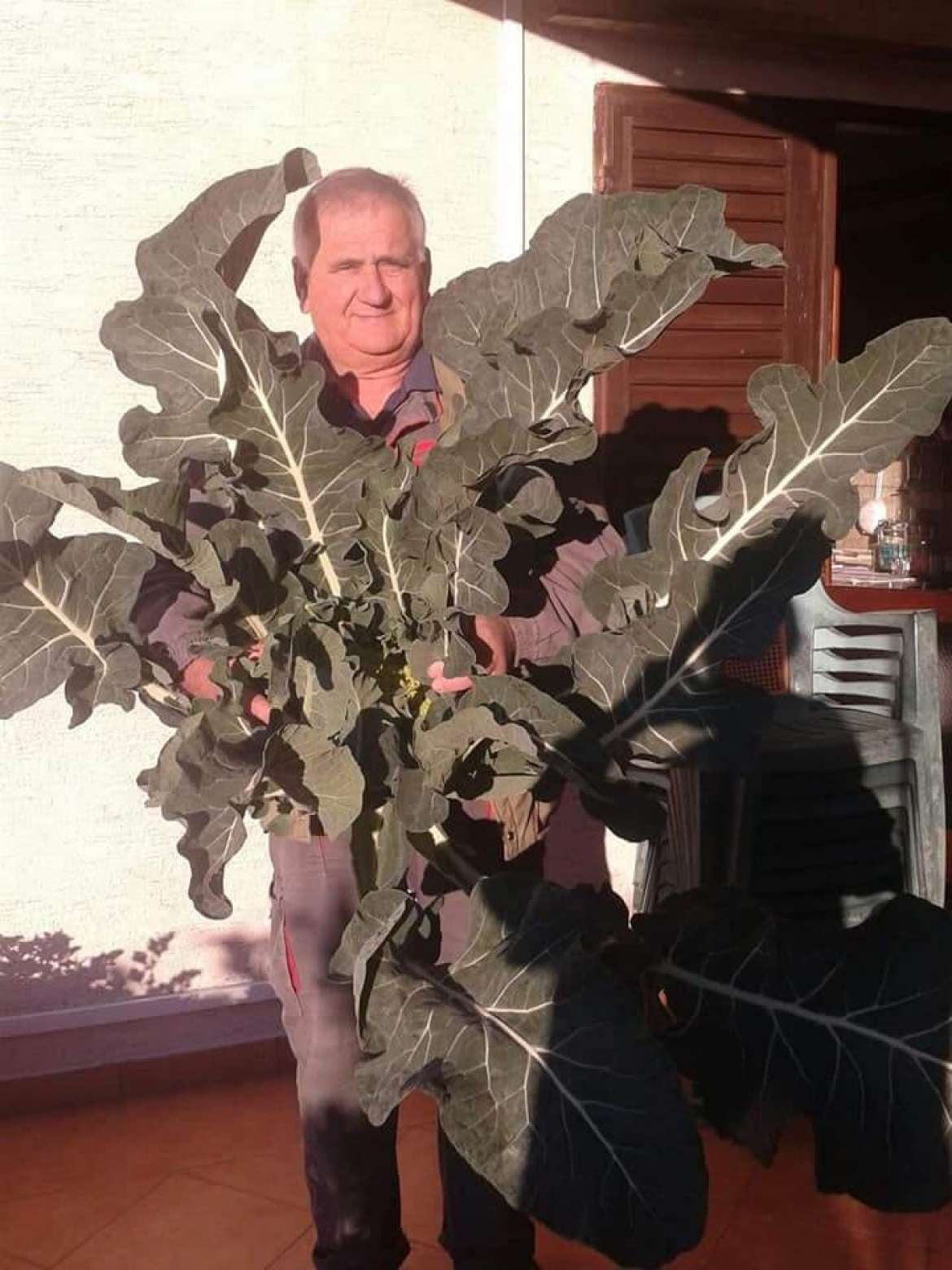
When war came to Croatia in 1991, you bought a piece of land to grow your own food to feed the family. That field became a huge part of your life, and the combination of your food and Zorica's cooking was a masterclass in delicious self-sufficiency. And for a boy whose vegetables grew in Manchester supermarkets, I am really grateful that you connected my kids to the soil from an early age.
I used to hate the olive harvest, but now I long for it, being part of your picking team, and enjoying your fantastic grills in your hacienda. Priceless moments and priceless memories.
Although you never asked for anything from anyone, you demanded a lot from your family. I sometimes wonder if I would feel the same about you if you had been my father from birth. Weekends working in the field were a childhood norm, while their friends would be playing with each other.
Tough love perhaps, made easier with the love and warmth of Zorica, who nurtured the kids, while supporting all you did while living in a house which was a construction site for years. Together, you installed values of decency, diligence and kindness, which they all show in exemplary fashion in their daily lives today.
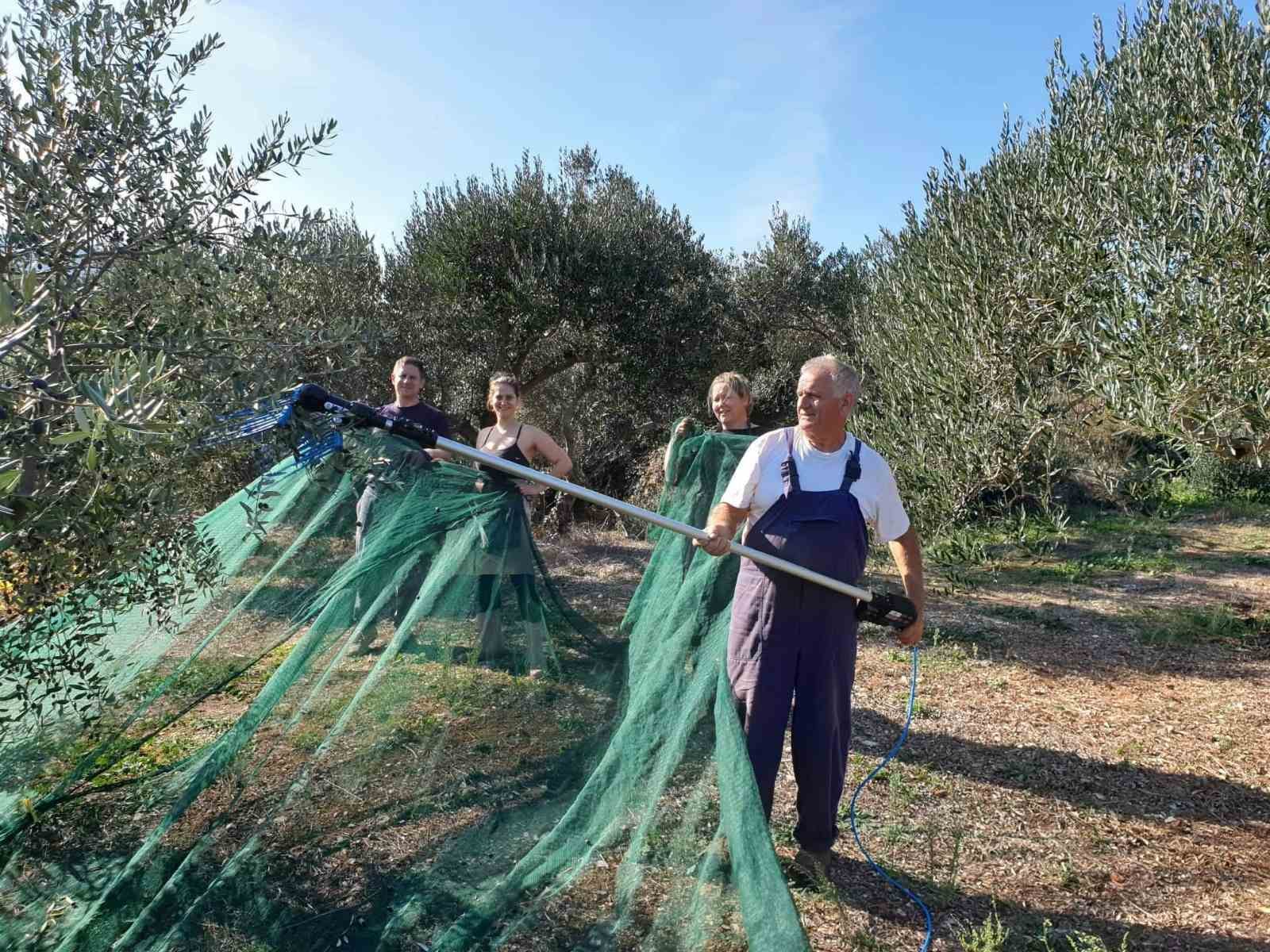
You and I were so different, with little in common, and yet I felt very close to you. You had no use of the Internet or wasting time drinking beer on the riva, I knew nothing of agriculture or electricity or most of the world you inhabited. While I had travelled a lot, you saw no reason to ever leave your beloved island. And why would you? With your amazing family and beloved field, as well as so many friends (just how many we found out on Monday), why would you need to go anywhere else? And then there was that little language barrier.
But we overcame all that, and I felt very close to you. And here is something I want you to know. Whenever I got introduced to someone on Hvar as the foreigner who lived in Jelsa, there would be mild interest. When it was pointed out that I was a Brusjki Zet (son-in-law of a man from Brusje), doors would open. Franko's zet! You must be a quality person. Because that was you - loved by many, respected by all.
And just how many we learned this week, as so many strangers came to the house to pay their respects. With so many stories of how you touched their lives. And then there were the hundreds and HUNDREDS who came to visit you on Monday. I don't think there has been a bigger funeral in Jelsa in the last 10 years.
My favourite time with you was about 10 years ago at Easter, do you remember? All the family was in Belgrade at a wedding, just you and I at home. You had your ekipa, but you insisted that Easter was a family day, and we would spend it together. We had coffee on your terrace, then gin and tonic on mine, then we heated up the wonderful sarma Zorica had prepared for us. All day in our dressing gowns, and we talked for 7 hours about Churchill, Thatcher, Aston Villa, Montgomery and the North Africa campaign in World War II, and geopolitics today. And blitva. It was one of my best memories of my 13 years in Jelsa.
You were so touched when little Taliah decided she wanted to spend half term with you and Zorica 2 weeks ago, and I am so happy you had that last week with her and Miranda. You seemed incredibly happy. And that photo of the three of you at the ferry - it will be framed and in our home next week.
I went to see you yesterday, after everyone else had left, just to spend a bit of time with you alone to tell you the things I should have said before. And there you were, with the best location, gently sleeping in the March sun, first row to the roaring bura. I took a video which I will play often to be with you when not in Jelsa.
Zbogom, Frane, you were one of a kind, and you will live on through all those who you touched with your kindness and your decency. We will tend your precious olives, take good care of Zorica, and Teta Josipa will have an annual dinner in your honour. I promise I will eat blitva. Your loving Dalmatinski Zet, Pol.
****
What is it like to live in Croatia? An expat for 20 years, you can follow my series, 20 Ways Croatia Changed Me in 20 Years, starting at the beginning - Business and Dalmatia.
Follow Paul Bradbury on LinkedIn.
Croatia, a Survival Kit for Foreigners will be out by Christmas. If you would like to reserve a copy, email This email address is being protected from spambots. You need JavaScript enabled to view it. Subject 20 Years Book
20 Ways Croatia Changed Me in 20 Years: 19. The Mighty State of Uhljebistan
August 5, 2022 - Twenty years a foreigner in Croatia. Part 19 of 20 Ways Croatia Changed Me in 20 Years. An introduction to the State within the State, the Mighty State of Uhljebistan.
Can you imagine living in a country for around 12 years as an expat and have absolutely no clue what was really going on, or how the country actually functioned?
Actually, looking at the hundreds of thousands of Brits in Spain who have little to no interaction with local customs, culture or language, I guess you can imagine. But having travelled to 96 countries and having lived in 10, I pride myself on at least understanding a little of the basics of my temporary new home.
And yet Croatia kept me fooled for SUCH a long time, showcasing its glossy exterior in my tourism bubble of Hvar, while hiding its darker realities of the daily grind.
Life on Hvar was good, and although I found the bureaucracy slow and public officials generally quite slow, lazy, and disinterested, I just assumed it was part of the Mediterranean charm.
I miss those days.
It was an era of innocent living in a beautiful country on a gorgeous island with an incredible lifestyle and very few stresses. And had I chosen to work in a field that did not touch Croatia too much, I could quite possibly have continued in that blissful ignorance. It sometimes amazes me how little expats of 20 years here know about the country or even the town they live in outside their bubble. But if their bubble gives them everything that they need, then perhaps it is understandable.
Writing about how wonderful Hvar was made me very popular on the island. Finally, someone was writing about more than the beaches and the nightlife, and in English too. And all was well until I started writing some constructively critical articles about certain topics, or echoed online (in a language that tourists could read!) some of the complaints doing the rounds in the local cafes.
And it was on one such topic that opened a Pandora's Box and led me to hear the 'U'-word for the first time, the entry point to the Mighty State of Uhljebistan, a State within a State that I had been blissfully unaware of for more than a decade in my adopted homeland.
As one would expect with the randomness of my life, the topic that introduced me to the word uhljeb - a word that would bring me one of my first two lawsuits in life 5 years later - was a simple attempt to get the bus timetables updated at the Jelsa Tourist Board. Somehow it became a national debate.
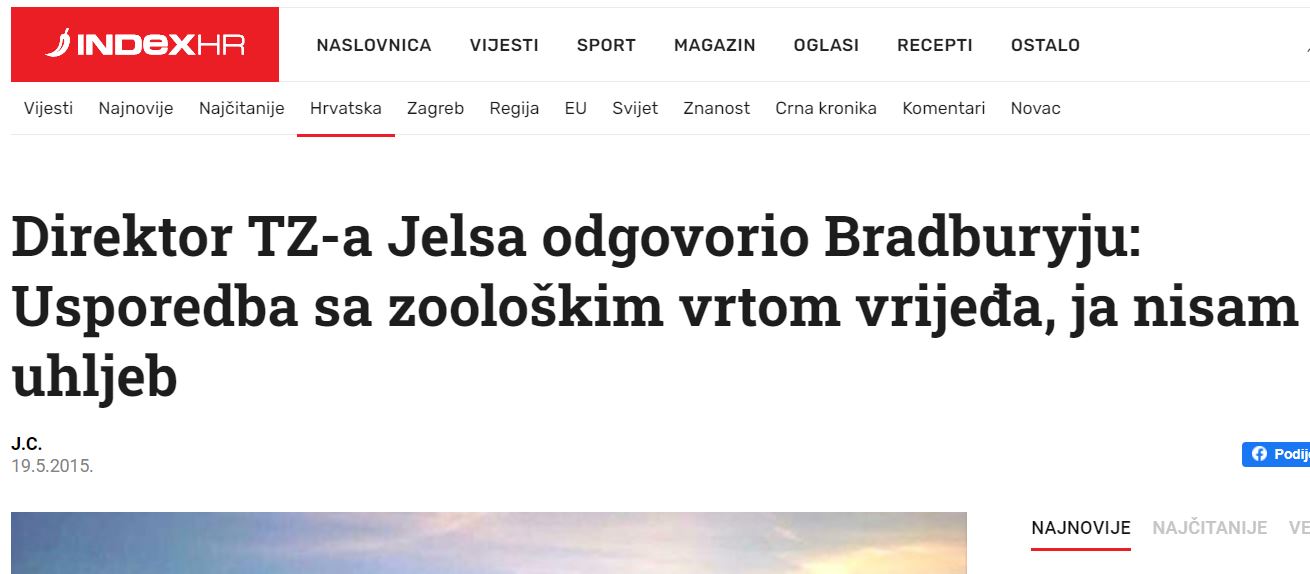
And here was the then Jelsa Tourist Board director announcing in the national media that he was not an uhljeb.
What the hell was an uhljeb, I wondered.
I shared the link on Facebook and asked for help
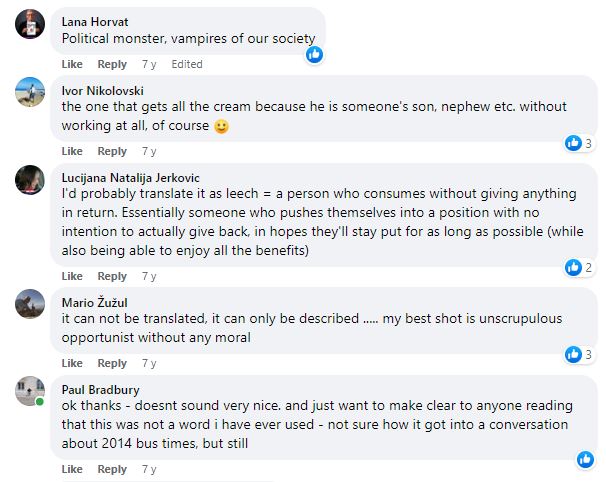
But I am getting ahead of myself on this journey of discovery, for first we have to understand the meaning of this uhljeb word. I have been asked SO many times how one would translate uhljeb into English. Probably the best short explanation that I have found is the following:
Uhljebiti - to be fucked around by lazy and incompetent timeservers and dogsbodies appointed to positions in which they hold no qualifications or experience. Uhljebništvo - the act of appointment/employment of such a person to continue to behave in the manner and affect others with it - with an added point that there is no direct English translation because it is so scarcely seen in Western Europe.
The origins of the word itself seem interesting - U (in) plus hljeb (hleb is the Serbian word for bread). In bread, so I guess someone who is earning something. Given that many of the jobs are reserved for the family, I came up with my own definition.
An inbred in bread.
I think it sums it up rather well.
My viewpoint and appreciation of Croatia changed considerably after learning of the uhljeb world, so much so that I wrote an article called A Tale of Two Croatias: Before and After the Uhljeb Discovery back in 2016. This was followed by Welcome to Uhljebistan: A Foreign Appreciation of the Cult of Uhljeb.
My friendships with some Croatian friends changed. It was almost as though I had come over to the dark side, and they could now be freer in their interactions with me, now that I was beginning to understand what Croatia was really like, and what a struggle their daily lives were. It made me feel a little less in love with Croatia, the country, but much more so with the humans I was engaged with. I mourned the loss of my idyllic Croatian bubble, while trying to summon the agility and strength to navigate the murky waters ahead of me.
Suddenly, things became a lot clearer, and a lot more depressing. The useless official who hardly did anything was not due to him being lazy or incapable, it was more to do with the knowledge that his was a job for life, in exchange for his vote to keep the status quo of power. Be in the right party, help them stay in power, and a comfortable job for life, with guaranteed payment from the State budget on time every month was the reward.
The system was easy to spot once you knew what you were looking at, especially in smaller communities. Years ago, when I was starting Total Hvar, I went to the tourist boards on the island to support the project. I was told:
"We fully support this project, it is great, and we can give you any assistance you need, apart from one thing - money." The thing I needed most.
"You will not get any money for one reason only," a local friend told me cheerfully over a beer a decade ago. "Because you are not in a political party." Why on earth would I want to be in a Croatian political party, I asked myself.
That was before I had come across the Mighty State of Uhljebistan. From watching communities in Dalmatia, I have seen how it works. In theory, the tourist board director should be the best candidate to promote tourism. Given the high level of English proficiency in Croatia, it is astonishing how many local tourist board directors cannot speak English well, or even at all.
And the local tourist board director is not chosen from within the tourist board framework, but by the President of the local tourist board, who also happens to be the Mayor. And the tourist board job is a very nice job indeed. A position the mayor can allocate with political patronage, or perhaps a job for his girlfriend. Apart from a nice comfortable life and existence, it also comes with a budget for events. And whose events get the funding? Perhaps those who deserve a thank you for their loyal votes.
Or perhaps the useful position of deputy mayor could be offered to someone whose husband was a popular figure around town, and very persuasive. Persuasive enough to get people to vote for his choice, with his wife as deputy mayor to show how wise the choice is. And if there was a guaranteed job in return, in which he didn't really have to show up, apart from on pay day, well, where was the harm in that?
But it goes far deeper than this, as I learned when the Mayor of Jelsa, Niksa Peronja, announced in a public meeting (see above) that he was suing me (he never did). People turned away as I walked down the street, while messaging support and thanks privately for investigating the murky inner workings of a public tender. You have to understand, a local friend told me, that it is not personal, but that cafe owner over there supports you, but if he does so publicly, he might lose some extra outdoor tables next season. This is how Croatia works, so don't take it personally.
I was shocked at how many people contacted me privately to thank me, then sent me more examples of alleged corruption, asking me to report on it.
"Sure, we can do it together."
"No, no, please no. My name cannot be associated. I have children, you understand?"
And I don't?
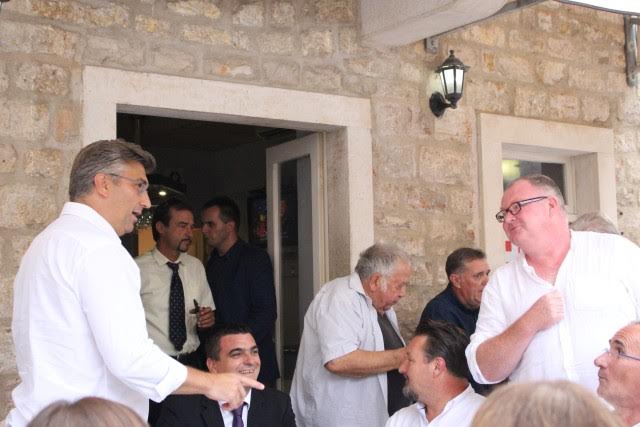
Who could I give all these alleged corruption cases to if not the Prime Minister? He was due in town the following week, and so I wrote him an open letter. He was gracious enough to call me over for a chat and ended by promising that he would never sue me.
So far, he has been true to his word. Thanks, PM!
There are many creative ways that these relationships are maintained. If I wasn't currently being sued twice by the Croatian National Tourist Board (ironically one of them for a meme with that word uhljeb in it), I might have written the story someone had sent me regarding grants given by a certain ministry to businesses who were also donors to a certain political party. The person had collected the data over years, and the alignment of interests was astonishing. If I was a cynical chap, it would seem that the donors were putting cash in the party coffers, then receiving grants to their businesses to get their money back, with a bonus. Some of the businesses had little to do with the tender, but the party seemed to benefit quite nicely. Obviously I am not a cynic and so I am sure that was not what was going on.
That level of fear is very much alive in Croatia today, and sadly people will go along with the party line in return for those favours. I don't judge them for it; it is a survival mechanism for many. But it will also slow down the pace of change.
Once one enters the world of the Mighty State of Uhljebistan, one learns that there are rules for those who have and those who have not. Those who are in the system, and those who are not. Those who can commit the most enormous crimes or steal large sums (let's throw in the word allegedly there) with impunity, versus the cafe owner who will get a huge fine if the inspectors find so much as one extra kuna in the till compared to the paperwork.
The inspectors terrorise and they always find something. They have to, for how else is the Mighty State of Uhljebistan going to pay its army of uhljeb soldiers playing Angry Birds and the like in offices all over the country, so that they can continue to vote for the status quo?
And there are LOTS of mouths to feed. The number of municipalities is quite extraordinary, and (as is my understanding), far from being a legacy of the socialist era, the number of municipalities has actually increased since independence. When I moved to Hvar, for example, there were 5 tourist boards, each with their own director, and 4 municipalities, each with their own mayor. For a population of 11,000. And the best bit was that the tourist boards did not speak to each other - one of the reasons I started Total Hvar back in 2011. Many years ago, a friend of mine went into the Jelsa Tourist Board and asked for information about Stari Grad.
"This is the Jelsa Tourist Board, and we have information about Jelsa. These are the bus times for Stari Grad, where they have their own office. Ask them about what there is in Stari Grad."
The efficiency of having two directors over one, at double the cost. A small snapshot of a much wider problem all over Croatia.
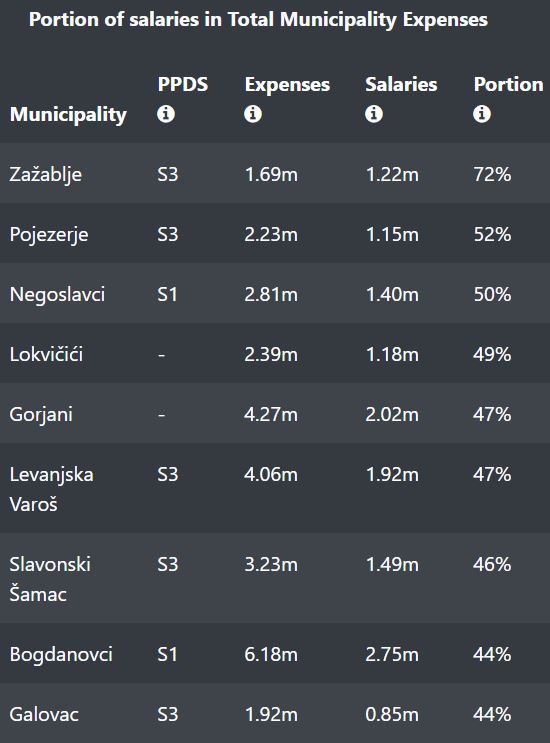
A few years ago, the Voice of Entrepreneurs Association did some incredible big data research in an attempt to come up with suggestions to reduce administration costs through data-driven solutions. Their findings suggested the reduction and merging of some municipalities, which would save some 1.29 billion kuna a year. You can read the article here. In one municipality, a staggering 72% of annual expenditure went on salaries of the administration, leaving only 28% for things like education and garbage collection.
But reducing the municipalities would mean reducing some of those patronage jobs, which would reduce those precious votes.
Not gonna happen.
And for those who do not like this system, or are excluded from it (and therefore many of the jobs and other opportunities), there has been one main option until now - emigration. People are voting with their feet on the streets of Dublin, Stockholm and Frankfurt.
It is easy to criticise Croatians for being sheep and voting for the same parties time and again. It seems illogical on the surface, but it becomes a little more understandable once you begin to understand the workings of the Mighty State of Uhljebistan. It also explains why the smart and young people are leaving.
I sometimes wonder how I would react if I had been born into the system, my family all from the same party, my parents' jobs dependent on the party. It is easy to be a rebel in a cafe, less so when your livelihood is on the line. And so I don't judge.
Happily, I think things are slowly changing. The outer walls of the Mighty State of Uhljebistan are starting to crumble. The twin viruses of technology and transparency are here, and EU membership has brought some extra scrutiny.
But there is also a new breed of Croat - the entrepreneur - headed up the first Croatian unicorns of Infobip and Rimac - who are bypassing the system and doing their own thing.
As I wrote previously, I have come to accept that things are far from perfect in this lovely country, and to accept Croatia with its faults. Choosing to live in Croatia is like being an alcoholic in Norway. There, the beers are 10 euro, compared to 2 euro in Croatia, an alcohol tax the alcoholic is prepared to pay for the Norwegian lifestyle. So too in Croatia. Pay the uhljeb tax in return for the lifestyle, then plug into the MANY positive bubbles that are growing by the week, and discover really why Croatia really is one of the best places on the planet to live.
With the right mindset.
****
What is it like to live in Croatia? An expat for 20 years, you can follow my series, 20 Ways Croatia Changed Me in 20 Years, starting at the beginning - Business and Dalmatia.
Follow Paul Bradbury on LinkedIn.
Croatia, a Survival Kit for Foreigners will be out by Christmas. If you would like to reserve a copy, email This email address is being protected from spambots. You need JavaScript enabled to view it. Subject 20 Years Book
20 Ways Croatia Changed Me in 20 Years: 18. Croatian Food & Drink
August 4, 2022 - Twenty years a foreigner in Croatia. Part 18 of 20 Ways Croatia Changed Me in 20 Years. The incredible world of Croatian food and drink.
There were not many things that I knew for sure when I was a small boy, but one of them was that becoming an adult would mean that I would never again have to eat the things that were forced on me as a child.
Cabbage, broccoli, and the biggest evil of all - Brussels sprouts - would be banished from my diet forever on the occasion of my 18th birthday. I would eat what I wanted and eat when I wanted.
And then I moved to Croatia.
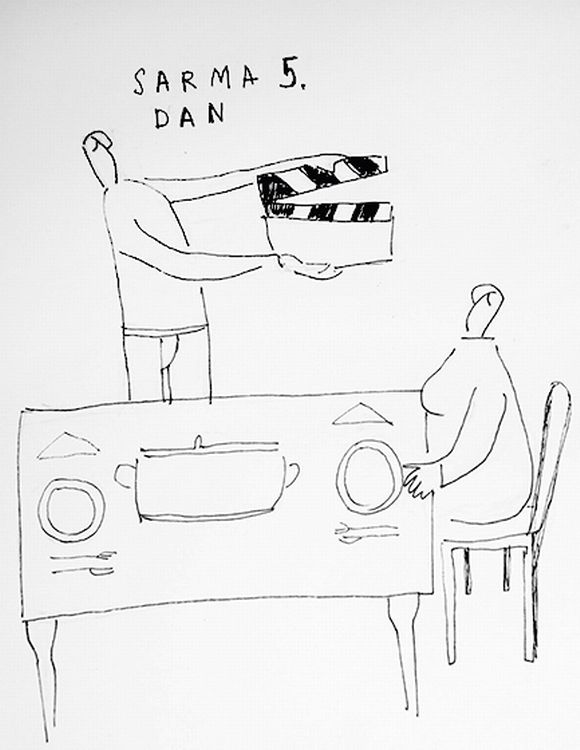
(If you want to understand the magic of Dalmatia, all you need is Tisja Kljakovic Braic Art)
Of all the things I never thought I would do in life, craving cabbage was right up there at number two, just behind craving Brussels sprouts.
And yet, here I was, lusting after one of the finest dishes known to man - sarma.
Delicious cabbage leaves wrapped around a tasty mix of mincemeat, rice and spices, and served with mashed potato. I honestly think I could eat it every day and not get bored of it. Especially if made by my wife or mother-in-law.
After years of living in the consumer society in the 'civilised' West, where bland and watery fruit and veg were available 24/7, 365 days of the year, Croatia was a revelation. Things might only be seasonal, but when they were available... wow!
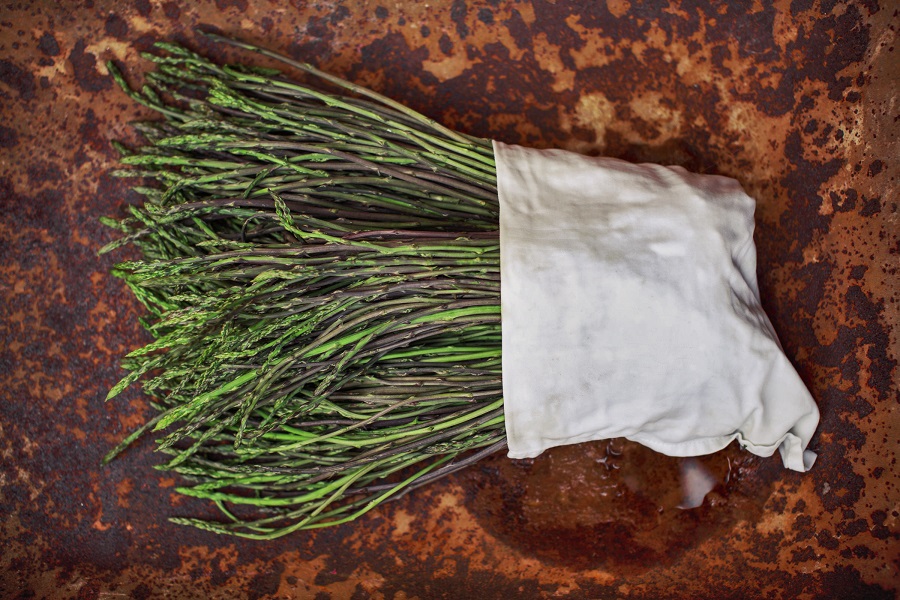
(Wild asparagus by Romulic & Stojcic)
Asparagus was close to cabbage for the Olympic bronze in my childhood diet, but wild asparagus in Croatia in March - a totally different league. I have yet to go foraging for wild asparagus, but if none was available then I would be in the forest searching. And this being Croatia, I would have to pay a tax on the wild asparagus I picked (yes, really).
For cabbage and asparagus, read just about any fruit and vegetable that grows in Croatia. Taste, freshness, quality, seasonality. A different world.
And yet, for the first couple of years - until I tasted my mother-in-law's cooking - I had really no idea that Croatian cuisines was that special. I was a bit like that Anthony Bourdain chap, who came across Croatian food a decade ago.
This is world-class wine, world-class food, world-class cheese. If you haven't discovered Croatian cuisine, you are a f*cking idiot. I am a f*cking idiot.
Bourdain came to Croatia a decade after me, and he had better connections and introductions than I had. With the notable exception of my punica (mother-in-law). And I will confess that initially I was not overly impressed with the food on my newly adopted island of Hvar.
Back in 2003, there was a joke among the small expat community. Somewhere in Croatia, there was a factory which produced restaurant menus. The menu was the same for all restaurants around the country, with two blank areas - the name of restaurant and the prices. For the menus were all the same.
Back then, the quality of the restaurants was really not that great, and the fare was very standardised. The only thing that really stood out as somewhat exotic (albeit unappealing) was octopus salad.
We Brits are a bit funny about our food, and octopus is not a staple you will come across in the UK. I had tried it in a curry in Zanzibar, but in Croatia it seemed to be a very popular dish,and one which my Croatian friends recommended a lot. I finally took the plunge.
Delicious! It remains my number one starter recommendation to newbies to Croatia. An absolutely gorgeous dish.
As I got to know the local ways a lot better through my new Croatian girlfriend, suddenly a whole new world opened up. Fresh produce, grown in the family field, provided the bulk of the food needs - what was in season could be found on the table. And you knew it would be delicious and fresh. And with my wife and punica preparing age-old simple but highly tasty dishes, food would never be the same again.
During the pandemic, we took the decision to spend the lockdown on Hvar rather than in Varazdin. We figured that whatever happened, there would be more freedom on the island, as well as access to the family field if things got really tough. I remember debating how much toilet paper to buy (remember that global panic?), and in the end, I decided on a pack of 20 only, explaining to my wife and daughters that we would have 5 each. And after that, if the crisis continued, we would have to find more natural solutions.
"Six each for us, Daddy, and 2 for you. You are a boy."
I was less concerned at how long my two rolls of toilet paper would last than the food. If the predicted food shortages did happen, then islands would hardly be the priority to restock. I need not have worried. Money might have been tight due to cancelled clients, but the family field, and the culinary magic of my wife and punica, delivered some of the tastiest meals in my time in Croatia during that restricted period. You certainly could not buy those flavours in a Manchester supermarket.
I learned very early on in Croatia to take every day as it comes, and to try anything once. I have never lived in a country where the unexpected happens all the time, as it does in Croatia. Meat shopping? On my first week on Hvar, I was taking the bus from the ferry to Jelsa through the inland village of Vrbanj, when the driver screeched to a holt. There was a man selling half a dead pig by the side of the road, and the driver fancied a piece for lunch. Unfortunately, he had no money, and so had to borrow from the passenger ticket revenue. There was just enough for two kilos.
One of the nicest traditions I enjoyed out of season was the fisherman who landed a particularly large fish, and who would have difficulty finding a local buyer at a good price with all the restaurants closed for the season. A raffle ticket system was introduced - 10 kuna a ticket, with enough tickets sold to compensate the fisherman for his catch, with one lucky winner taking the fish home for lunch for the price of a coffee.
Dalmatia at its finest.
Trying anything once in the Croatian context can land you in some interesting waters. My favourite example of this was back in 2012, when I decided to write the first modern guide book for Hvar in 20 years. I had no idea what I was doing as usual, but I embraced the new challenge with enthusiasm and set about trying to learn even more about my adopted home to make the book more interesting.
I learned some really amazing things about Hvar - that it was home to the oldest public theatre in Europe, that organised tourism in Europe began on Hvar back in 1868, and that the biggest festival on the island celebrated... wait for it...
... the edible dormouse.
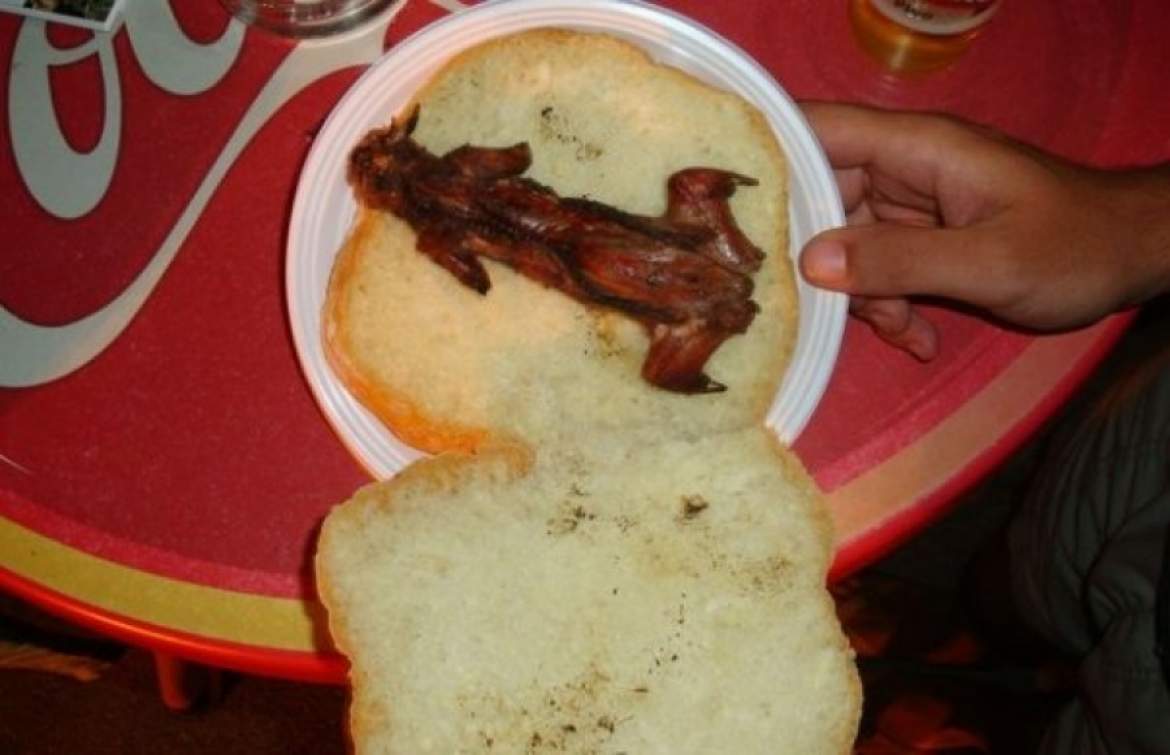
Not quite believing this to be true, I headed off to the village of Dol to the annual Puhijada ('puh' is dormouse in Croatian), a festival with its very own currency - the superpuh.
I wasn't quite sure where to go and ended up in the village restaurant, where an American yoga instructor friend was having dinner with six vegan clients on the last day of their yoga retreat. They had heard about the dormouse festival and were a mixture of disgusted and intrigued. So intrigued that they decided to come with me, then egg me on to try a dormouse. Odd behaviour for vegetarians, I grant you, but their curiosity got the better of them.
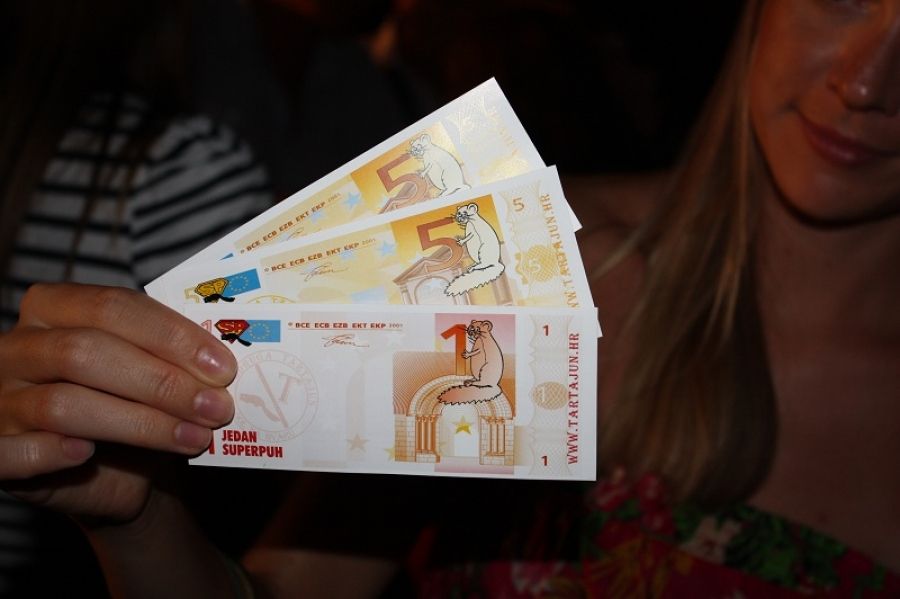
I exchanged 50 kuna for 10 superpuh, which was enough for one dormouse (whole) in a bun, washed down with a beer. Six vegans looked on, holding my beer, while I did battle with the little rodent. There was not a lot of meat, but what there was was very tasty indeed.
I learned that dormouse is only actually eaten in three places in Croatia. on the grill on Dol on Hvar and Dol on Brac, and in a stew in Gorski Kotar. It was part of my initiation into the wonderful world of Croatian cuisine, which is VERY individual.
I learned very quickly that there are two truisms about the Croatian gastronomic space. Firstly, if it grows, Croats will make a festival out of it. I have been to some really weird food festivals in my time here (not that I am saying that a dormouse festival is mainstream) and tried some super weird shit on that journey. Lavender ice cream at a lavender festival on Hvar, fava bean ice cream at a fava bean festival in Kastela, and pumpkin beer at the annual Bucijada pumpkin festival in Ivanic Grad. Want to know about the weird and wonderful food festivals that await you in Croatia - Natural Food Festivals: 25 Things to Know about Croatian Gourmet Goodness.
The second truism about Croatian gastronomy is that if it grows, a Croat somewhere will make rakija out of it. Croats make rakija from EVERYTHING, and the third truism about Croatian gastronomy is that every Croat will tell you that their home-made rakija is the best.
99% of them are VERY wrong.
I have come to fear the drinks cabinet back home. Glass bottles with no labels filled with liquids of varying threatening colours, whose origins I have long forgotten. Some of the nice rakijas in the world come from Croatia - and those from honey, sage and mistletoe can be superb - and some of the very worst too. I have had rakija from olives made by a priest, one from tree bark, and several spurious varieties in between. For more about this essential part of Dalmatian life, check out my rakija guide in Rakija, Disconnecting People: Production, Flavours, Types.
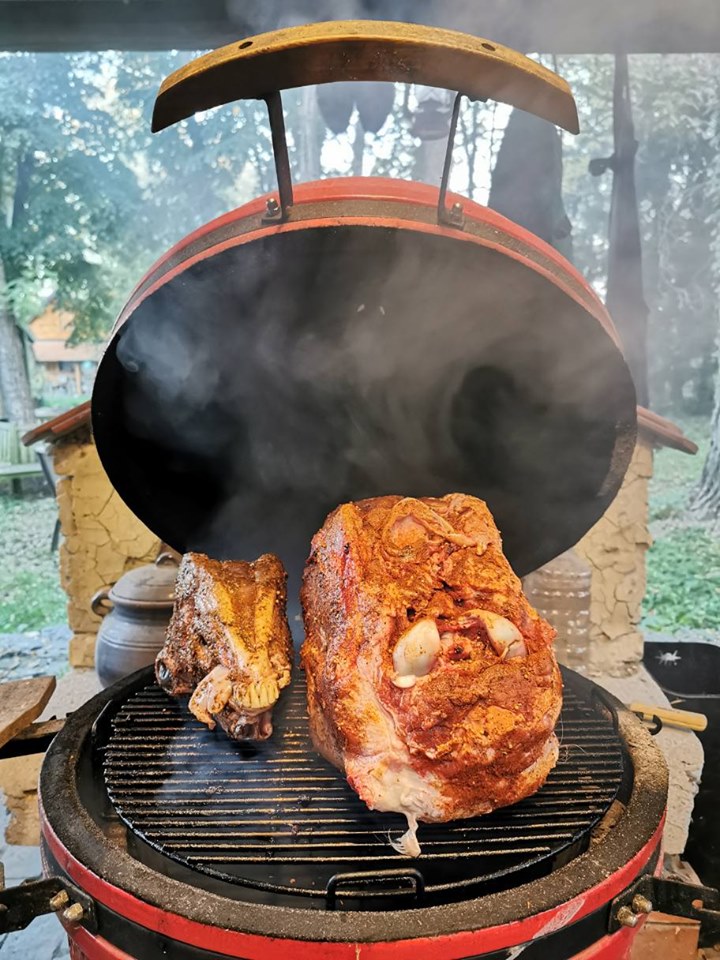
(Goat brain kebabs were a tough sell to the kids, but delicious when prepared by Mario Romulic in Baranja)
Croatia doesn't have a national cuisine - how cool is that - but it does have some outstanding, and very individual regional cuisines. Seafood and blitva (Swiss chard) might be all the rage in Dalmatia, but truffles and variations of pasta were large in Istria, whereas Slavonia was a meat-eating heartland, the land of kulen, one of the finest things known to man. Wherever I travelled in Croatia, I knew that high-quality and fresh food awaited.
But I also noticed something rather strange. While Croatia is strong in regional cuisine, it is actually quite rare to find a region's cuisine represented in the form of a restaurant in another region. Dalmatians love kulen from Slavonia, but how many Slavonian restaurants have you come across in Dalmatia? Or Dalmatian restaurants in Istria, for example?
If there is one person more than anyone who enhanced my knowledge and understanding of Croatian food, it is Karin Mimica of Gastronaut. One of the finest humans on the planet, Karin has been tirelessly promoting Croatian food and wine for longer than I have been in Croatia. She also organises what - for me at least - are the best foodie tours in Croatia with her team from Gastronaut, a club of foodie journalists, hoteliers and restaurateurs. And me.
With Karin, I have come to explore so many different regions in Croatia, both the cuisine and the tourism. Medjimurje, Djurdjevac, Koprivnica, Ozalj, Hvar, Krk, Rogoznica, Pag and several more, as well as an international trip to Slovenia, and soon to Egypt.
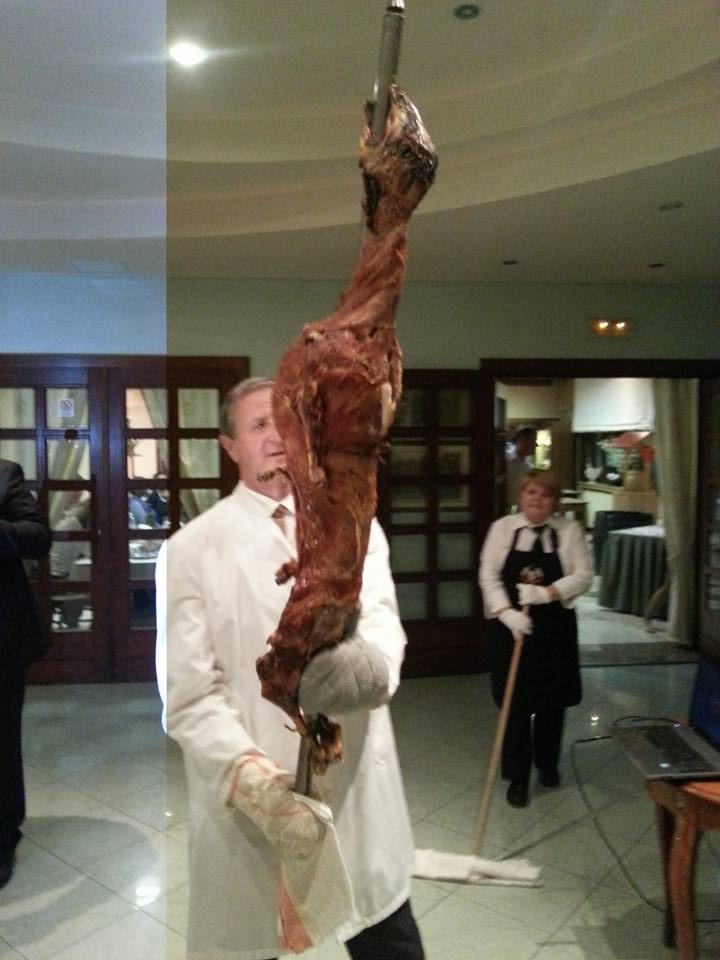
One of the many highlights was the 9-course lamb menu at Restaurant Zganjer near Ozalj, superbly entitled Her Majesty, the Lamb. And what an entrance with course 8, above. You can see the whole menu, dish by dish, here.
Croatian cuisine has developed in the last 20 years, although the adherence to the finest and freshest local ingredients remains. The old expat joke about the factory with the same menu no longer holds true, and there have been some truly creative twists on traditional Croatian cuisine in recent years.
There has also been a steady expansion in the international culinary scene. It was a curious thing that I noticed when I went to Albania for the first time in 2001. There were about 20 restaurants offering international cuisine - Mexican, Japanese, German etc. At the same time in Zagreb, there was a Chinese and an Indian, and that was it. In Sarajevo, despite thousands of NATO troops for years, almost nothing. Albanians and those from former Yugoslavia emigrated and were refugees. The Albanians seemed to embrace the places they lived in and returned with things that they had picked up there - in this case in the form of international restaurants, whereas the former Yugoslavs tended to stay in their communities and so bring back little culinary innovation.
It was a long time until Croatia started to have any noticeable international food scene, and even when it did come, it was not welcomed by many locals.
I remember breaking the story of the first Japanese restaurant in Split back in 2013, a lovely retired Japanese man, whose Split connection I have now forgotten. There was glee among the small expat community. And dismay among the locals. Why do we need foreign food? Dalmatian food is the best, and tourists should eat Dalmatian food when they are here. If they want to eat sushi, they can go to Japan.
Ah, Dalmacija.
The one thing I never really came to terms with in Dalmatia, much to my father-in-law's disappointment, was blitva (Swiss chard). It is probably the favourite of my wife and her parents, but I never got into it. And I think I accidentally rather offended my father-in-law the first time I appeared in the Croatian media back in 2012.
I was in the Saturday edition of Slobodna Dalmacija, and I was on the back page, talking mostly about my new Hvar guidebook. The journalist had asked me lots of questions, and everything was very positive.
"What do you not like about Dalmatia?"
"Blitva," I replied, thinking no more of it until I saw the back page headline - Jelsa has become my home, but I don't like blitva.
My father-in-law was not impressed.
It was three years before I could make amends, trying blitva on national television on a tourism programme about Jelsa tourism. You can see how I got on in the video above - the blitva moment starts at 03:58.
There is one really big negative about Croatian cuisine, with all its seasonal goodness and freshness. Once you get used to that quality, it is really hard to go back. After years of living here, I went back to Manchester to a big supermarket. I was stunned at the choice (Jelsa in 2007 was not exactly blessed with much), but that initial feeling turned to shock when I took a closer look. The tomatoes were almost orange and looked as though they were mostly water. Compared to the enticing red tomatoes from the family field, it was no contest. Many Croatians living abroad tell me that they feel that they are truly back home in Croatia when they get to see, feel and taste the local fruits and vegetables. They just taste so much more wholesome and, well... so Croatian.
(I suppose you might expect something about Croatian wine in this section, but that has already been done in an earlier chapter.)
****
What is it like to live in Croatia? An expat for 20 years, you can follow my series, 20 Ways Croatia Changed Me in 20 Years, starting at the beginning - Business and Dalmatia.
Follow Paul Bradbury on LinkedIn.
Croatia, a Survival Kit for Foreigners will be out by Christmas. If you would like to reserve a copy, email This email address is being protected from spambots. You need JavaScript enabled to view it. Subject 20 Years Book
20 Ways Croatia Changed Me in 20 Years: 17. Getting Sued by a State Institution
August 1, 2022 - Twenty years a foreigner in Croatia. Part 17 of 20 Ways Croatia Changed Me in 20 Years. An introduction to Croatian justice and a hobby that will take up a lifetime in this beautiful land - getting sued by a State institution.
"Finally you became a local. What took you so long?"
"Now you can get citizenship. You finally became a Croat after 18 years."
I used to think that the British had the best sense of humour in the world. To be fair, our humour is pretty good. And, as an aside, below is a quick guide into what the British say, what you think the British say, and what the British ACTUALLY mean. And this table is incredibly accurate. Listen in next time you are talking to a Brit.
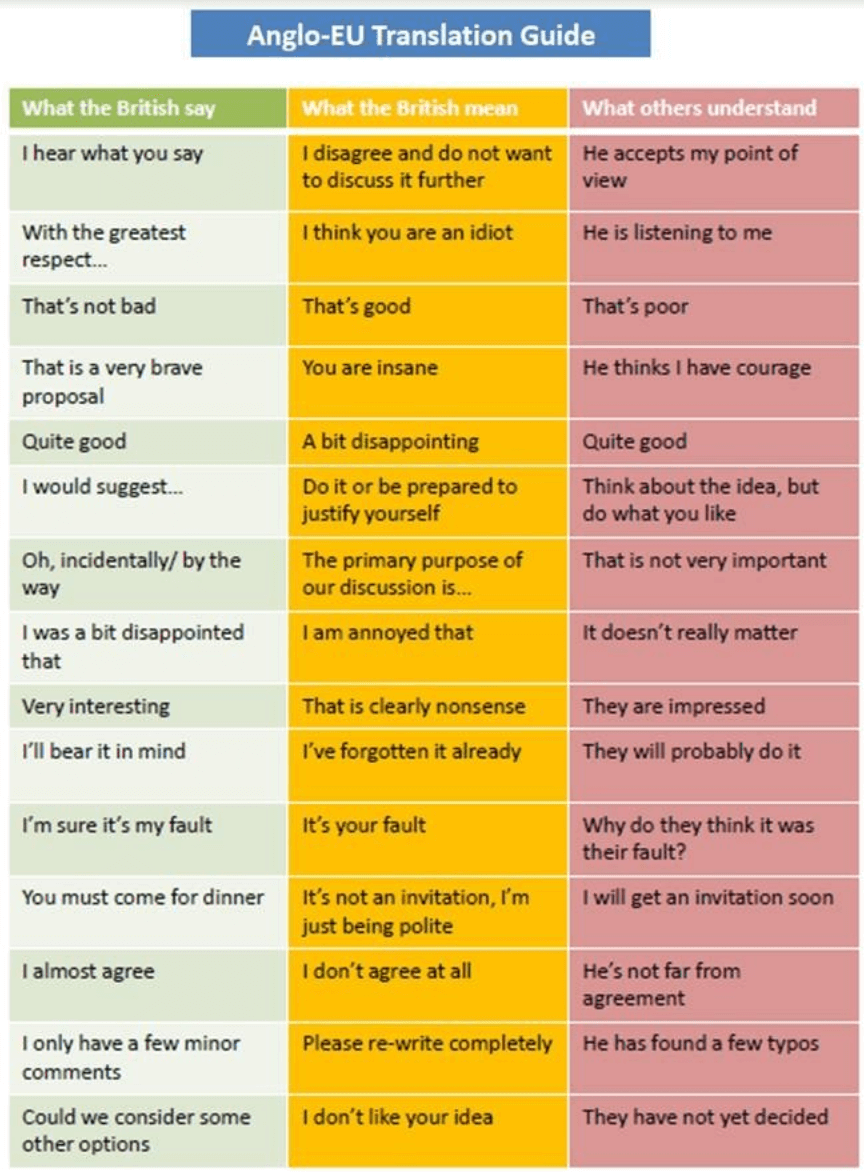
But the longer I live here, the more I get to appreciate Croat humour. It is dark, for sure (as is all the best humour), and as a foreigner, it almost feels that there is a rite of passage in one's Croatian journey. That when you get to a level of understanding about the way Croatia really functions, it feels as though you are entering a secret kingdom, where the humour is a darker shade of black.
I felt it first when I came across the word 'uhljeb' (of which much more in Chapter 19 of this series, but for those a little unclear - A Tale of Two Croatias: Before and After the Uhljeb Discovery) - and my relationship with some Croatian friends changed that day. I had become a little more like one of them, and less a foreigner living in his perfect Croatian bubble.
And so too when I received my first lawsuits at the tender age of 51. It was almost as if you were not really Croatian if you hadn't been sued. It was almost part of the path to citizenship.
While I was terrified at being sued for 100,000 kuna in two separate lawsuits, I was struck that not one single friend expressed sorrow at my news. Shock yes, outrage, to an extent, good humour for sure. But not sorrow.
"I wouldn't worry," said more than one. "It will go on for years, and you will be dead before they find you guilty. For if you are being sued by the Croatian State in a Croatian court..."
I am sure they meant well, but they only terrified me even more. How would I even respond, and where to find a good lawyer to defend me at a price I could afford?
I hadn't done anything wrong either, of that I was pretty confident, but I found myself in the rather bizarre situation after a decade promoting Croatia and its tourism, of being sued twice by the Croatian National Tourist Board, once for defamation for an article I did not write on a portal that I don't own which quoted me. Neither the journalist nor portal were sued, there was no request for a retraction, and the article is still live today in its original format.
The second was for a meme, playing around with the national tourist board logo with a bit of satire, ironically including that word 'uhljeb'. It was the cover photo on my private Facebook page for 3 days, got 316 likes, 20 comments, and 9 shares. It was entirely forgotten a day later.
Until the lawsuit brought it back to life and onto the national evening news and all over most of the national media when news broke of the lawsuits.
I really had no idea what to do. Friends gleefully (did I mention the lack of sorrow expressed?) explained that the cases would be delayed and adjourned for years, then the judgment would probably go against me in Croatia, and I would probably win in Strasbourg in 2063 in the European courts.
Oh, and there was the small matter of the 8% interest on the amount per year. So if the case was adjourned and delayed for years as my friends predicted, I might have to sell both the kids, not just my first-born.
"And of course, you know that they are not actually paying for any of it, so they probably don't care how long it takes. This is public money of course, paid from your taxes. So, in a way, you are paying for the privilege of suing yourself. Ah, Hrvatska. Welcome to the mad house. Cheers!"
I didn't really know any good Croatian lawyers, apart from a brief association with Vanja Juric, a leading media laywer who represented Index.hr, whose summons to the courts were a lot more frequent than mine. Index had kindly asked Vanja to give me some advice a couple of years ago when the Mayor of Jelsa announced he was suing me in a public meeting (see above), but strangely never followed through on his promise.
We were distant Facebook friends, and I decided to send her a message, saying that I knew she was the best and probably very expensive, but could she at least tell me how much trouble I was in, and how many children I would have to sell to engage her services.
I will never forget the first thing she said when we met in her office:
"Paul, the first thing I want to tell you is don't worry. This will be fine. I will be happy to represent you."
And from that moment, my attitude to these lawsuits has moved from one of blind panic to a curious fascination and window into the wonderful Croatian legal system. Vanja is so calm, and so majestic in the courtroom that if she says everything will be ok in the end, then I know it will be. As nobody seems to write about the realities of the lawsuit process in Croatia, at least in English, I decided that I would, starting a mini-blog to document my journey to Strasbourg some 40 years hence. If you want to follow the blow-by-blow account, check out Diary of a Croatian Lawsuit.
My last hearing was in early May, and the next hearings for both are in November - remember that 8%?
And the following January, both lawsuits will be entering their fourth calendar year.
The lawsuits arrived in blue envelopes from the municipal court in Zagreb in October 2020, after the case had been opened in August 2020. The first hearings for each were set for April 10 and May 3 the following year. Did I mention something about 8% interest?
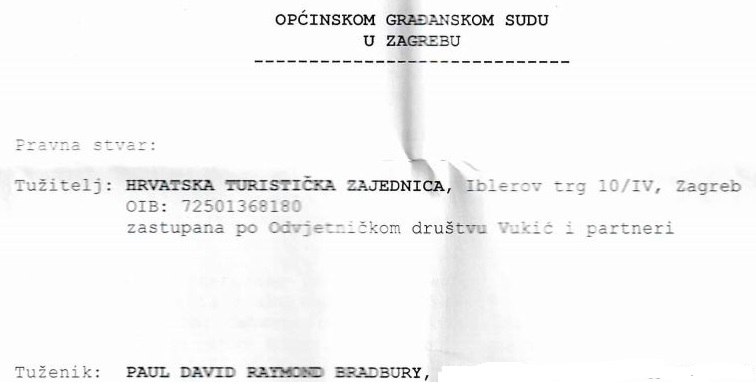
A week before the first hearing, I asked Vanja if it would be ok to announce that I was being sued on social media, which she confirmed. I guess I was expecting a little reaction from posting the summons as my cover photo, but what happened next was really quite incredible.
Within an hour, my phone rang - a journalist from the national media, RTL Direkt, asking where I was currently. At home in Varazdin, I replied why? Be at Hotel Park in 2 hours for an interview on the lawsuit. And so there I was that evening, on the national news, story number 2.
The press had a field day. What had been a 3-day Facebook cover long forgotten by all had turned into one of the biggest stories of the day.
There was even a poll on Index.hr, asking which side readers were on. Almost 17,000 people took part in the poll.
Offers of money for my legal defence came in from SO many kind strangers; it was truly humbling. I thanked but refused them all.
Meanwhile, in the Croatian Parliament...
... my case was raised by Centar MP Marijana Puljak, calling for the dismissal of the Croatian National Tourist Board director, the quashing of the case, and the introduction of anti-SLAPP legistlation into Parliament.
The Minister of Tourism was apparently not very happy with the lawsuit and allegedly summoned the director to demand an explanation.
Meanwhile the media invitations kept on coming.
Good Morning Croatia, the main breakfast show on national television.
N1 television. And several more. An awful lot of publicity, which one journalist referred to as the biggest PR own goal in the history of the Croatian National Tourist Board. I couldn't comment on that, but it was fab PR for me and TCN. Although I am forever known as 'the blogger the tourist board sued' if I meet people at parties who have never heard of me.
Instant recognition.
Even though I had the soothing voice of Vanja by my side, I was very nervous before my first court appearance. For some reason, I felt that there was a stigma about being sued (obviously I was not Croatian, for here it is a national sport - years ago, I was told that in a population of 4 million, there are about 3 million ongoing lawsuits, most of them property related. If they all took years to conclude, no wonder the country was in such trouble). What would my day in court look like?
"It will be over in 3 minutes," predicted Vanja, "and then a new date will be set in a few months. And so it will go on. But we can go and have a beer after and catch up."
And - as always - she was right. The prosecution produced a last-minute motion which they did not have time to share with Vanja in advance, and the case was adjourned by several months. The first hearing of the other lawsuit was postponed for 3 weeks as the prosecution lawyer had double booked, then it was postponed by 6 months when he had double booked again. When I learned that their lawyer was one of six partners in a firm with 50 lawyers, I marvelled at the fact that he perhaps could not afford a secretary to manage his diary or find a colleague to cover for him.
Remember that 8% interest?
Somewhere into Calendar Year 3 of the meme case, both the director of the national tourist board and myself were called to give evidence about the meme. I was fascinated; what kind of evidence can you give about a meme? It was a meme, satire, posted without comment. What more is there to say? And yet I found myself on the witness stand for about an hour, having to answer questions on what jobs I was doing before I moved to Croatia in 2002, how many Facebook fans I had, and how would I define an 'uhljeb'. It was extraordinary. My proudest moment was learning how many journalists and bloggers had been sued by the national tourist board in the calendar year of 2020.
Just one.
Me.
Twice.
The director almost didn't come to give evidence. The hearing was set for Thursday the 20th, at midday. After busines hours on Friday the 14th, Vanja got an email from her colleague from the prosecution, informing me that the director had to go to a tourism fair in Madrid. As proof, he sent a copy of the ticket, from Tuesday the 18th to Friday the 21st. Even though both our hearing and the fair had been announced 6 months ago (remember that 8%?), we were informed going into the weekend just a few days before.
I cancelled my court interpreter, and it was agreed that I would appear but not give evidence alone.
Tuesday came and the director was presumably en route to Madrid, representing Croatian tourism on Wednesday too, and not due back until Friday. Imagine Vanja's surprise then when she got an email on Thursday morning, just 3 hours before the hearing, that the director would in fact appear, as he was not in Madrid. Quite why could not have informed us on the Tuesday is anyone's guess. A last-minute scramble to find an interpreter was one more unnecessary stress.
Both cases rumble on, and they are attracting some interesting and high-profile participants. Next up in November, for example, is the head of legal for the national tourist board, as well as the former Communications Director for Prime Minister Plenkovic giving evidence on my behalf.
The last hearing was perhaps the most surreal. I was co-organiser of a digital nomad conference in Dubrovnik in early May, and the national tourist board kindly sponsored the first evening event. The next hearing in court was in Zagreb the following day. I had the rather unusual experience of greeting the head of global PR at the conference, as she was hosting the evening, then both of us due to fly to Zagreb the next morning for the hearing so that she could give evidence against me. In the end, Vanja told me to stay and enjoy Dubrovnik, but how to go from conference partner to the accused in the courtroom in under 16 hours. Ah, Hrvatska.
How do I feel about being sued as it drags on for years? I actually don't mind. As I wrote in an earlier chapter, 20 Ways Croatia Changed Me in 20 Years: 3. Bureaucracy and Mindset, dealing with Croatia is all about mindset. Go in with a positive attitude and a little humour, and all will appear totally different. It has been a fascinating journey to document, and I am sure there are many more twists and turns to come.
And the prospect of a visit to Strasbourg when I am 94 is rather appealing...
One does wonder if the public time and money could be put to better use, however.
Away from the courtroom, it has been fascinating to see how the whole thing plays out in the media. To see which portals are truly independent in Croatia, and those who do not report on it at all. My favourite moment was a big sponsored article in a major national newspaper and portal (I will not say which) which covered a conference I co-organised. There were 5 speakers at the opening, and the article was comprehensive, including photos of 4 of the 5 speakers in the text. And the text was considerable but managed to omit mention or photo of both me and TCN, the co-organiser.
Quite impressive.
There are a lot of other things I could write, but I should probably stop before I get myself into trouble. Being sued has made me see things a little differently, and it has definitely made me feel more Croatian and the realities of the authentic Croatian day-to-day reality.
And while I am not looking to get sued again, the experience has definitely enriched my time here, and whatever the outcome, I am sure there will be quite a story.
And quite possibly that 8%...
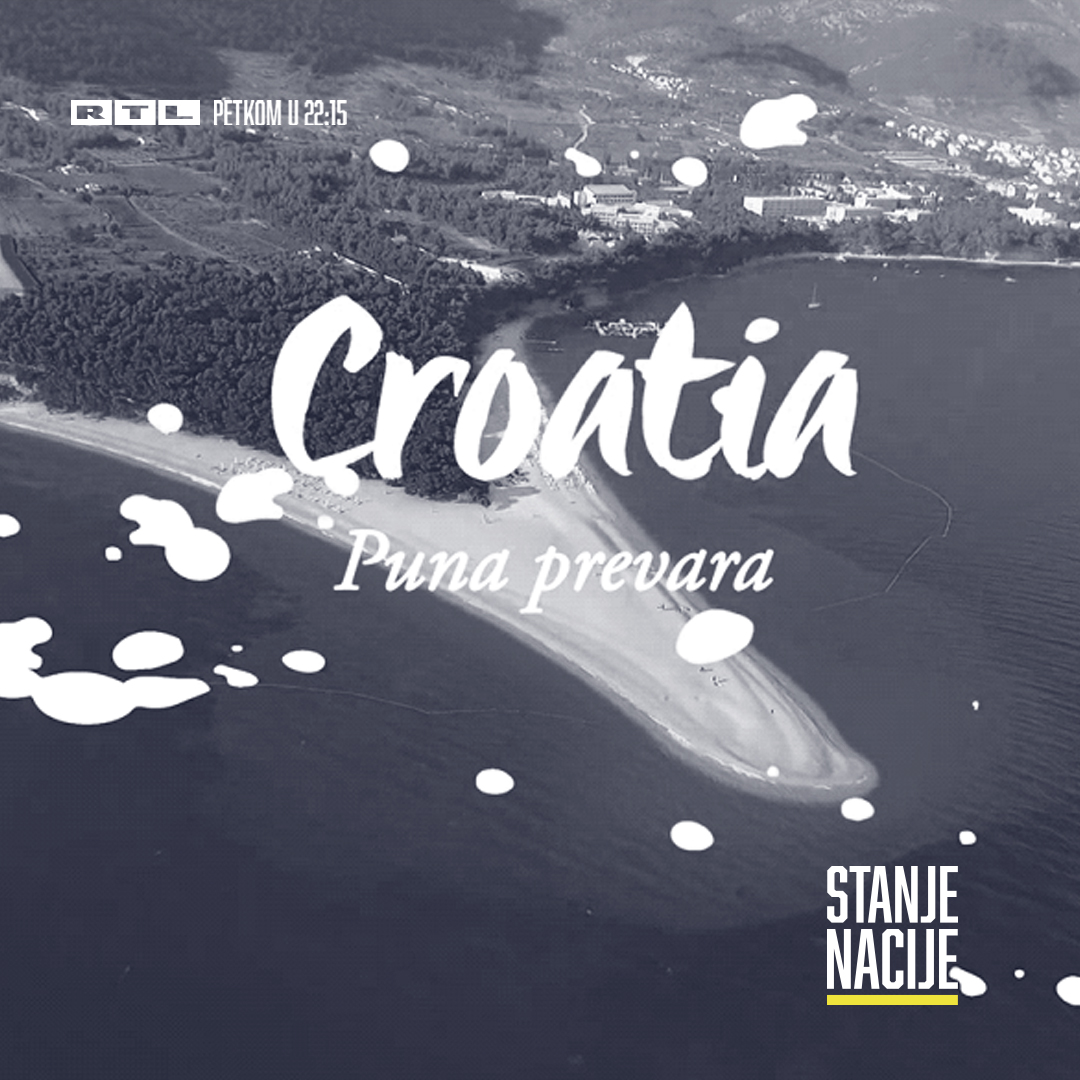
And I would be very interested to see what - if anything - happens with this social media post of one of the biggest names in the Croatian media - the twist of the slogan Croatia Full of Life to Croatia Full of Deception. Perhaps we will end up in the dock together. Or not.
****
What is it like to live in Croatia? An expat for 20 years, you can follow my series, 20 Ways Croatia Changed Me in 20 Years, starting at the beginning - Business and Dalmatia.
Follow Paul Bradbury on LinkedIn.
Croatia, a Survival Kit for Foreigners will be out by Christmas. If you would like to reserve a copy, email This email address is being protected from spambots. You need JavaScript enabled to view it. Subject 20 Years Book
20 Ways Croatia Changed Me in 20 Years: 16. Living 13 Years Full-Time on Hvar Island
July 31, 2022 - Twenty years a foreigner in Croatia. Part 16 of 20 Ways Croatia Changed Me in 20 Years - what is it like to live 12 months a year on Hvar island, for 13 years? And does it change you?
"Hvar island is so beautiful; you made a great choice. How did you come to live here?"
It is one of the most-asked questions of my life. And the answer (for those who have not already heard the story, which is well-documented) sums up the randomness of my life so far at the tender age of 53.
I have never been one to plan. My kids often wonder how I am still alive after hearing some of my travel stories of plane crashes, guns to the head, and inadvertently walking into gun battles in the West Bank. Family life has made me a lot more cautious for sure, but before family life...
A typical bout of lack of planning back in 2002 had me working as a Civil Society Coordinator in Somaliland and Puntland, the dangerous autonomous bit of Somalia where those pirates hang out.
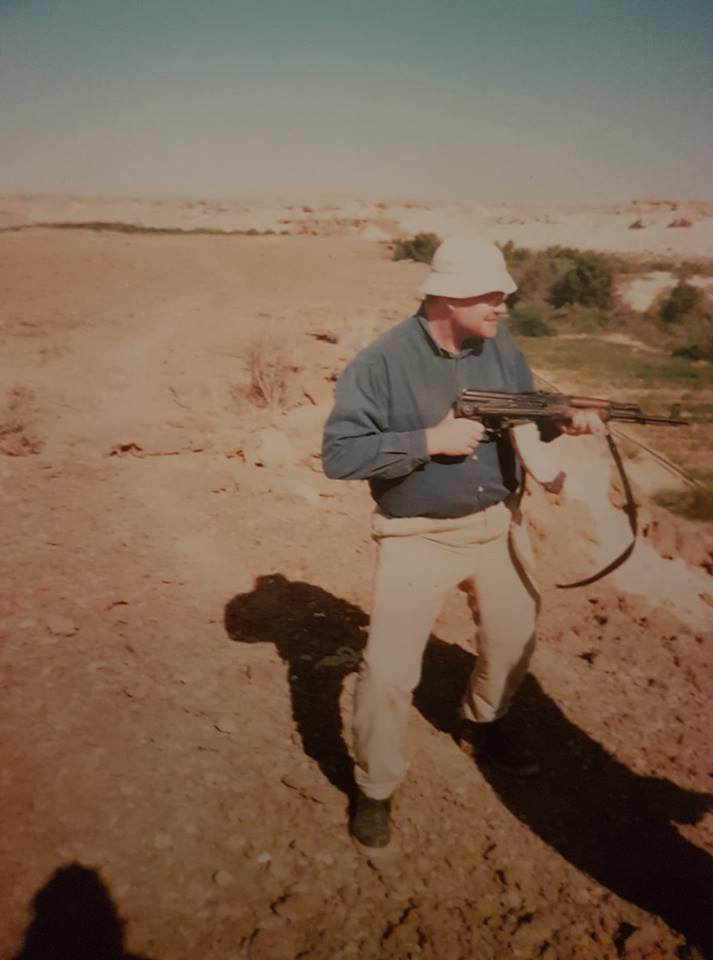
(Somaliland was very safe, but Puntland was something else - taking the load from my 24/7 bodyguard, Arafat in Puntland in 2002)
I was based mostly in Hargeisa, the capital of Somaliland, a very peaceful place, and I was sharing a house with 8 African colleagues from Kenya, Sudan, Uganda and Ethiopia. I was the only pink boy in the house. It was a fantastic experience in general, and I made some good friends. We played a lot of Scrabble, they more than me, and I would get into the habit of taking a gin and tonic to the rooftop at the end of the day and watch the world go by, an admirable self-proclaimed state which was rebuilding itself without international money or recognition.
On the evening in question, I had just got news that my house in the UK had sold, the money was in the bank, and I was free to sever all ties with Britain and buy a house somewhere in Europe. Somewhere by the sea, I decided.
My glass inexplicably empty, I ventured downstairs for a refill and a planned contemplation where I might buy my new home. I had no plans to live there full-time, for I planned to continue my aid worker career, but it would be nice to have a base, somewhere to keep my books that friends could visit.
The guys were busy with Scrabble, and CNN was on the television, the only station we could get. I was just putting the ice in the gin, when THAT advert came on.
Croatia, the Mediterranean as It Once Was.
Sure beats Croatia, Full of Life as a slogan, doesn't it?
I was hooked. The Croatian National Tourist Board's niche marketing to fat pink Brits in northern Somalia was highly targeted and effective. How ironic that 18 years later, that same fat Brit would be the only blogger/journalist sued by the national tourist board in the whole of 2020. Not once, but twice. (Read more in Diary of a Croatian Lawsuit)
A few weeks later, I found myself in Sarajevo, having a beer with a Canadian aid worker friend who had been inside Sarajevo during the siege, but managed to get to the Adriatic coast for regular R&R. She knew the Croatian coast well and suggested we decide on a destination, then visit it the following weekend with her Bosnian boyfriend to see if we could find a place for me.
It sounded like a plan and, as I didn't really know Croatia, Kendra got a pen and paper and said she would make a list of top 10 places and explain a little about each. I could then choose one, and we would head there early on Friday morning.
"Number 1 - Dubrovnik, the Pearl of the Adriatic, famous for its amazing old walled town. Number 2 - Split, home to the UNESCO World Heritage Site, Diocletian's Palace. Number 3..."
It was a balmy summer's evening, the beer was hitting the spot, and these Sarajevan ladies were smoking hot. I stopped listening, in the way one does when one asks for directions and then stops listening to the extended explanation from a passer-by. Perhaps I should live in Sarajevo instead?
"Number 10 - the island of Vis. A fascinating military island closed to the world until 1991. That's it. So which one do you like the most?"
I was so embarrassed that I had not been listening, so I closed my eyes and put my finger on the list.
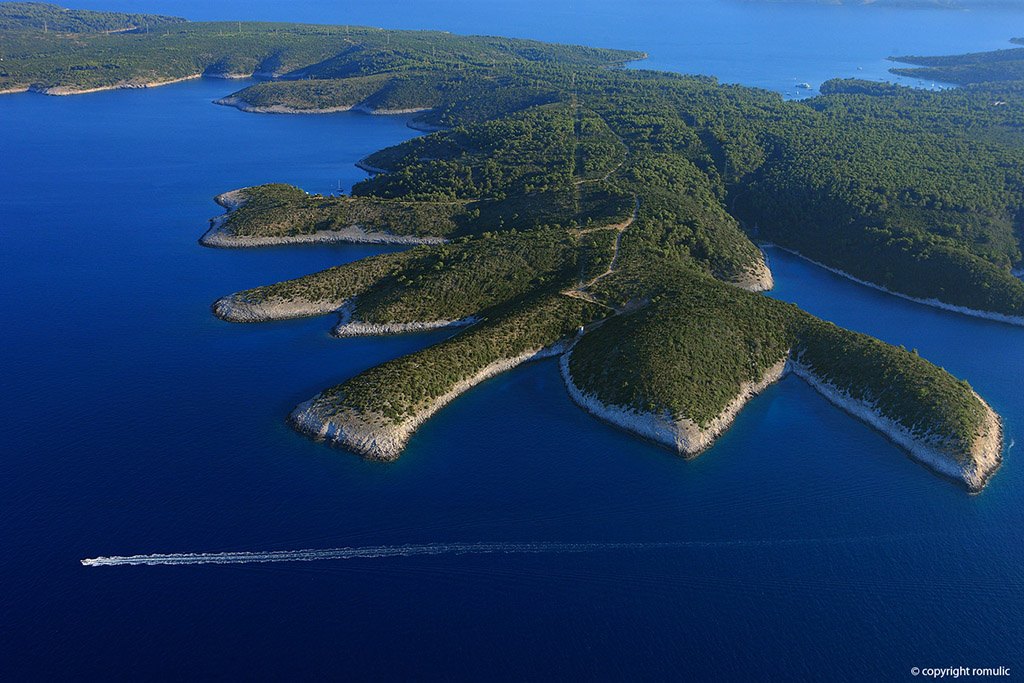
(My unpronounceable new home, by Romulic and Stojcic)
Number 6 - Hvar.
"Hvar! Great choice. You do know it is an island, don't you?"
I had never heard of it (and still can't pronounce it properly).
"Of course, and it is very beautiful, isn't it?" (It must be, because it is on your list).
The story of how I bought the house will be explained in detail in the book version of this chapter (20 Ways Croatia Changed Me in 20 Years: the Insider Guide to Surviving Croatia will be out by Christmas. If you would like a copy, email This email address is being protected from spambots. You need JavaScript enabled to view it. Subject 20 Years Book, and I will contact you when it is published), but I want to focus on the Hvar living experience here.
Those initial weeks were blissful, and so carefree. I moved in in mid-September, fully expecting the island to be at peak season levels 12 months a year (did I mention that I never plan?). September was quieter than August, but SO refreshing. I was trying to lose weight, and I got into a daily routine of rising at 06:00, then walking along the sea to beautiful Vrboska, where I would have a morning cup of tea on the water about 06:45, then a leisurely walk home.
That walk to Vrboska is such a wonderful part of the planet - here it is many years later, filmed during the pandemic, above.
A cappuccino and cherry strudel on the main square in Jelsa after breakfast, just taking in the chilled vibe. And then a daily swim at Mina. I only learned to swim 4 years before I moved to Hvar at the tender age of 29, and doing laps from one side of Mina beach to the other was a daily task which I found very demanding but rewarding, given my terrible technique.
The afternoon was spent working on my imminent bestseller, Lebanese Nuns Don't Ski, and the evening hour was at my local, Konoba Faros, whose warm welcome and hearty Dalmatian fare had me there every night until October 1, when it was inexplicably closed.
"You are closed!" I said to the waiter, who I saw having a coffee on the pjaca the next morning. When will you reopen?"
"In May."
May!?! - that is SEVEN months away. What kind of restaurant closes for 7 months a year?
The kind of restaurant which is on an island with tourism about 4 months a year.
October was a shock.
Indeed a series of shocks. With most things now closed for the winter, life was not as much fun. And it was colder at night. I looked for the heating in the house only to find that there was none. Welcome to Dalmatia.
I didn't have many friends, and I didn't have much to do. And I didn't care that much. There was some money in the bank, and my bestseller would establish me as a world-famous writer. I accepted invitations to pick grapes and olives, a perfect entrance to the Dalmatian way of life. Be at this cafe at 07:00 and we need to leave immediately, for soon it will be too hot to pick. Dutifully I did, only to be joined by the rest of the crew an hour later. Ah, let's have a bevanda (red wine and water) before we start. And then another. And another.
The picking done, back to the konoba for grilled fish, fresh vegetables, and litres of wine in plastic bottles. Bottle empty? Simply go to the tank and refill.
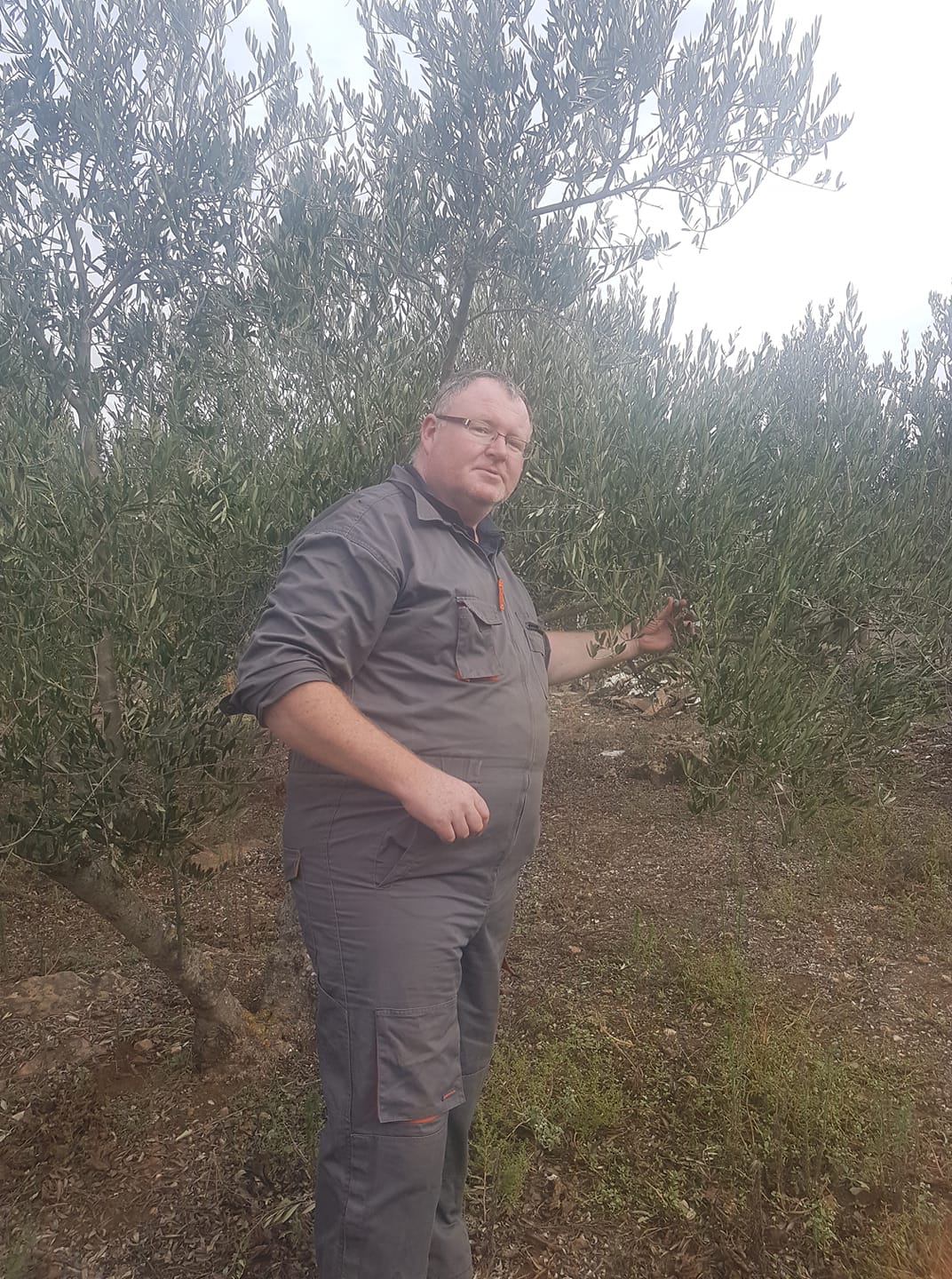
My favourite recollection of this time was a boozy lunch with about 8 locals, the conversation all in Croatian. I understood every 100th word, but I was happy in the company. We had grilled sardele (sardines). I am not known for squeezing every piece of flesh from a fish off the bone over lunch (which is VERY un-Dalmatian), particularly the heads, and I left a reasonable amount on my plate, each head intact.
The chap opposite me had never even acknowledged my existence before or after, and he only ever uttered one sentence to me in his life:
"Are you eating those fish heads or what?" When I said no, he took the plate and the fish heads were gone in seconds. He never looked in my direction again.
Looking back, life was really blissful. I was a total Croatia virgin, living in a tourism bubble. I did not really appreciate it at the time, but the war had only finished 7 years before, and foreign tourists were very welcome, especially those who would spend all year. It was complete heaven, and the nature was divine.
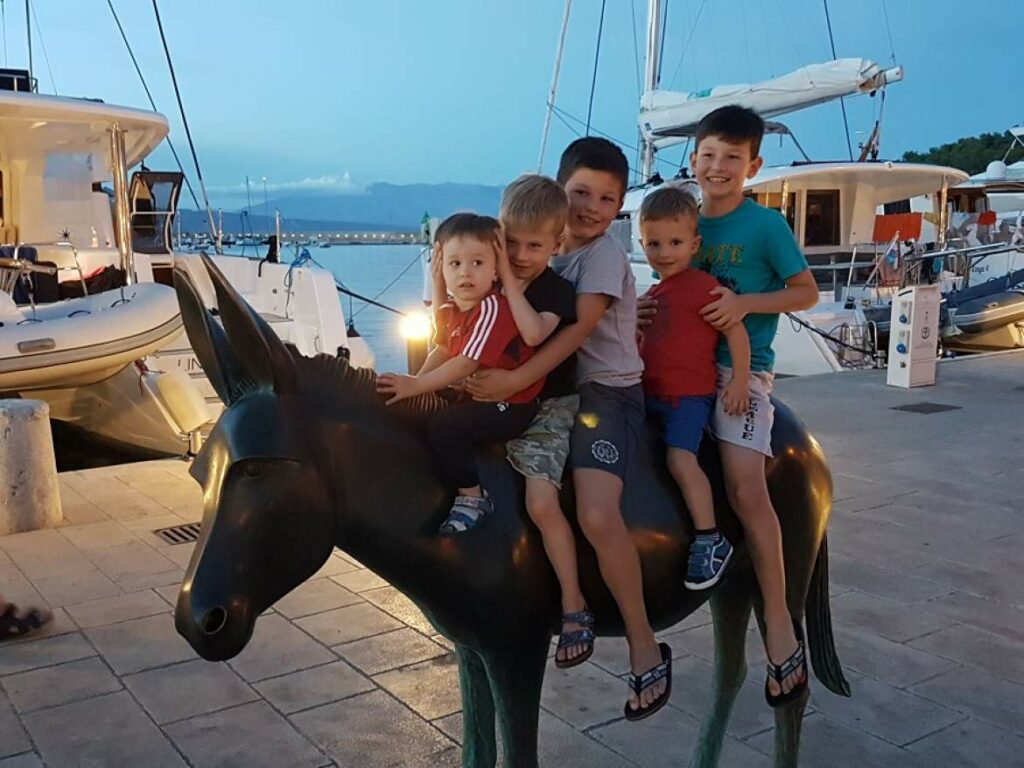
I always wore short sleeves in winter. Trust me, when you have been brought up in a Jesuit boarding school in the north of England, then spend a winter on the edge of Siberia in temperatures of minus 32, winters in Dalmatia are mild. My t-shirts were in contrast with locals in several layers of clothing, and my first island nickname (you are not an islander if you do not have a nickname) was coined - Ludi Englez (Crazy Englishman).
Nicknames and the gruff Dalmatian way were hilarious. You could be in a meeting in a cafe and a local passing would shout LUDI ENGLEZ in your direction. It was a form of acceptance, and I appreciated the name.
'Kratki Rukavi' (short sleeves) was another phrase that was shouted at me a lot, as I walked around in my t-shirt in the 'fierce' bura wind. I absolutely LOVE the bura, and whenever it came, I would open my arms in my t-shirt and embrace it. I have never come across a more cleansing natural experience in my life. It just blows right through you and you come out cleansed on the other side.
Locals would look at me as though I was nuts. Perhaps I was. Ludi Englez indeed.
(Blogging in #ForeverKratke short sleeves in the bura - you can't beat it)
I have never been materialistic, but Dalmatia removed whatever Western trappings that remained in my body. In fact, I can't remember the last time I bought something non-essential for myself apart from alcohol (and one could argue about its necessity...). I adored the fact that Dalmatia was so non-commercial. Even though the trappings of tourism and the modern consumer society and Internet shopping are encroaching on traditional Dalmatian values, this is still a region where time - if not completely standing still anymore - is moving very slowly.
To live in a community where the Christmas tree went up on December 15 on the main square (as it did when I first moved), the first sign of the festive season (things have sadly changed), and Christmas Day comprising a present each and a great family lunch and healthy walk to Vrboska and back, was a blessing coming from a culture of commercial crap.
Local kids had nothing, but they had everything. Not so many play stations, but the Adriatic as their private swimming pool, and a safe island to run around and enjoy in idyllic nature.
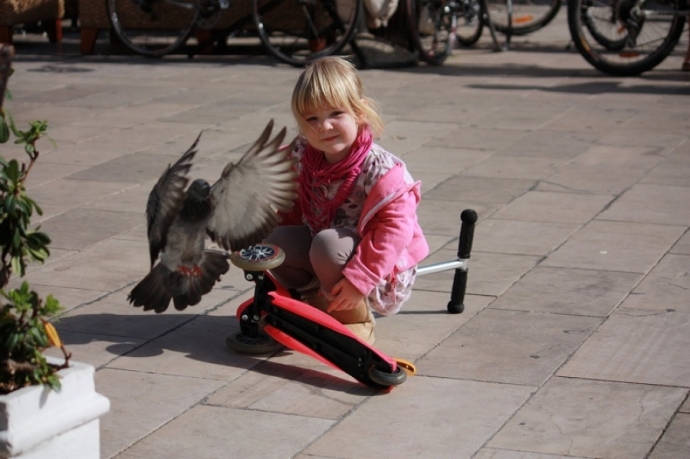
One of my best friends from school contacted me after 25 years. A successful accountant with a large house near London and his own boat, he was coming to Hvar sailing and suggested we meet. It was great to see him and meet his lovely family. We exchanged life stories, me talking a little about island life, he about the pressures of the job, leaving at 06:00 Monday to Friday, getting home at 21:00, then one night out with the wife a week on Saturday, and Sunday with the kids. He could not afford to live in London, but took the train an hour a day each way. But there was the compensation of being able to sail around Hvar for a couple of weeks a year.
I smiled, and I was genuinely happy for his success, and he was clearly earning about 50 times what I was. But I wouldn't have swapped my Hvar island for anything at that point.
The fisherman and the billionaire story - from my personal experience, and I would choose the fisherman every time.
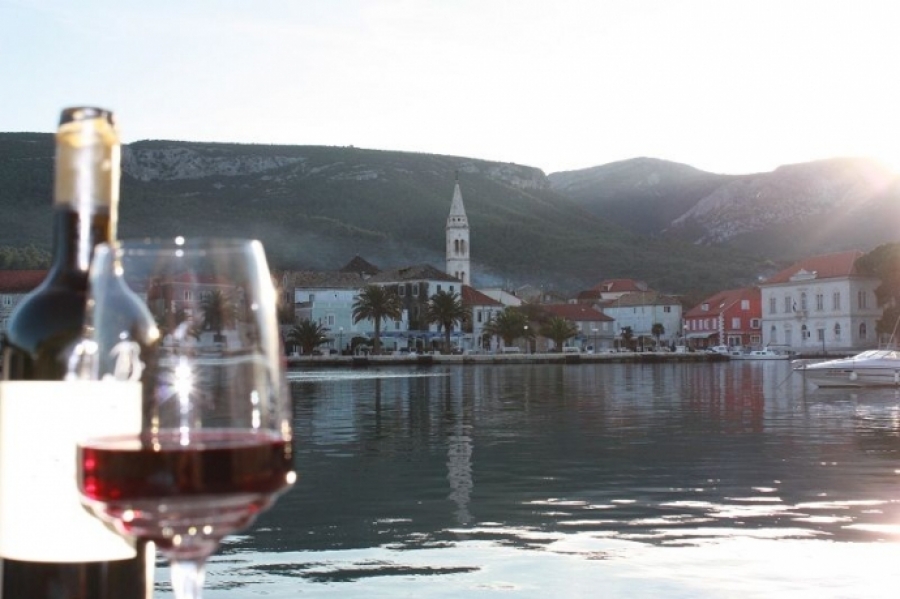
I met a girl - the assistant librarian - in the library, and she took pity on me and consented to be my girlfriend, then fiancee, then wife. I don't write about the family much as it is personal, but suffice to say that being a Dalmatinski zet (Dalmatian son-in-law) is one of life's great privileges, especially when you have a legendary punica (mother-in-law) and punac (father-in-law) as I did.
I could take at length about Hvar island and the food, the wine, the safety, the olive harvest, raising children, and doing business, but these I have already covered elsewhere in this series.
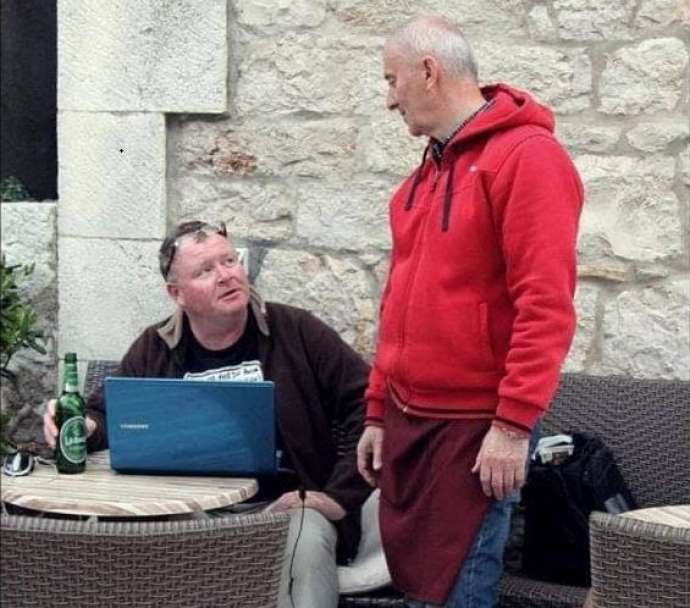
Apart from my lovely wife, there were other friends on the island, and we got into the routine of meeting for coffee (or something stronger) late morning at Caffe Splendid on Jelsa's main square, which became my office when I started our real estate business.

The core crew were Vivian, a Croatian physio of international acclaim who had lived most of her life in London, but retired to the island, and one of her many badges was as the physio for the British Olympic team in Moscow in 1980; Mark from London, who started out as a real estate client, but quickly became my best friend and got me into all kinds of trouble; and Professor Frank John Dubokovich, Guardian of the Hvar Dialects, whose success with the ladies was as impressive as it was inexplicable. The Professor and I teamed up together to start a language series on Hvar dialect that ended up being beamed into the homes of millions in the UK.
Here he is, with that iconic first video, the Dalmatian Grunt. A e!
The core team was supplemented by lots of interesting characters who had bought holiday homes through me, as well as other expats and locals that came over to join our circle. There was an Irishman who was gold prospecting in Cameroon, UN consultants, a celebrity snapper who brought Jodie Foster to Hvar as a 15-year-old, and a blogger far more famous than me who frequented my office. I always really enjoy chatting to the BBC Sport's chief football writer, Phil McNulty, and it was amazing to learn that the most popular blog of the year - his Premier League predictions for the new season - is always written at Caffe Splendid in Jelsa. Great, so I can't even achieve the status of the best blogger in a cafe in the third biggest town on Hvar Island.
Great brain food all round.
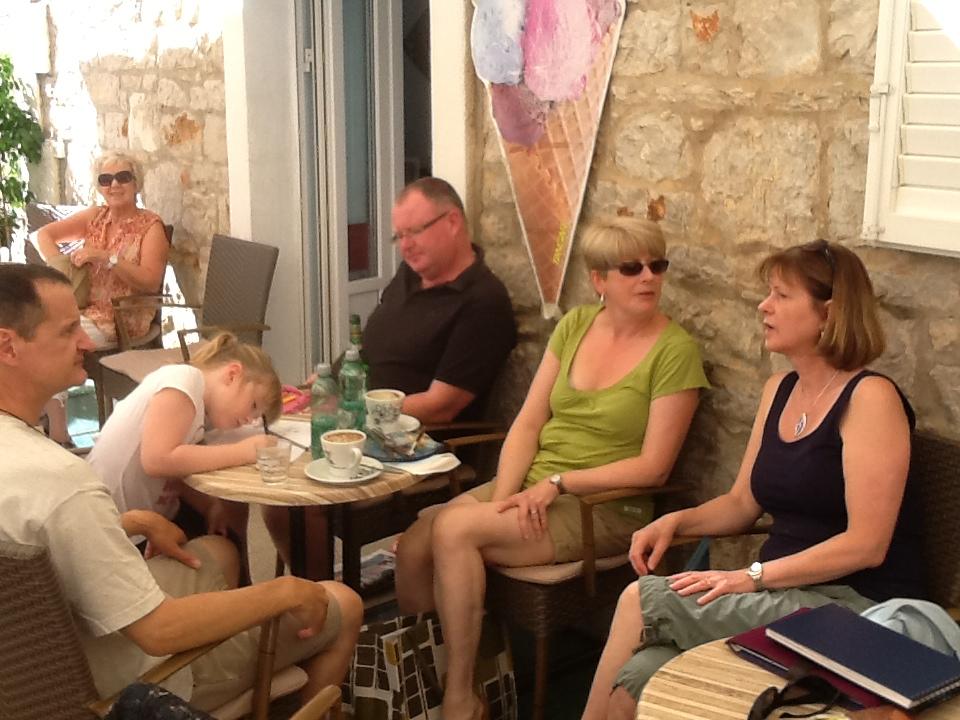
Healthcare was always great, not that I ever got really sick, but the emergency health point just outside the town was always excellent. On the one occasion we needed to get our child to hospital urgently, the helicopter from Split arrived in 12 minutes, and 12 minutes later mother and child were at Split hospital. You could not get there quicker from many parts of Split itself. Dental care was outstanding, and if you went privately, 200 kuna was the going rate for a filling.
So why, if life on Hvar island is so perfect, am I not still there?
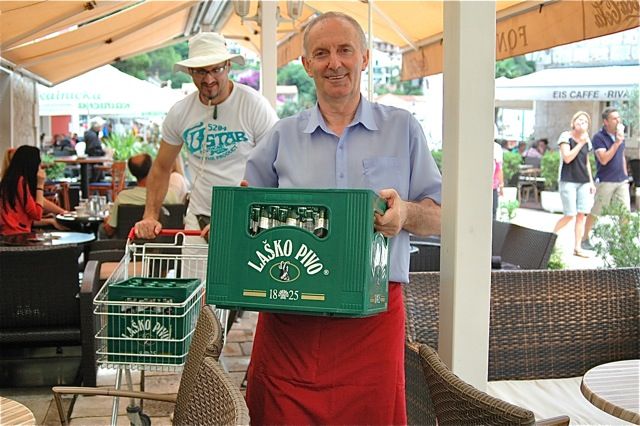
Life on Hvar island really IS perfect, but it takes a specific mentality to live on an island I think. I often say that full-time living on a Croatian island should be given intangible UNESCO heritage status, as without those who do, tourism would not happen to the same degree of quality. And I would heartily recommend it as a way of life, especially if you have a young family. It is without doubt one of the best places to raise young children (20 Ways Croatia Changed Me in 20 Years: 10. Raising Children), but it is also true that the reality of full-time living there is that locals are all busy making their money in the season, and so have little time to enjoy, and in winter, when there is time aplenty, nothing is open. Going somewhere for the weekend becomes a challenge after you have visited the low-hanging fruits of Split and surroundings, as everything starts and ends with a 2-hour ferry, of which there are only 3 a day in the off-season.
I personally MUCH prefer winter.
Although if there was no Internet...
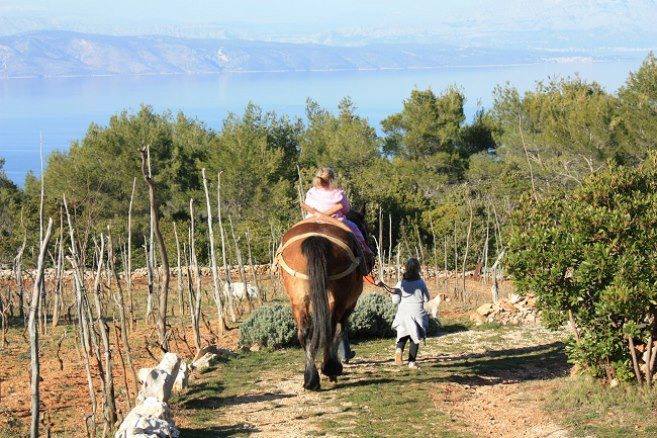
And, as wonderful as it is for young kids, options are more limited after the age of 10 or so. Besides we were ready for a change after 13 years - there are only so many conversations you can have about olives.
Varazdin, and now Zagreb, has been a completely different experience, and I am loving the diversity and energy of city life, but always in the knowledge that my beloved Hvar island is just a few hours away. Having lived there full-time for 13 years, I now enjoy it in the same way that most Croatians do - in the summer.
Oh, and the olive harvest of course.
A new breed of foreigner is starting to discover Hvar and other Dalmatian islands - the remote worker. Just over 18 months ago, two digital nomads contacted me to rent our place, as they heard that the view and terrace were divine (they were not wrong). They ended up staying for 8 months after I helped them get the digital nomad permit. A very photogenic American couple from Silicon Valley, I thought they would make a great story on why Hvar island out of season. They agreed, some phone calls were made, and I do encourage you to watch this excellent report, which went out on primetime national TV (98% in English) on the lives of Jess and Thibaud and why they love life on a Dalmatian island in winter, above.
Are you a remote worker? This could be you...
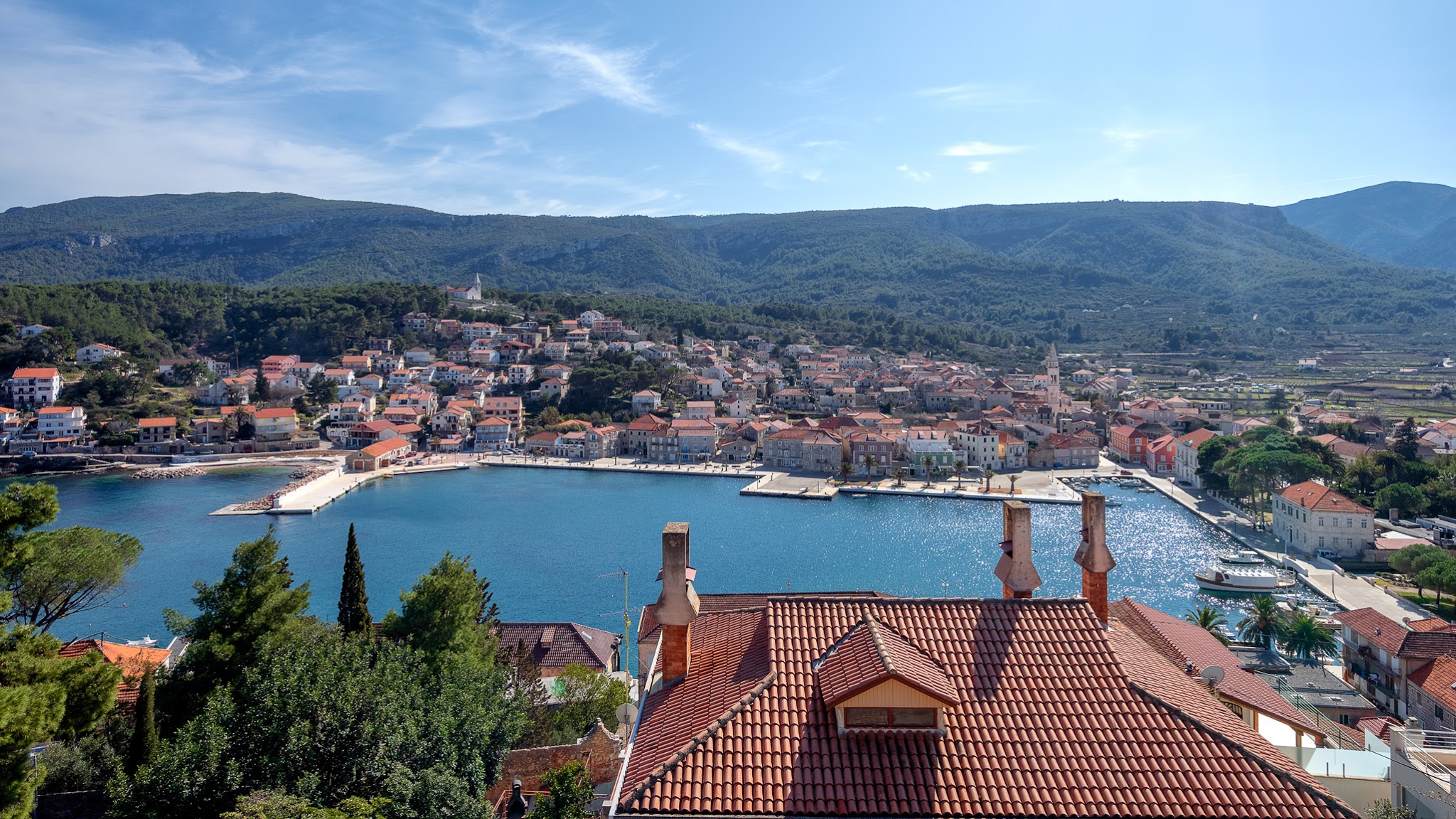
That terrace view is pretty fab, isn't it? There are still a couple of weeks free in September (as well as 2023 of course) at Panorama Penthouse Jelsa, but hurry.
I highly recommend it. Who knows, you may end up staying 13 years...
****
What is it like to live in Croatia? An expat for 20 years, you can follow my series, 20 Ways Croatia Changed Me in 20 Years, starting at the beginning - Business and Dalmatia.
Follow Paul Bradbury on LinkedIn.
Croatia, a Survival Kit for Foreigners will be out by Christmas. If you would like to reserve a copy, email This email address is being protected from spambots. You need JavaScript enabled to view it. Subject 20 Years Book
20 Ways Croatia Changed Me in 20 Years: 15. Running an English News Portal
July 30, 2022 - Twenty years a foreigner in Croatia. Part 15 of 20 Ways Croatia Changed Me in 20 Years - ever wondered what it is like running an English-language news portal as a foreigner in Croatia?
I have been out of my depth many times in my life. Running a humanitarian aid distribution operation on the edge of Siberia over an area the size of Germany (but without the infrastructure or communications) was an early highlight, to be surpassed by being given a project to organise the distribution of food, seeds and tools to 600,000 returning refugees and internally displaced people in eastern Rwanda on my second day in Africa two weeks after the genocide.
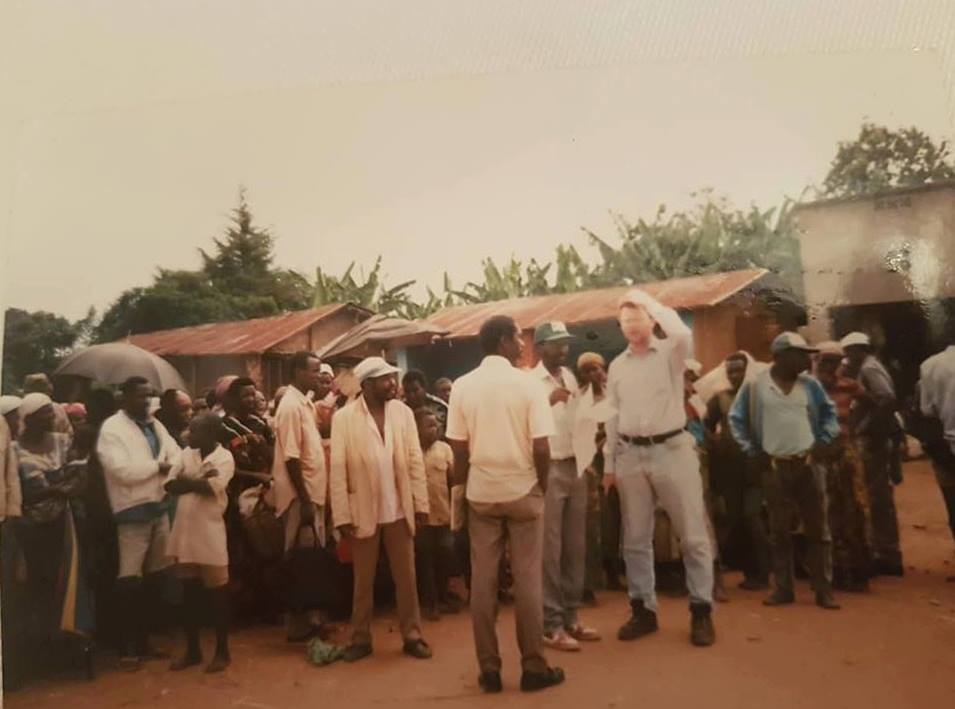
Being warmly greeted in 1992 at one of Russia's premier and secret military technology facilities outside Moscow with the words - Mr. Bradbury, we are delighted to have you here. Last month, we had a delegation the US Department of Defense, last week from the Israeli Defence Force, yesterday NASA, and here you are, our first British client. And without doubt, teaching English one-to-one to a Japanese 2-year-old sitting on his mother's knee in Hiroshima - never have 60 minutes been so long.
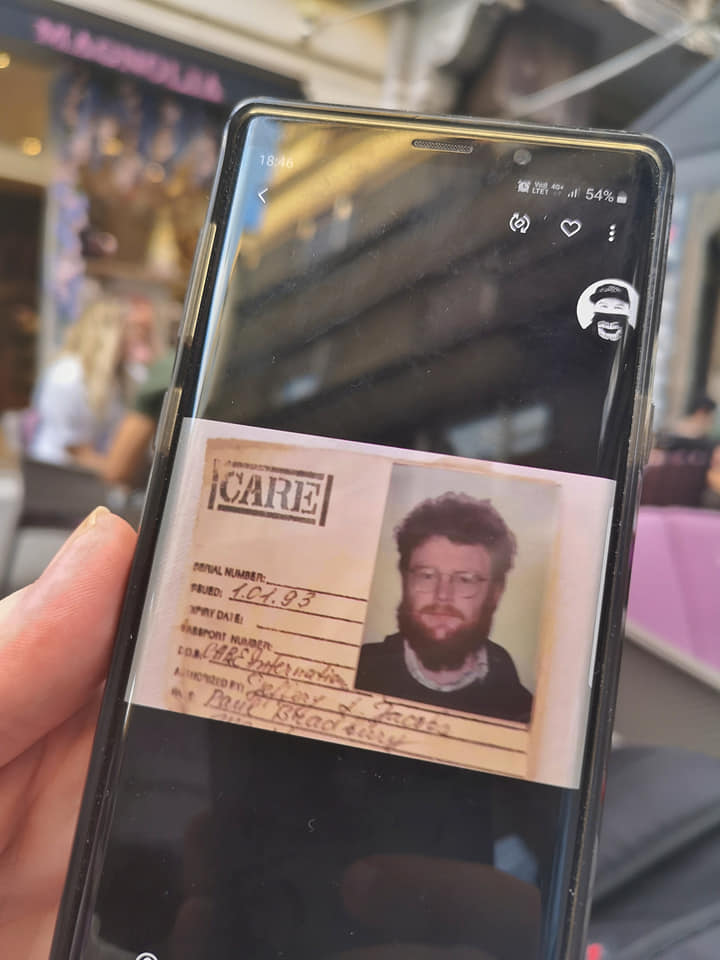
And then there was the case of running an English-language news portal in Croatia.
Over the last 7 years, I have read so many conspiracy theories about who is behind TCN - Putin, Soros, Greater Serbia, sometimes all three at the same time - how I am working for MI6, CIA, Mossad, Greater Serbia and FSB, and the millions bankrolling the portal that I am honestly in awe of how seriously people take TCN and the motives behind it.
I just wish the money bit was true...
If only they knew that it was conceived over a cold one in Jelsa by a Brit who really didn't have a clue about Croatia apart from his adopted island of Hvar, the area around Diocletian's Palace in Split, and Zagreb bus and train station, despite living in Croatia for 13 years.
So good was I that when I interviewed the then President Josipovic for Google News in his reelection campaign for a Canadian news portal, I had no idea which political party he was in.
But I saw an opportunity, for although Croatia had been in the EU since 2013, there was no regular English-language news portal. How hard could it be?
I roped in a couple of colleagues who were bilingual and knew Croatia much better than me, and we decided to give it a go. I called in a few favours with friends all over the country and asked them to contribute an article or two to make us look bigger than we were. I got a little financial help and some mentoring from two Croatian friends, and in early July, 2015, we were good to go.
In order to show how serious this new portal was, I worked hard to get some good initial interviews. The South Korean Ambassador was kind enough to give me an interview on the rise of Korean tourists to Croatia. But I wanted a really marquee interview to impress the world to announce our arrival, and I was particularly keen to woo the diaspora. As many did not speak Croatian, TCN should become their natural home for news about their homeland. How to impress them on Day 1?
Did I mention that I did not know anything about Croatia apart from my own little bubble when I started TCN?
I also knew nothing about the diaspora, or how diverse it was, or how passionate. That the diaspora in New Zealand was more Dalmatian than Croatian and had its origins in economic decline due to the devastating phylloxera and punitive taxes on wine by the Austro-Hungarians in the 19th century, while a major part of the Australian diaspora had its roots in fleeing Europe in 1945 and persecution by Tito into the 1960s and beyond. Two very different Croatias growing up in two countries the other side of the world.
I was unaware of any of this as I proudly completed my first star interview, with the then Croatian Foreign Minister. How impressive was that?
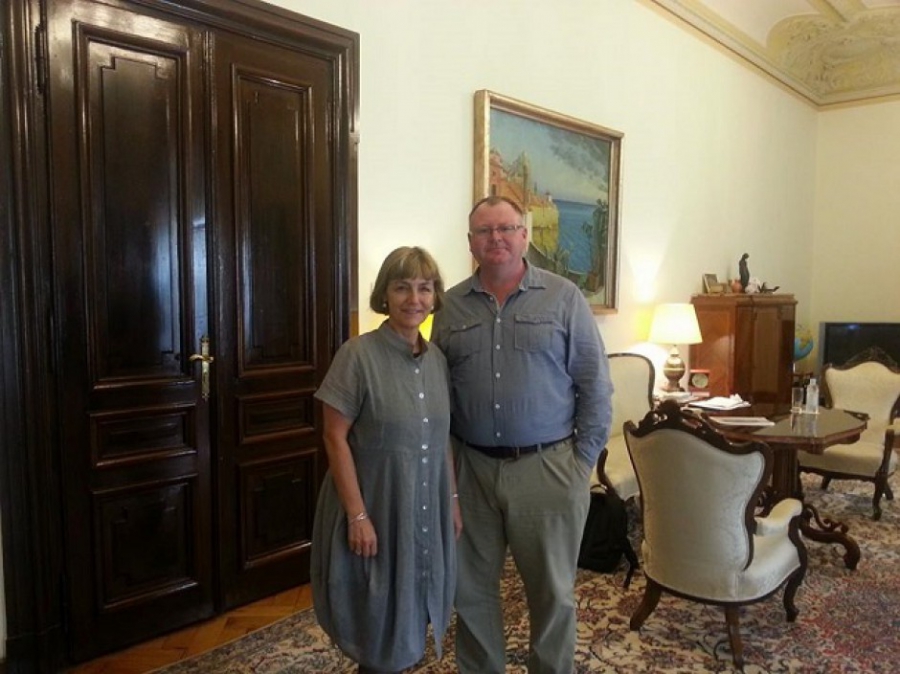
I proudly presented my star article for the first day, an exclusive interview with Vesna Pusic, complete with photo in the Foreign Minister's office.
I was pleased with myself, poured myself a cold one, and sat back to watch the favourable feedback, particularly from the diaspora audience I was so keen to cultivate.
"What is this Commie, Tito-loving garbage of a page? Probably funded by MI6. Unliking this page immediately." A summary of about 30 comments which left me severely deflated. What was wrong with Vesna Pusic?

It was the beginning of a 7-year love affair with my online trolls which we covered in a previous chapter - mostly from Australia - and who collectively have created my tombstone epitaph, of which I am immensely proud - 'Tito cock-sucking British Jew writing fluff to humanise mass murderers in the Jewish style when socially engineering a people for ruin.'
Beat that!
And so began a crash course in Croatian politics, which is VERY complicated. I learned the importance of having to identify where you were in 1991, for example, a date when true patriots were counted fighting for the homeland.
 Just what the hell had I gotten myself into?
Just what the hell had I gotten myself into?
And then my first exclusive! And quite a good one too.
Late one night, I got a message that Demi Moore was on Hvar. I checked the usual channels - Twitter etc. - and nobody had the story. I also had a photo from social media and so published. It was the first adrenaline rush from Google Analytics Real Time (a feeling I have come to know well over the years). Disappointingly, most of the Croatian media chose not to link back to my story (something I got VERY used to very quickly), but I was starting to get noticed.
We stumbled on, gradually finding our feet, and by the time he had been live 6 months, we were featured in the national media, including a statistic of which I was very proud - according to Google Analytics, we had been read in every country in the world, except North Korea.
Part of being noticed as a portal meant that the national media was starting to follow what we were putting out on a daily basis - the Demi Moore exclusive had perhaps made us worth following. I had already had my first taste of the media deciding to make you the story without your knowledge a couple of years earlier, when I was sent the link below, which roughly translates as Boy George performed on Hvar, a famous blogger claims: "What an idiot!"
My blog about Boy George keeping the media waiting until 3am and then only allowing us one question each (at which point I said I had no questions) had been picked up by the national media. At least I had the title of 'Famous Blogger.'
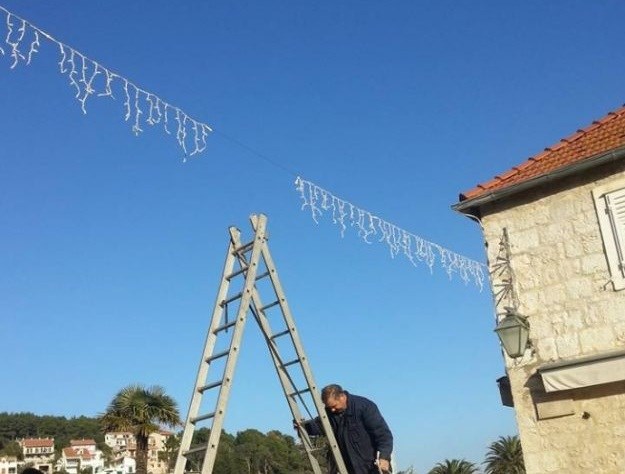
But nothing showed me the power (and uncontrollability - if that is even a word) of this new medium than a small little incident that was observed only by me in mid-December 2015 on a very sunny day on the main square in Jelsa.
There was quite an uproar in town after the Christmas decorations went up on the main square. The main star in the middle of the square as you entered was a 5-pointed star. Perfectly innocent to you and me, but an obvious Communist subversion to some. There was even a rumour that the star would be replaced with a star of Bethlehem to appease the right wing. The following day I saw two men loitering with a ladder, clearly up to something, but as the square was quite busy, they seemingly put on hold whatever they were planning.
Until, at least, everyone had left the square for lunch except for one person - me. Ordering another cold one, I watched in disbelief, snapping all the way with my phone, as they removed the offending star and replaced it with Bethlehem.
"What are you doing?" I asked innocently. "Is changing the star some kind of tradition?"
"We do not celebrate Communism here," came the gruff response.
What a title! A title that was the top story all over Croatia within 6 hours. And the story ran for WEEKS locally, with me making a cameo appearance at the political sketch in the Carnival some months later. The Mayor was in a political pickle - if he reinstated the star, he would be a Communist, and if he kept the star of Bethlehem, he would be an anti-Communist. He decided to compromise on having both stars.
"I wouldn't do that," I advised. "If you do, you will be announcing Jelsa as officially Croatia's first 2-star destination, hardly a great promo."
I also found a little niche of constructive criticism. The Croatian media and Croatian readers seemed to be interested in the views of a resident foreigner, and I found myself appearing in the media more. I found also that my foreign eye with (increasing) local knowledge gave me a different perspective on things, and I started to take more of a critical view of things as I saw them, particularly regarding Croatian tourism.
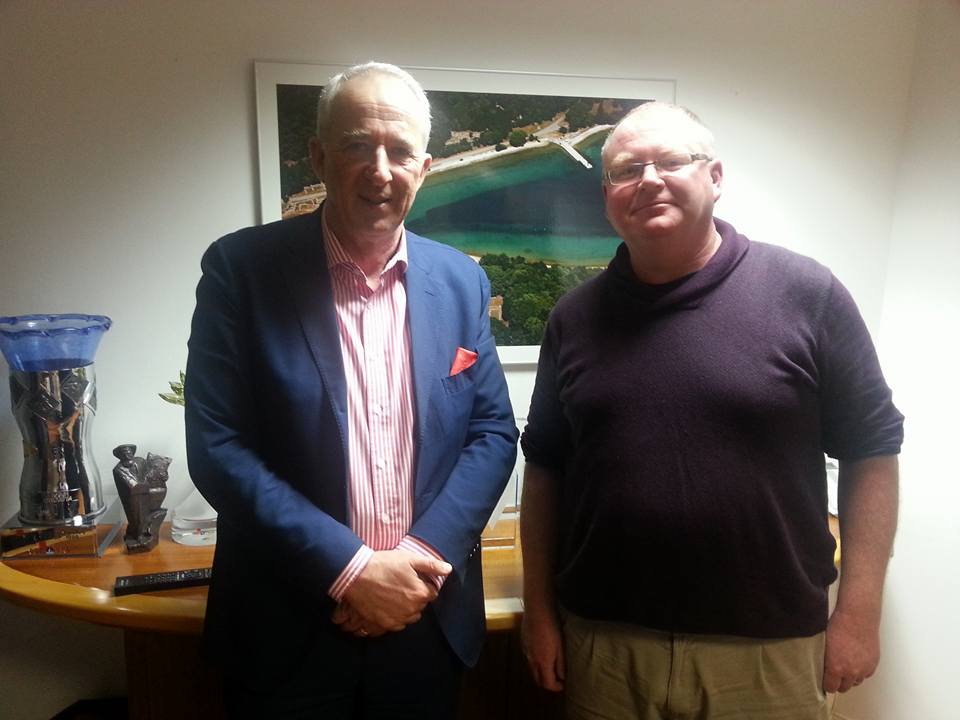
I published my critical appreciation of the Croatian National Tourist Board's flagship project, Croatia 365 at midnight on a Sunday, waking up to over 6,000 views and 7 messages in my inbox 6 hours later - all from Croatian media asking for a quote. And there we were, story of the day again.
There were also two phone calls, which led to two coffees the next day - one from the PA of the Minister of Tourism, and one from the then Director of the Croatian National Tourist Board, Ratomir Ivicic. It was the last time I met or was invited to meet a director of CNTB - the closest I have come since was being in the same courtroom, as we both gave evidence about a meme, one of two ongoing lawsuits against me from the national tourist board. You can follow my two ongoing lawsuits from the Croatian National Tourist Board in Diary of a Croatian Lawsuit, which will probably be a blog which will outlast TCN and be resolved in Strasbourg in 2063.
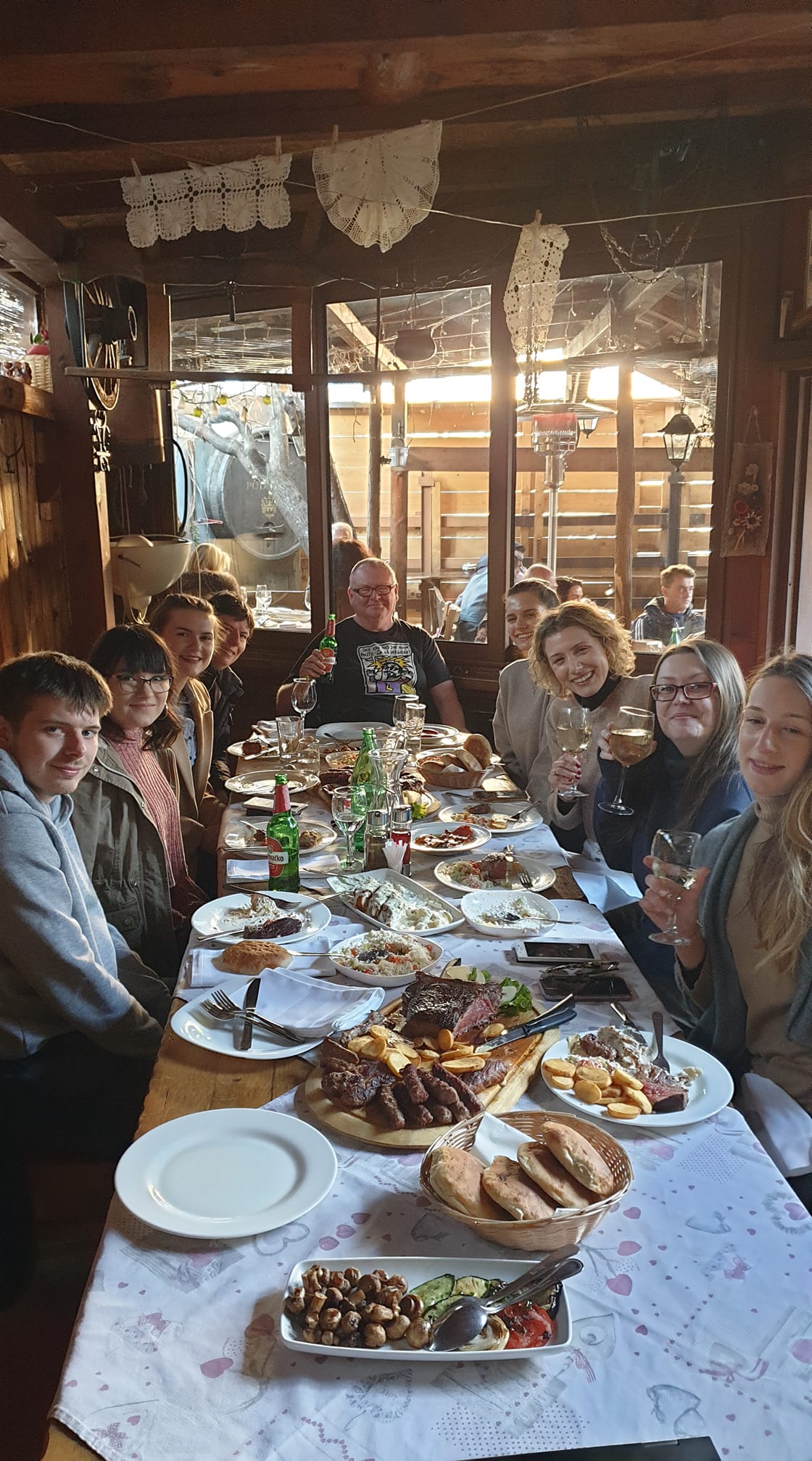
(TCN 2019 Xmas party... in March 2021, a symbol of my inefficiency)
Writers came and went. I readily admit that I am the most disorganised person in the world. A project which started with a beer and a laptop in Jelsa in 2011 with me in charge was going to struggle with growing pains. Thankfully, 2016 was a golden year for TCN. Three young ladies joined the team, and they all put their mark on things very quickly, getting me organised, bringing different perspectives, and crucially a much better understanding of Croatia than I possessed. Many have come and gone since - TCN and its devolved chaos is not for everyone - but Lauren Simmonds, Daniela Rogulj and Iva Tatic have been beyond magnificent, eventually telling me that they would run TCN much better without me in control. We tried it, and they were absolutely right.
Lauren is currently TCN editor, the best and quickest translator I have ever come across, who takes particular pleasure in the intricate workings of MUP bureaucracy. Her authoritative guides to residency issues are much appreciated by many, and she holds the record for the longest ever TCN article, a 10,000-word ode to Agrokor, which was utterly brilliant.
Dani is a Californian Dalmatinka who has really grown with TCN, and who has been the engine keeping it going from the moment she started. An incredibly capable all-rounder, with the best work ethic I have ever come across, she has blossomed in so many ways, from mentor to other writers and interns, to developing her name as a serious sports writer in the Croatian space. From press season-ticket holder at her beloved Hajduk, to the national stage. Seeing her reporting from Wembley, live on Talk Sport radio in London, and reporting for TCN at the Euros is a reminder of just how far TCN and Dani have come. She has really done a fantastic and comprehensive job on all sports, and I look forward to Dani's take reporting for TCN as an accredited journalist live from the World Cup in Qatar later this year.
Iva is also another excellent all-rounder, available to plug the considerable gaps at TCN where they appear. I have never met anyone in Croatia who knows as much on every subject as Iva, and her no-nonsense approach and organisation has made us a better unit overall.
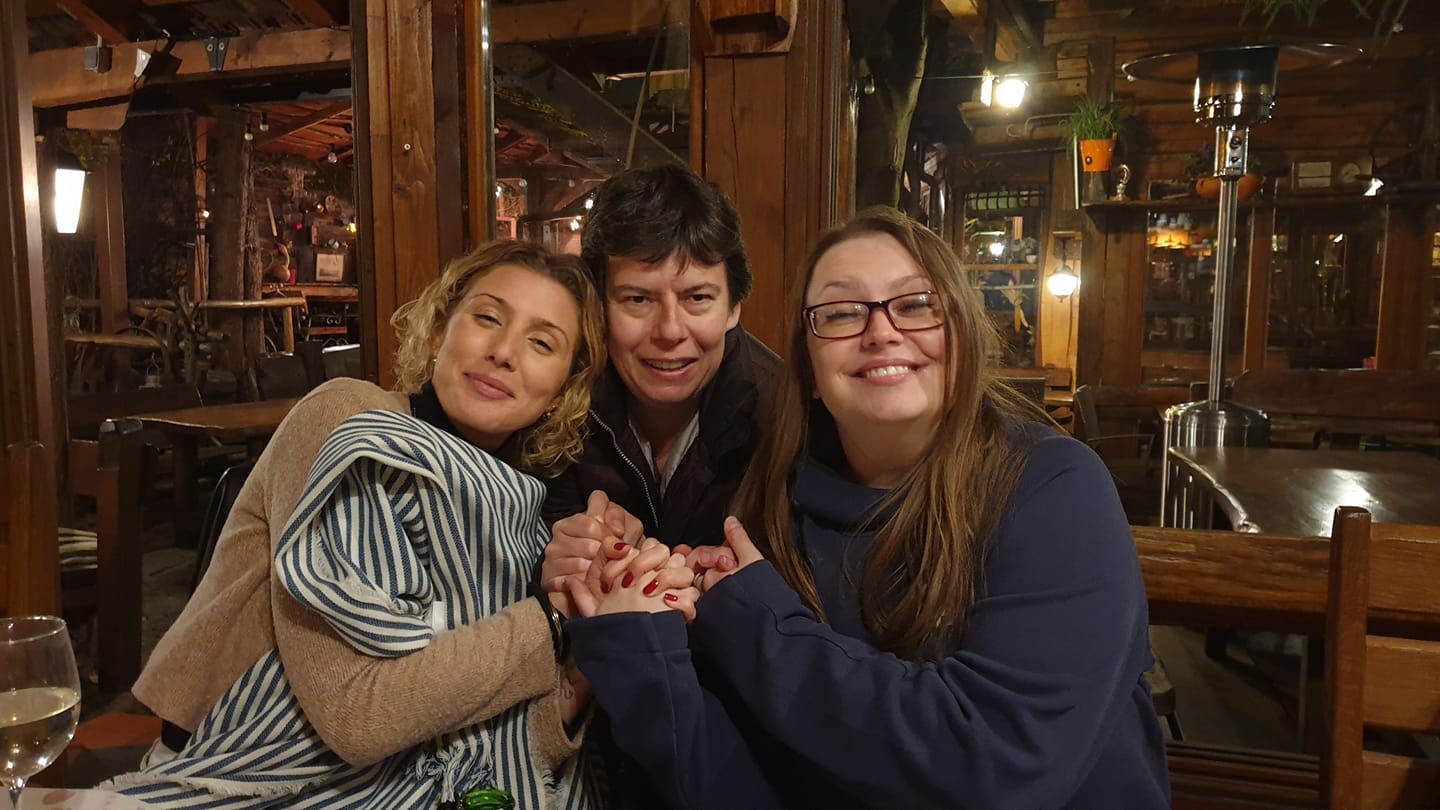
(TCN core team, from right to left - Daniela Rogulj, Iva Tatic, and Lauren Simmonds)
To the three of you - and all other TCN writers over the years - thank you for all your efforts.
An invitation to give a seminar to journalism students at the University of Zagreb was a journey into unchartered waters but led to an ad hoc TCN intern programme. Only 9 students (and some suspicious chap at the back nobody knew) turned up to hear me drone on, but three of those applied to be interns. We have had about 20 interns since we started, with mixed results, but it has been heartening to see at least 5 of them now in journalism jobs. I most frequently see young Donatella at press conferences reporting for Lider - it is one of life's tiny pleasures to see their careers evolving.
Being 100% independent has meant that we are free to choose our topics and pursue our own initiatives, some of which take hold and bear the most prosperous fruit. It is great to see how far the digital nomad story has come since we started advocating for it back in 2019, and I am very proud that we introduced Jan de Jong to the concept of digital nomad tourism (see above) - what Jan and his team have achieved since has been nothing short of phenomenal.
Ditto the partnership between TCN and Saltwater Nomads, the pioneers for me in the remote work space in Croatia. Tanja Polegubic has done fantastic things to lift Croatia's profile, and TCN has been a proud co-organiser of the award-winning Zagreb Digital Nomad Week and Dubrovnik Digital Nomads-in-Residence programme (both Saltwater concepts), and we are looking forward to Zagreb Digital Nomad Week 2022 in October - details to be announced very soon.
The longer we were around, the more interesting people we met, and inspirational pioneers such as Ognjen Bagatin unveiled a fascinating world of potential that I had no idea about - medical tourism.
The Croatian medical tourism story is fascinating, and there is SO much potential - Croatia really does have a world-class offer. It was a TCN highlight to accompany Ognjen and Andrea to Berlin and watch Bagatin Clinic named Best International Cosmetic Surgery Clinic of the Year at the 2019 International Medical Travel Journal awards in Germany (see above).

That was the second international flight of the year due to medical tourism, as my wife and I flew to Malaysia, where TCN picked an award at the inaugural Medical Travel Media Awards in Kuala Lumpur.
This happened shortly after my 50th birthday when I was coming to terms that I would perhaps achieve nothing in life. And then in the space of a few weeks, I won the medical travel award in Malaysia, was a published author in The Daily Telegraph, and - most unbelievably of all - started my career as a male model as the 22nd model in the fabulous Varteks campaign, Imperfect Guy in a Perfect Suit. When I learned that I was actually the first international male model in the company's 100-year history, my life was complete.
If there is a better job in the world than this - or one more random - I am yet to find it.

The more I got to know Croatia, the more I realised that the much more interesting stories lay away from the beach, and away from tourism. The nepotism and corruption and the status quo were the main factors behind the mass emigration, but it was only one part of the story. For there were so many good stories happening in Croatia, of young people staying and trying to make things work, despite the negativity. I came to realise that there is a default negative mindset in Croatia, where every new positive initiative is met with skepticism. Yes, it may work in every country in the world, but this is Croatia...
Attempting to inject a little positivity into the default negative mindset has been a fascinating little project for TCN, and we have had some successes. I was very honoured to be invited to speak at the excellent LEAP Summit on the topic Injecting Positivity into the Default Negative Croatian Mindset, which you can see above.
TCN's finest hour? Without a doubt March and April of 2020 when Dani and Lauren soared above their usual high standards, and together we knuckled down and did what we could to survive. Having lost almost every client overnight, Adsense was keeping us alive, and we decided to be the best resource out there for COVID-19 info, including live updates. It was punishing, but appreciated by many. And then, when we almost couldn't anymore, the devastating March 22 earthquake in Zagreb, which hit at 06:24 in the morning. I was already up and reporting on COVID when I got the first call in bed on Hvar at 06:25. By 06:39, we had broken the story in English on Google News, a story which was read by almost 150,000 people. The cooperation and teamwork with Dani and Lauren in those weeks was the best of my professional life.
And how could I fail to mention what was the most pressured but most rewarding TCN project of all, the Total Croatia Travel INFO Viber community, which was the only English-language resource in real time for COVID for a while, the brainchild of Kresimir Macan. It taught me so much, caused endless stress, but enabled thousands to visit Croatia during the pandemic. To receive 7 international awards, including from Polaris in London, was a proud moment indeed.
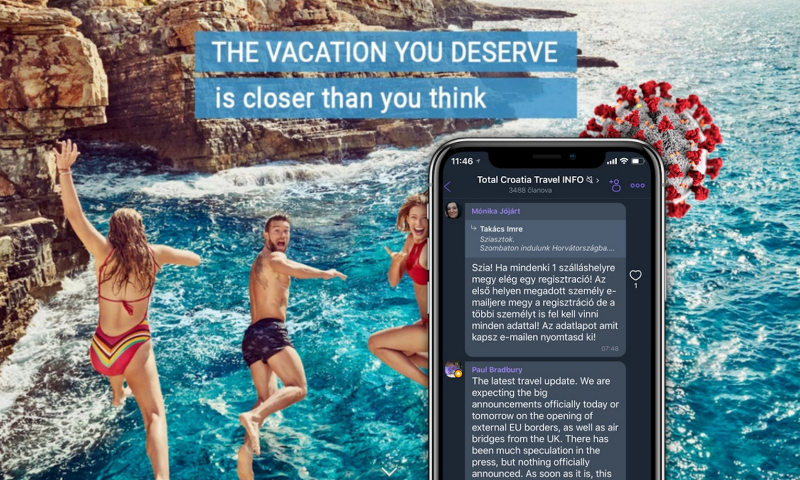
And there were some scary and very unpleasant moments along the route, not least in my beloved hometown of Jelsa, when I published a very well-researched analysis on the shady side of a public tender. The mayor (he of the 2-star destination above) was so incensed that he announced in a public meeting that he was suing me, as you can see below.
He never did, but things did get very unpleasant, so much so in fact that I ended up writing an open letter to the Prime Minister. And PM Plenkovic was generous enough to call me over for a chat, and even promised that he would never sue me.
And - so far - he has been true to his word. Thanks, PM.
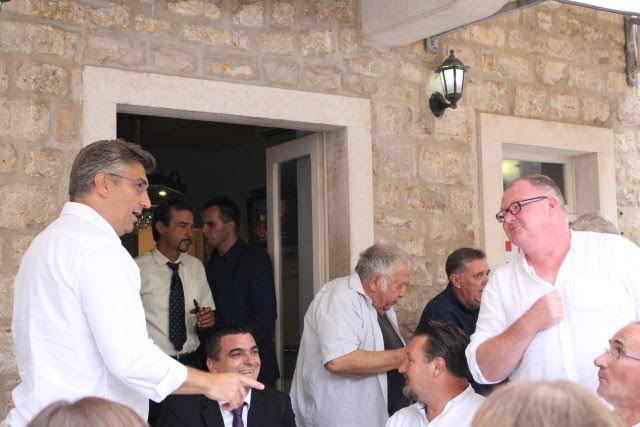
Seven years later, we are still not read in North Korea, and I still don't really know what I am doing, but TCN continues to thrive thanks to our fabulous team and loyal readers (and big shout out to the trolls, who keep us smiling). Croatia is changing, and so is TCN's direction - away from a focus on tourism into the world of business, entrepreneurship, social enterprise, and remote work.
There are many stories to be told, many initiatives to push, and a lot of fun to be had on the way. To the many people who have been a part of the TCN journey - including those with whom I have had differences - my heartfelt thanks. Having the best job in the world and enjoying the best lifestyle in the world is an incredible experience. Thank you for your part in that.
****
What is it like to live in Croatia? An expat for 20 years, you can follow my series, 20 Ways Croatia Changed Me in 20 Years, starting at the beginning - Business and Dalmatia.
Follow Paul Bradbury on LinkedIn.
Croatia, a Survival Kit for Foreigners will be out by Christmas. If you would like to reserve a copy, email This email address is being protected from spambots. You need JavaScript enabled to view it. Subject 20 Years Book
20 Ways Croatia Changed Me in 20 Years: 14. Vukovar
July 24, 2022 - Twenty years a foreigner in Croatia. Part 14 of 20 Ways Croatia Changed Me in 20 Years - one of the most emotive topics in Croatia, Vukovar.
I am a firm believer that even if you live for 20 years in a country, you will never understand it fully, and there are some topics that you will never have enough authority to write about. Things are so often not the way they seem on the surface, and a critical local audience (and Boy, how quickly I am reminded when I get something wrong...) will always have some insights or historical knowledge that you do not. It is one of the reasons that I never wrote about Agrokor and do so rarely about Croatian politics. And there are some topics which are not only too complicated, but also almost taboo, including one of the most painful in Croatia's recent history.
Vukovar.
I decided a long time ago that I would not write about Vukovar. What could I possibly say with my lack of knowledge on an emotive subject that lives with this young nation even after 30 years? One of the most impressive sights in Croatia each year can be seen all over the country on the November 18 anniversary of the Fall of Vukovar after a brutal 87-day siege by the Serbs in 1991. It was the most shelled city in Europe since the Second World War, at least until Mr. Putin decided to try and change the narrative in Ukraine on February 24.
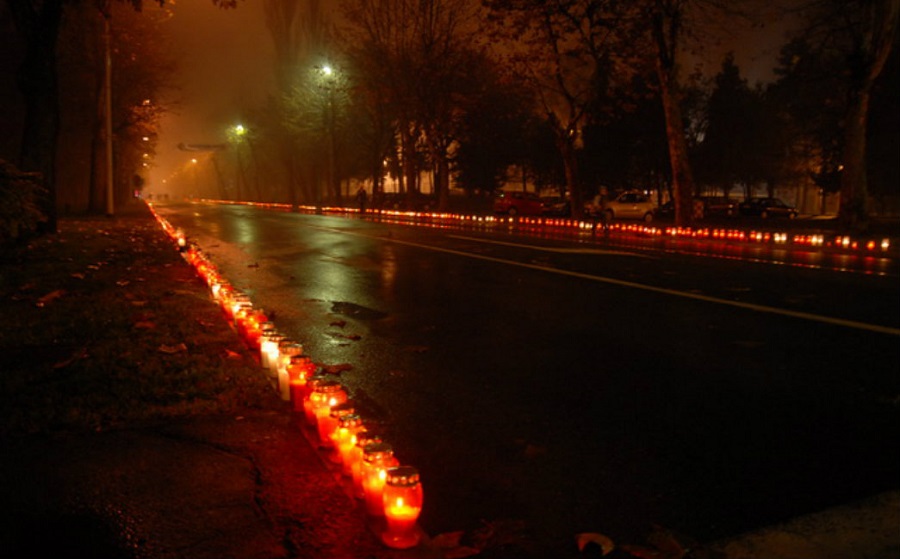
Every year, every Vukovar Street in the country (and any reasonably-sized town has one) is lined with candles of remembrance on either side. Some Vukovar streets are quite small; others, such as in Zagreb, are major arteries. They are all lit up the length of the street, without exception. A powerful memory and tribute.
My only involvement in Vukovar initially was as a father, making sure the kids lit their candle on the main square each year. And it was because of my kids that I finally wrote something about Vukovar after many years of silence.
Because I was angry. So angry.

When my daughter was in first grade, she came into our bedroom about 6 in the morning. She was shaking and had tears in her eyes. Shocked, I took her in my arms, covered her and hugged her tightly, helping her to calm down. What could possibly have happened?
"I think I had my first nightmare, Daddy."
How could that be? She lived on a beautiful island, everything was safe, her loving grandparents below doting on her daily. What could possibly have caused a nghtmare? I didn't pry, but tried to think; the date was November 19, the day after the Vukovar anniversary.
"Were they talking about Vukovar at school? What did they tell you?"
"Yes, Daddy, it is horrible. The Serbs came with tanks and they destroyed everything, and then they took an old man and put him on this thing, and then stretched his body, and then they put cigarettes out in his eyes." And she cried again.
Seven years old.
She then told me about the homework, and later went to show me hers.
"Some of my friends drew dead bodies, Daddy, but the teacher told them that they should not draw dead bodies."
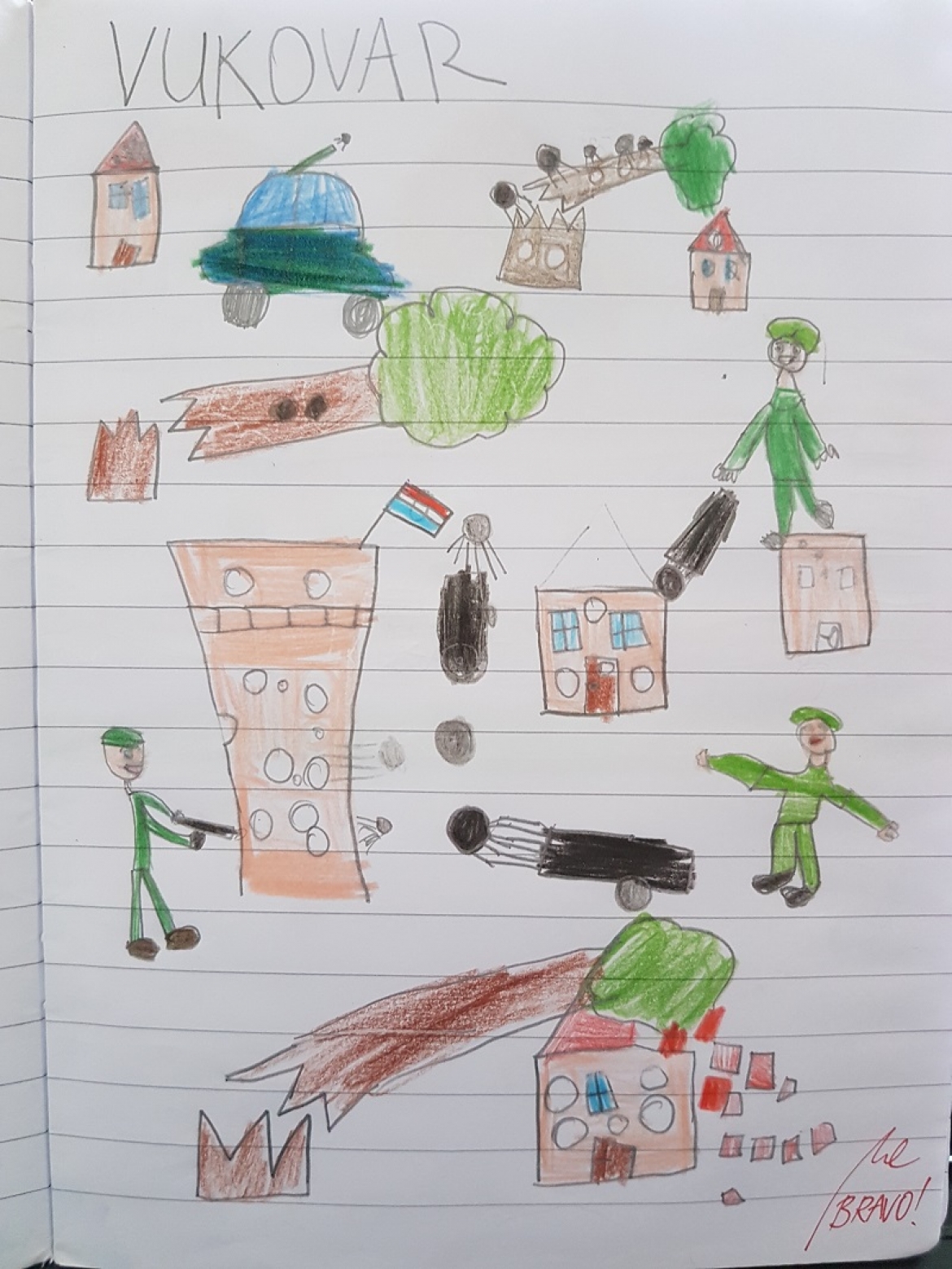
Here is her homework, the work of a 7-year-old previously innocent child. Note the 'Bravo!'
What kind of society was this that believed in perpetuating the hatred, even if it meant giving your own grandkids their first nightmares? I was so angry that I wrote about Vukovar for the first time: Is It Really Necessary to Poison the Minds of the Next Generation?
Having touched a sensitive topic, I was expecting quite a backlash, but none came. Only messages of shock, and of thanks for raising the topic. It is a topic where a lot is usually left unsaid.
Curious about how Croatian education approaches such a topic, I interviewed a primary school teacher on the crisis in education, and I asked her some questions about how Vukovar is taught in schools.
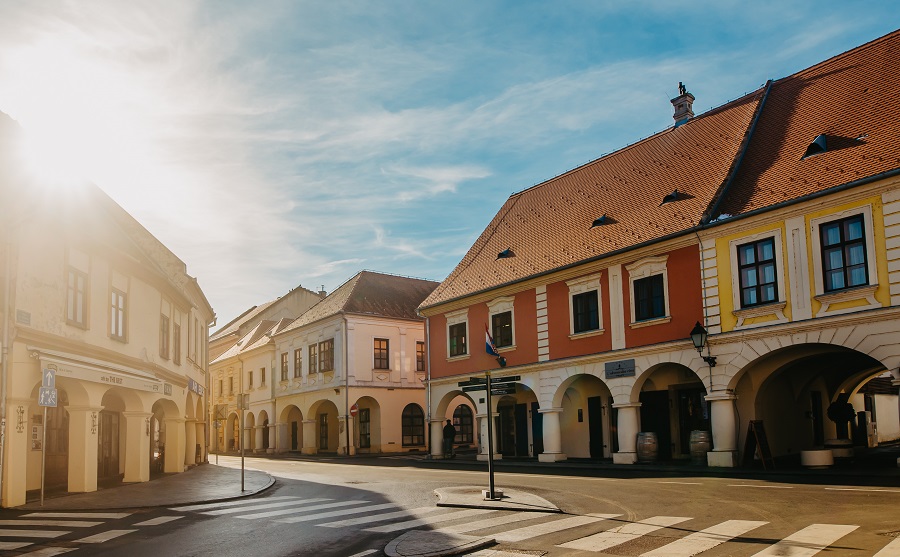
(Vukovar today)
4. Croatia's recent painful history is still very raw, and you yourself had a very turbulent childhood, growing up during the Homeland War. It is a very delicate subject that is hard to handle. How is the subject of Vukovar handled, for example, and what help do teachers get to deal with such a difficult and emotional topic?
I have been working in primary school for three years and I have found it very difficult to represent the Vukovar tragedy in an appropriate way. What should I say to children? I decided to tell them my story as it was the best way for me to deal with it: I was seven when the Homeland War started. Thank God, we lived in a safe place, however we watched television, we grew up watching dead people covered in blood on the news, we heard the fierce voice of Siniša Glavašević only a few days before the fall of Vukovar, we met lots of refugees who were our school colleagues in the early 1990s, frightened, silent, with pure horror in their eyes. We were taught not to ask them about anything. Who knows how they managed to escape from that hell in Vukovar, Sarajevo, Bugojno…Yet, in all that hell and fear my parents never taught me to hate anyone and that you always have to be kind to everyone, no matter what. I used to listen to children who are maybe now 12,13 years old, which means they were born way many years after the war, and they talk with such a hatred about Serbs and the Homeland War. And you know that they heard that from their parents. That is a shame and a pity. Talking about the Homeland War, we have to teach about dialogue, forgiveness, piety and kindness. That is one way to build peace in our society.
5. By law, school children have to visit Vukovar at least once at the age of 14. What are your thoughts on this, and do you think it is an important lesson perhaps better saved for later in a child's education?
I used to compare Vukovar with Auschwitz. Once the largest concentration camp in Europe, Auschwitz is the most depressing place I have been to. Time stopped there: small grey houses, grey trees, an empty and deserted railway, it seems that the whole place is still covered in the ash of dead people. The same feeling I had had in Vukovar. I was only there once, in 2002, and our bus stopped two miles before Vukovar. The reason was there was demining going on. Upon arrival we saw the new market place in the very centre. We were told that there is a mass grave under the concrete floor. However, one could see that the town had begun to change, to rebuild its life and to try to move on. From that time on I have constantly thought that this country will not let Vukovar heal its wounds, to keep its head up and to meet its happy days. We teach our children that Vukovar is a place of tragedy and horror and not a place of hope. It all depends on which message one can bring from Vukovar - if you remember Vukovar only once a year, in November, for you Vukovar is a sad place. If you, for example, buy Borovo and Starstar shoes, you believe in normal life in Vukovar. I advise children to love Vukovar, to consider that town as a place where life went on in a tough but a beautiful way, step by step.
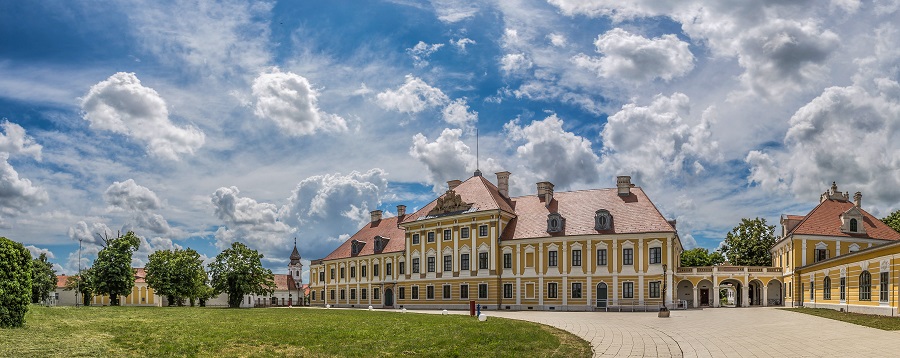
(Vukovar today)
Education and Vukovar is an emotive topic, with Serb and Croat children still in separate classes 30 years on. In what was one of the best articles on TCN this year, our Vukovar correspondent Katarina Andjelkovic wrote a brilliant piece on how Serbs and Croats approach teaching history on this very delicate subject. If you are interested in the topic, I highly recommend History of Vukovar or History in Vukovar? No, Our Future Please.
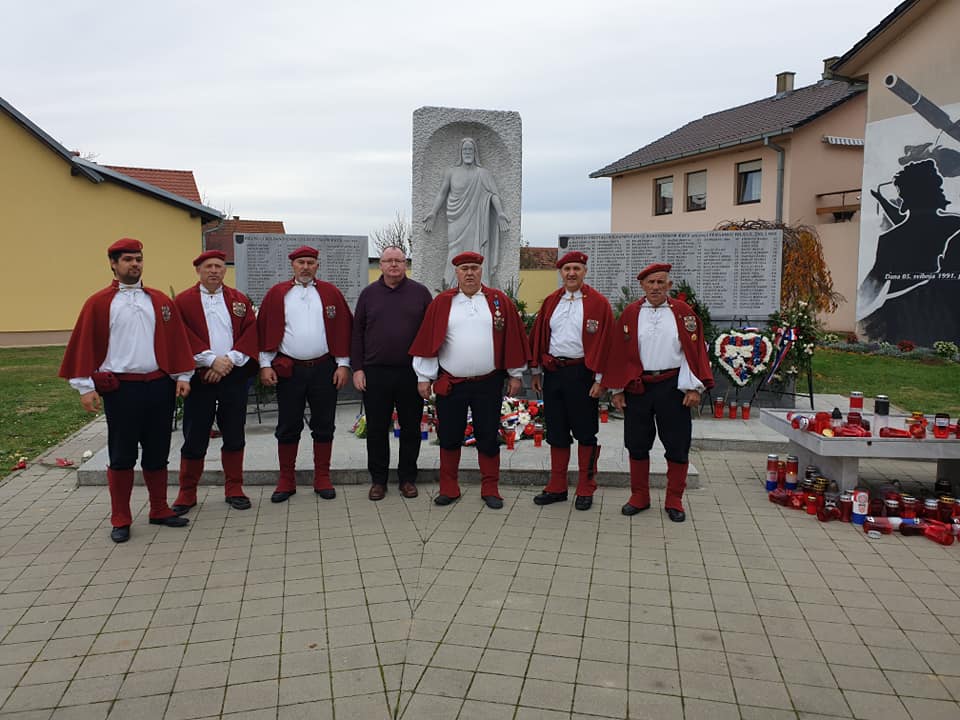
Three years ago, I got a phone call from the Prime Minister's former Communications Director, Kreso Macan, a good friend:
"Hey Fat Blogger, if you want to get to know all of Croatia, you should really see the Vukovar Remembrance Day Parade. It is quite something. I will be walking with the Dubrovacki Trombunjeri, and you are welcome to spend the day with us."
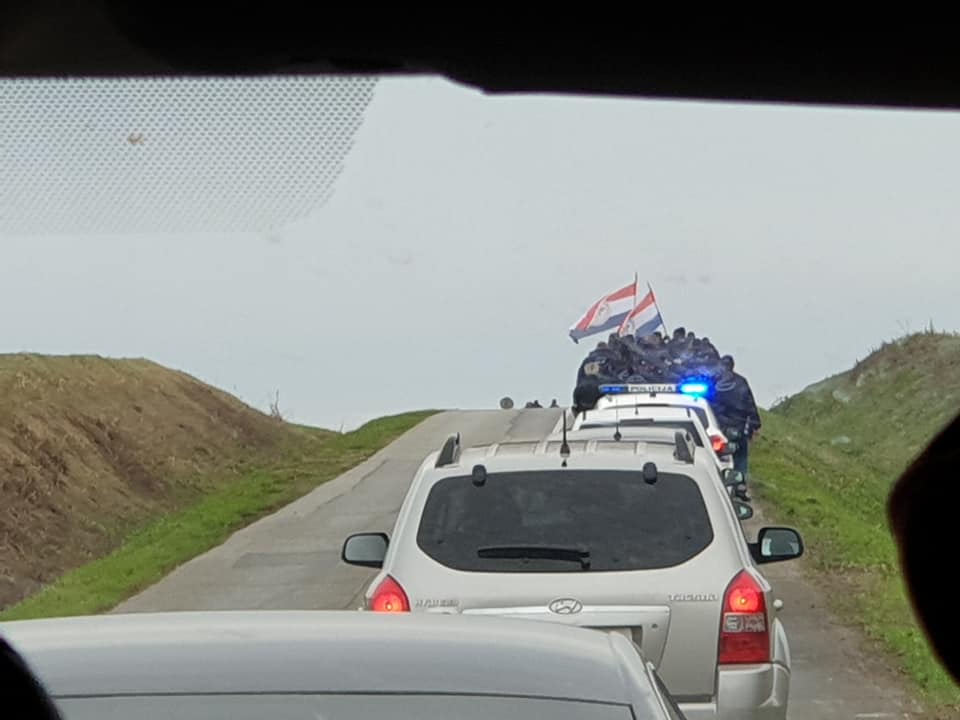
And what a day it turned out to be.
I was initially a little hesitant. Again, who was I as a foreigner to write about such a sensitive subject? But when I searched online, I found that nobody had written a detailed account of the day in English, and so I decided to go and document the day in depth. You can read that report in full at Vukovar Remembrance Day Through the Eyes of a Foreign Resident.
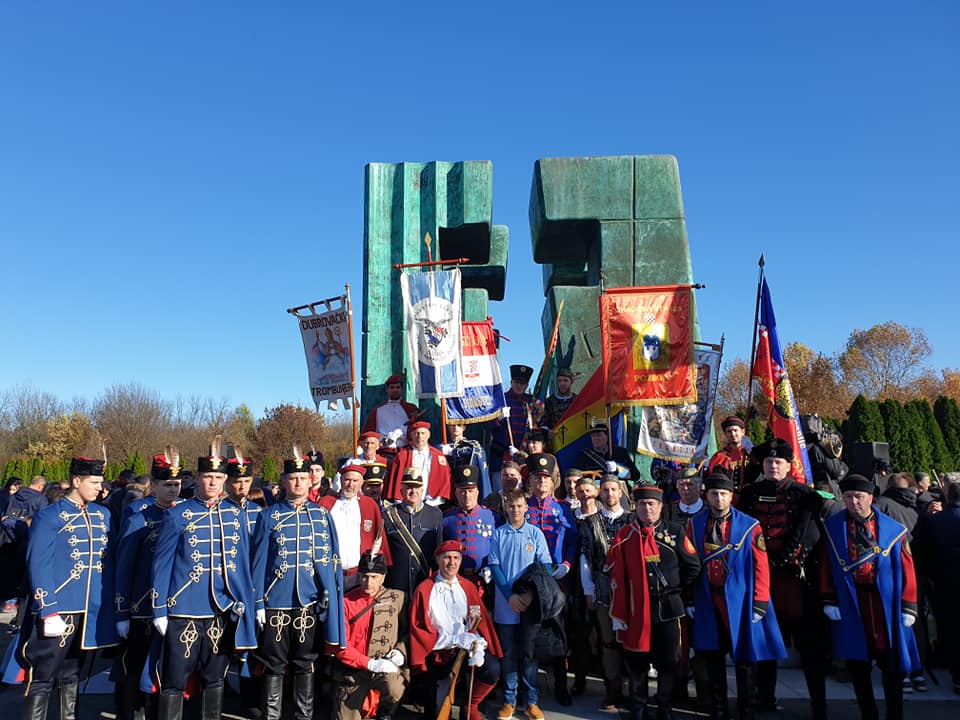
It was harrowing, particularly the tour of the hospital which performed miracles during the siege, before everyone was taken away and murdered after the surrender. So many people, so many faces of anguish. The looks on the faces of the people at the most emotional moment, the playing of the national anthem and one minute's silence before the 6 km walk to the cemetery.
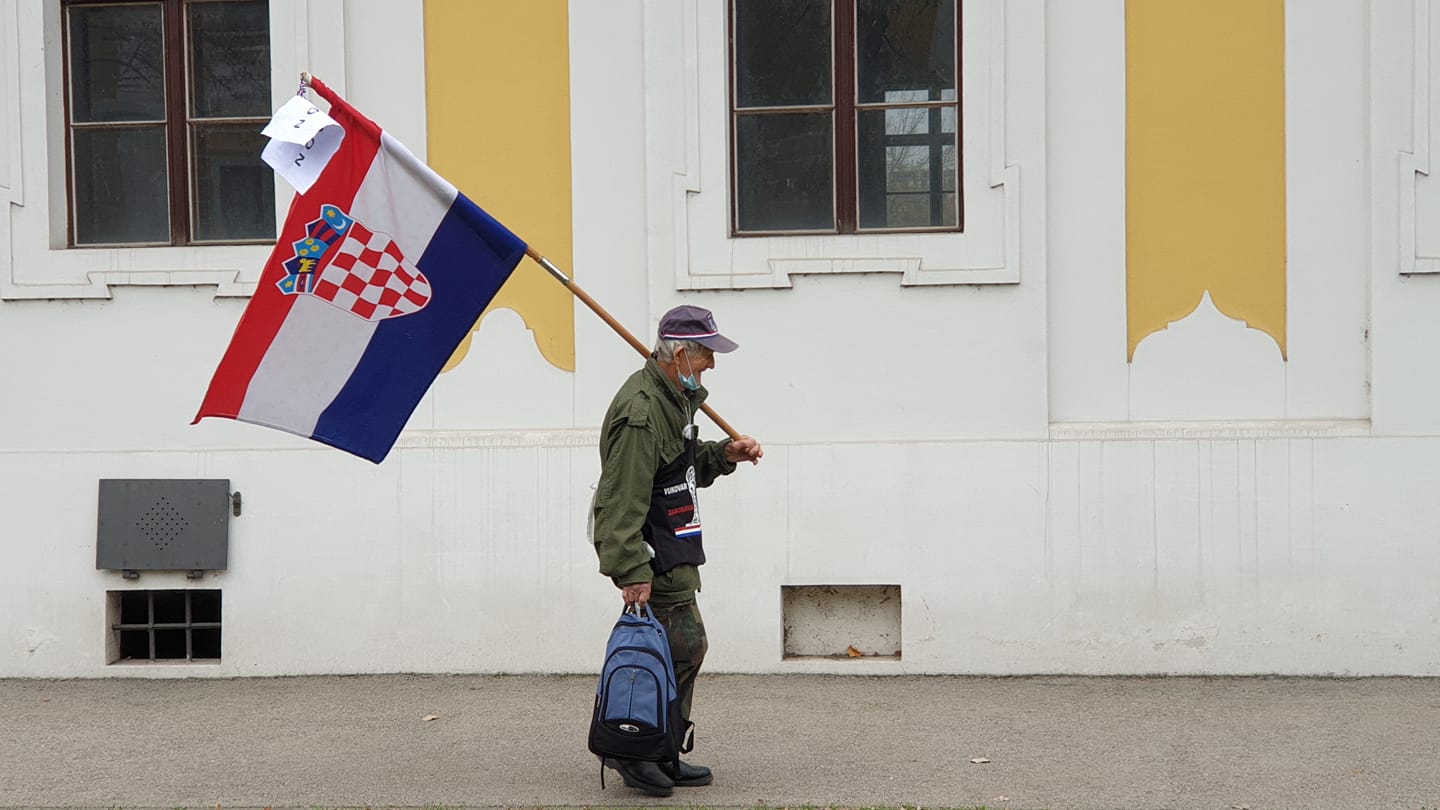
Haunting.
But what I noticed more was the hypocrisy of the politicians, who were jockeying for position and political capital for the most poignant message and photo opportunity. Were they here to remember the victims of Vukovar or for their own purposes? Talking to local peeoplee was very informative - yes, they were happy people came to remember, but they also had come to learn and accept that Vukovar simply did not exist in the minds of politicians for 364 days of the year.
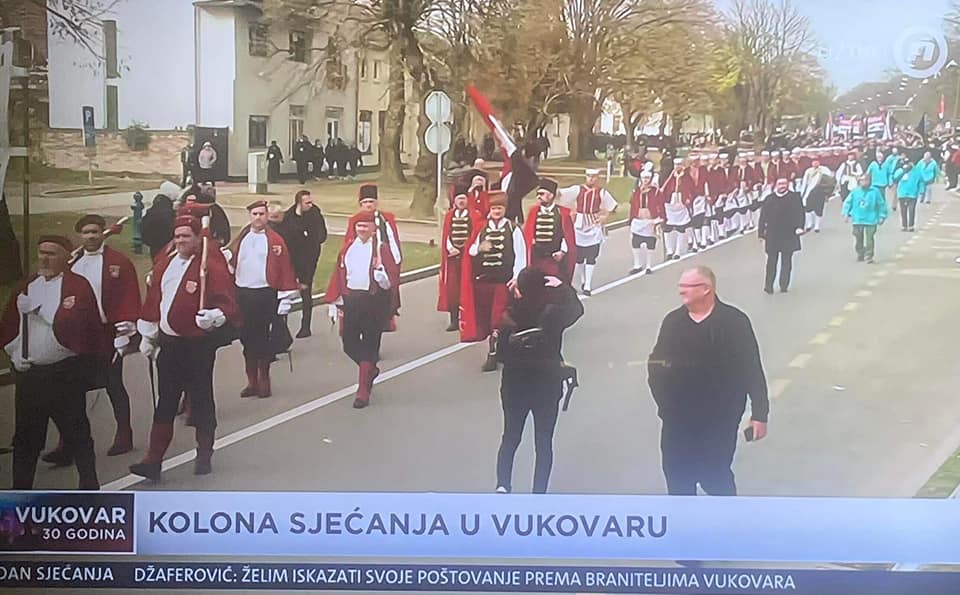
"Who will come tomorrow? In March or September? To sit with us and understand how we live, what our needs are? Nobody, we are a one-day destination, and nobody cares about us in the east," explained one.
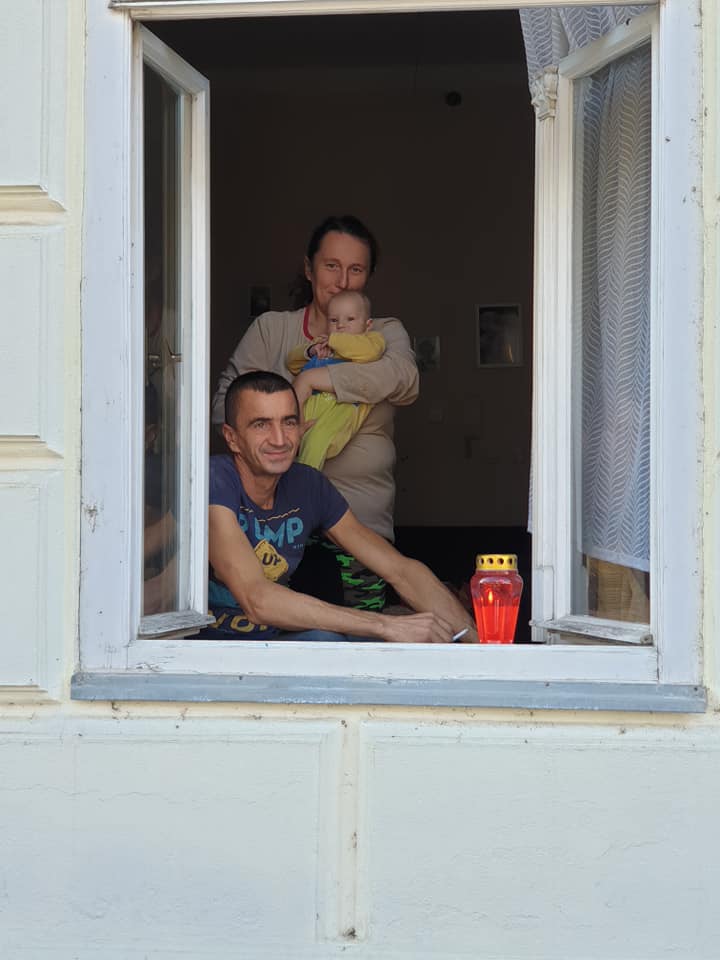
These two photos, taken with permission, were the most striking of the day, and they are embedded in my head, even today, three years later. The family was watching the parade past the front of their house in the old town. When the boy entered with such joy - SOMETHING was happening in Vukovar - his smile was in such contrast to the resignation of his parents who were used to the disappointment and reality. What would those day-trip politicians do to ensure that happiness and innocence could continue in that young boy?
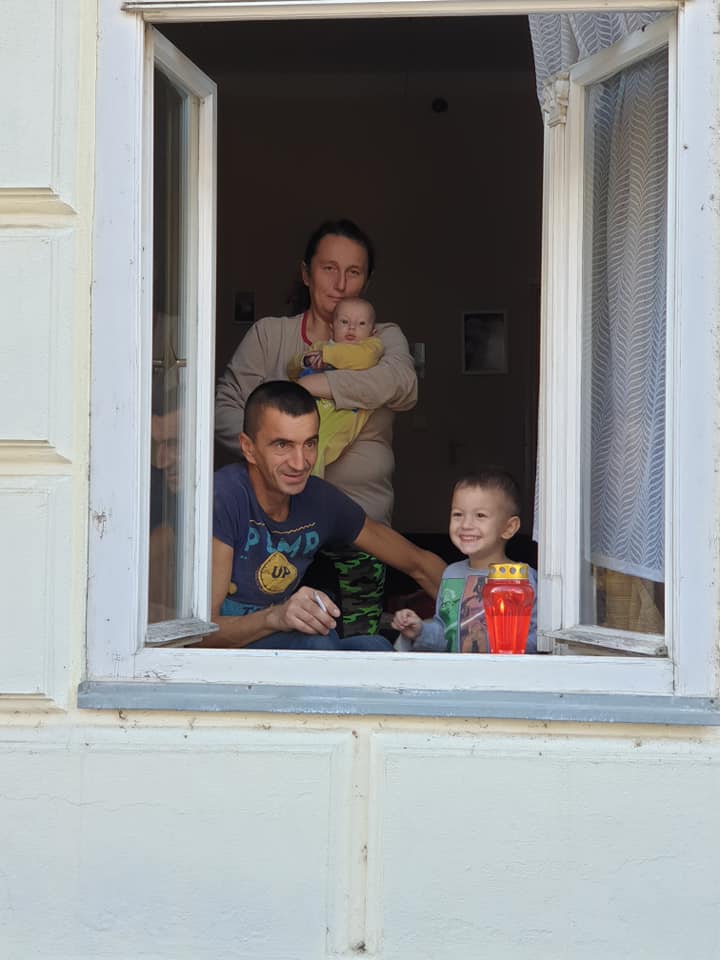
The emotional day ended in what was arguably one of the most unusual evenings of my 20 years in Croatia. I had come across a rather unusual Yorkshireman called Steve, who lived in Vinkovci and had been here since turning up as a volunteer to fight the Serbs in 1991. Among his many great achievements in life was opening an authentic English pub called The White Boar in a field literally in the middle of nowhere in eastern Croatia. It has fast become one of my favourite spots in Croatia, but the party on November 18 is rather unusual indeed, for Steve hosts all the foreign volunteers who fought for a rather good barbecue.
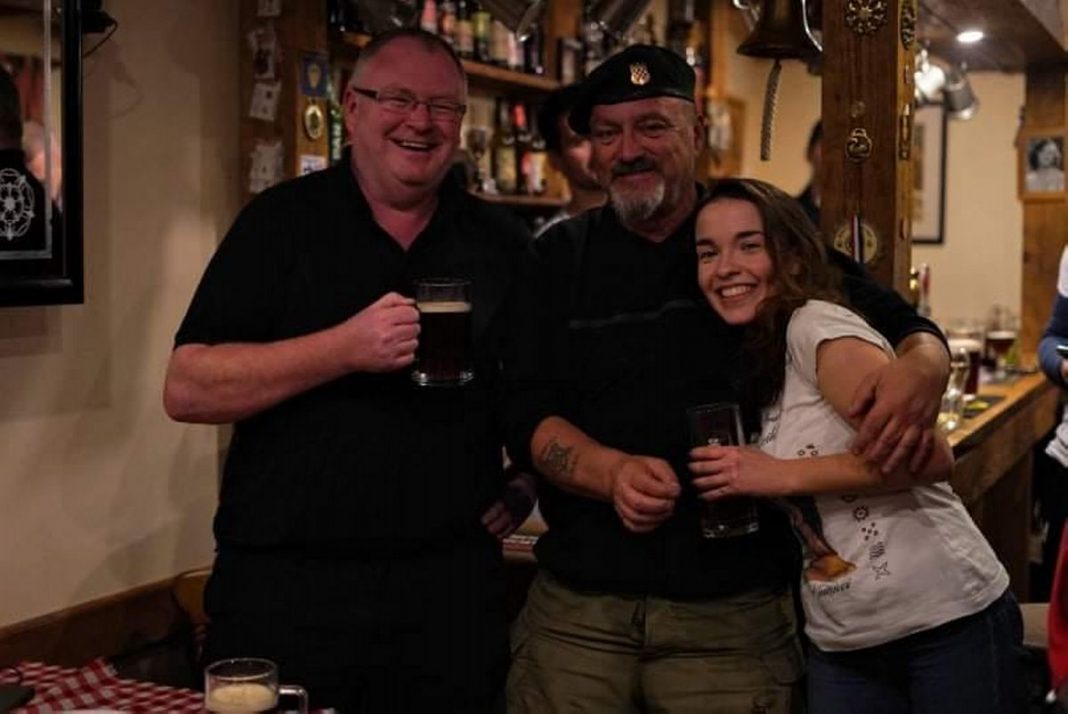
It was an extraordinary evening, which you can read about in After Vukovar, Foreign Veterans Gather in English Pub Near Vinkovci.
"You are the first foreigner who lives here that I have met who didn't fight in the war," said Steve over a welcome beer.
"And you are the first I have met who did fight in the war," I replied.
Interesting - almost 50 years of combined living experience between us, and our lives barely touched the same spheres. I decided there and then to change my focus from the coast and do more about eastern Croatia. I found Steve's world fascinating (please don't tell him, as he will only become cocky), and I recently profiled him as the most contented man in Croatia. Meet Croatia's Most Contented Man: a Dour Yorkshireman in Vinkovci.

(Some of the foreign volunteers)
Far from being a depressing region, I found the people I met in Vukovar and Slavonia to be warm, welcoming and looking forward, not back. The picture on the ground was far different to the one portrayed in the media. And Vukovar, and the whole of the east, is truly beautiful. How to capture that magic and start informing people?
I invited an American digital nomad videographer, Steve Tsentserensky, to visit the east for 6 days, from Ilok to Baranja, including November 18, to show him (and through his lens, a wider audience) just what they were missing. The 2021 parade - the 30th anniversary - was much more celebratory, as well as being much bigger (around 50,000 walked). COVID had meant that this was the first reunion for all, and I had a much more positive experience, especially as I spent the time mostly with local people from Vukovar.
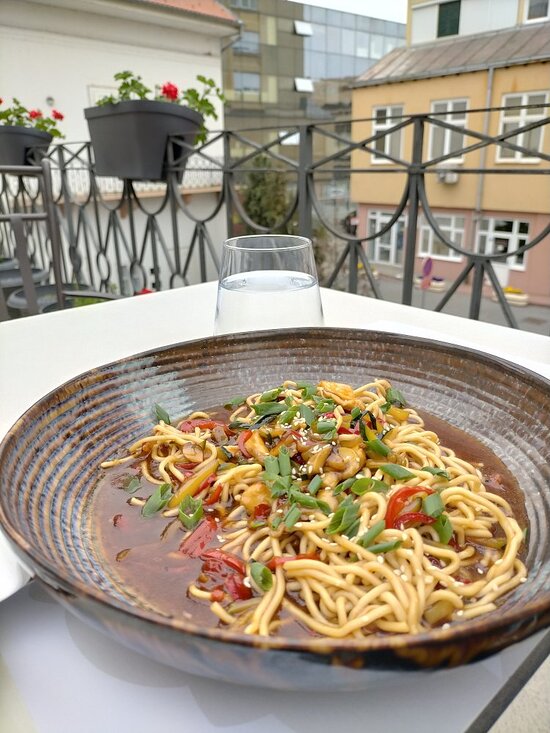
(Vukovar today - delicious vegetarian wok noodles at Lola)
It is when I first met my now colleague Katarina, a very impressive young lady, both as a tour guide, and in her mindset. She was very open to doing an interview on the realities of life as a tour guide in Vukovar, which was excellent. But what impressed me most was her positive attitude, of wanting to talk about Vukovar today, of its tourism offer and vibrant small businesses. Of life.
(Miss TCN Vukovar, telling the story of Vukovar 365, not just one day of the year)
She wanted to make Vukovar more than a one-day destination each year, and to remember and respect the past, but to celebrate the present and plan for the future. I decided to hire her part-time to start telling those stories, to show that Vukovar is a living city, 365 days of the year. And so, the excellent series, Vukovar 365 was born (and will continue again next month after a short break).
Steve did an excellent job, and you can watch some of the trip highlights in his video above. How many of these places in eastern Croatia do you recognise? For a detailed account of what was unquestionably the best trip of my 20 years in Croatia, read Time to Tell the Truth about Slavonia Full of Life. Steve himself continues to pay it forward with this recent publication on World Nomads: Why Eastern Croatia Should Be on Your Radar.
So much positive energy, so many incredible experiences in Vukovar and the east. And yet nobody knew about them, including most Croatians. How to change that?
I came up with an idea called the Vukovar Card, which I presented recently to Minister of Tourism & Sports, Nikolina Brnjac. She was very enthusiastic about it, confirming a ministerial letter of support for the project. It is one of those rare cases in Croatia where everyone wins.
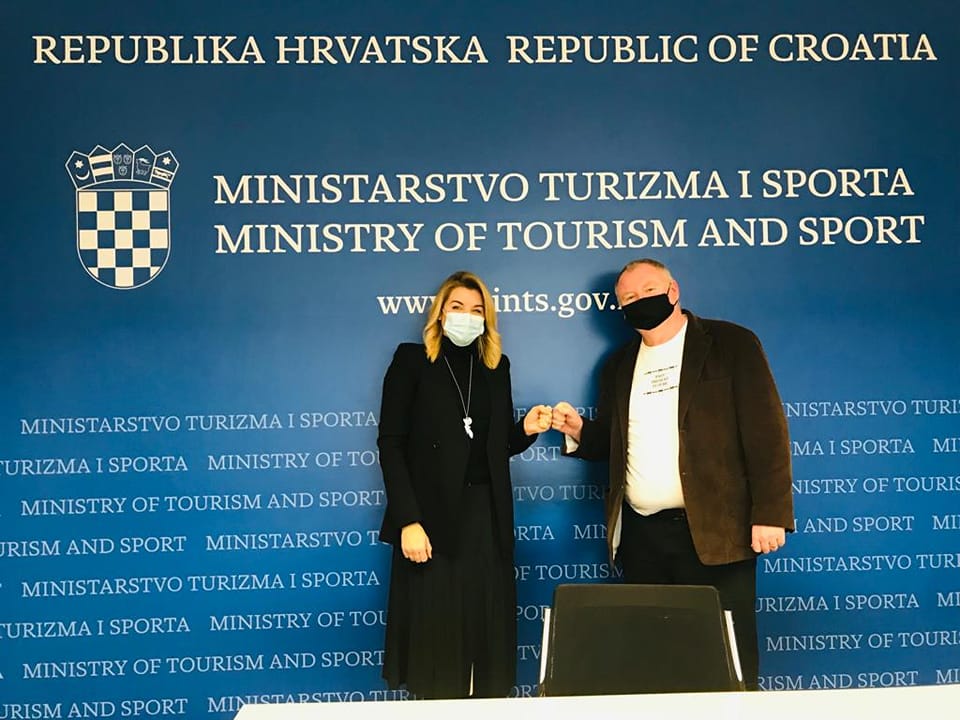
Now that I am writing about Vukovar, I feel comfortable enough to say that the thing I dislike most about living here is the attitude towards November 18 and Vukovar (if a foreigner may be permitted an opinion). So many proud Croats, most of whom have never been to Vukovar (or have any intention of visiting), changing their Facebook profile for 24 hours to express their support, that they will never forget. The next day, it is back to the photos on the beach. And when those from the diaspora come for their 3 weeks each year to the 'selo' (ancestral village) and then straight to the beach, Vukovar is the furthest thing from their mind.
It is something that is noticed by those in Vukovar today. Yes, it is nice that they change their profiles - but is it more for Vukovar, or for themselves? How does it help those trying to rebuild lives exactly?
The Vukovar Card concept is a win for all. Working with the regional tourist boards of Osijek-Baranja and Vukovar-Srijem counties, we put together a 7-day itinerary (this can be shortened) for the Vukovar Card. The itinerary allows visitors to learn more about Vukovar, to meet its people, spend money in their bars and restaurants, and experience their tourism. It also includes a fantastic itinerary, similar to the one Steve and I took, from Ilok to Baranja. So in addition to connecting with Vukovar more than just an annual temporary Facebook status, it is a chance to learn more about a part of the country few Croats know anything about.
The idea is to do the Vukovar Card tour once in your life, after which you will receive a badge or certificate. All those Croats on the coast with bars, restaurants and hotels who change their Facebook status can contribute by offering a 10% discount to Vukovar Card holders, thereby doing their bit.
And for the Minister, this is a big win, doing something 'konkretno' for the east, especially as the infrastructure from the doomed Cro Card project is already in place. You can see the proposed 7-day itinerary here.
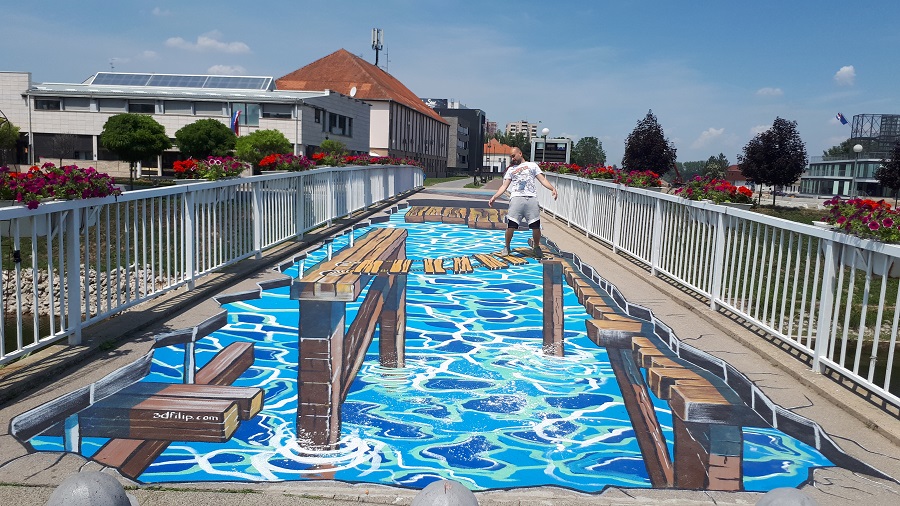
(Vukovar today, home to vibrant street art)
So what are we waiting for? The regional tourist boards have provided the itinerary, local tour agencies are ready to deliver the tours, the Minister likes it.
Ah yes, funding. Again this should not be a problem as this is a win for everyone. It is just that I am perhaps not the right person to take this forward and look for funding from the most obvious source, the Croatian National Tourist Board, given that they are currently suing me twice. But I am sure they would be more amenable to someone else approaching them, so please contact me on This email address is being protected from spambots. You need JavaScript enabled to view it. Subject Vukovar Card if you are able and willing to take it forward.
For Vukovar.
****
What is it like to live in Croatia? An expat for 20 years, you can follow my series, 20 Ways Croatia Changed Me in 20 Years, starting at the beginning - Business and Dalmatia.
Follow Paul Bradbury on LinkedIn.
Croatia, a Survival Kit for Foreigners will be out by Christmas. If you would like to reserve a copy, email This email address is being protected from spambots. You need JavaScript enabled to view it. Subject 20 Years Book
20 Ways Croatia Changed Me in 20 Years: 13. Dalmatian Wikipedia, The Bench
July 23, 2022 - Twenty years a foreigner in Croatia. Part 13 of 20 Ways Croatia Changed Me in 20 Years - an ode to one of the icons of Dalmatian life, and some say the original Google. One of my favourite obsessions - the bench!
When you live full-time on a Dalmatian island, the off-season can be a bit of a challenge for entertainment. Indeed, it can be hard to meet anyone at all in winter - all restaurants in Jelsa were closed, as were many of the cafes, and the bura kept all but the hardiest of fat British bloggers off the streets.
But if you were desperate to see proof of life, the place to be each early evening was in front of the mayor's office, where one could find the wisest heads of the community - always male - sitting on the bench which was allocated to them.
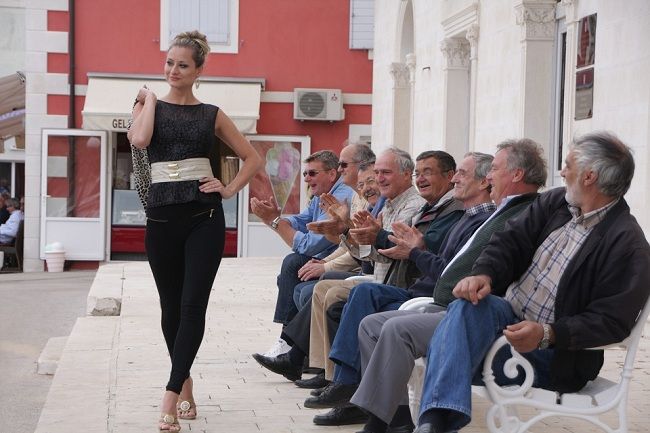
The same guys every evening, sometimes more than others, but always sitting in that prime location looking out to sea and majestic Biokovo through the Jelsa palm trees. I never saw anyone smoke or drink alcohol. But talk? Boy, could these guys talk.
I learned that the bench was a Dalmatian institution in every village, a font of knowledge, where one had to be invited to sit on the bench. One could not simply join them. So much conversation, so many olive picking techniques exchanged. There were known as the Dalmatian Google, the island Wikipedia. There was nothing that these guys did not know, or have an opinion on.
I could feel myself starting to get a little obsessed. I REALLY wanted to be invited to sit on the bench with the guys. Bench lifestyle seemed perfect to me - a cool place to chill at the end of the day, admiring the view and chewing the fat.
Local friends laughed at me. A seat on the bench? So young? And you a foreigner! No chance! Locals often had to wait almost a lifetime.
My mild obsession spilled over into my blogging on my Total Hvar portal. I was writing 5-6 articles a day back then, and content was a little hard to find some days. I started to write about the bench and how I had one remaining ambition in life. I had travelled, married a beautiful wife, had two gorgeous young children, loved my job, and I lived in Paradise. I only had one thing left to achieve in life.
An invitation to sit on the bench.
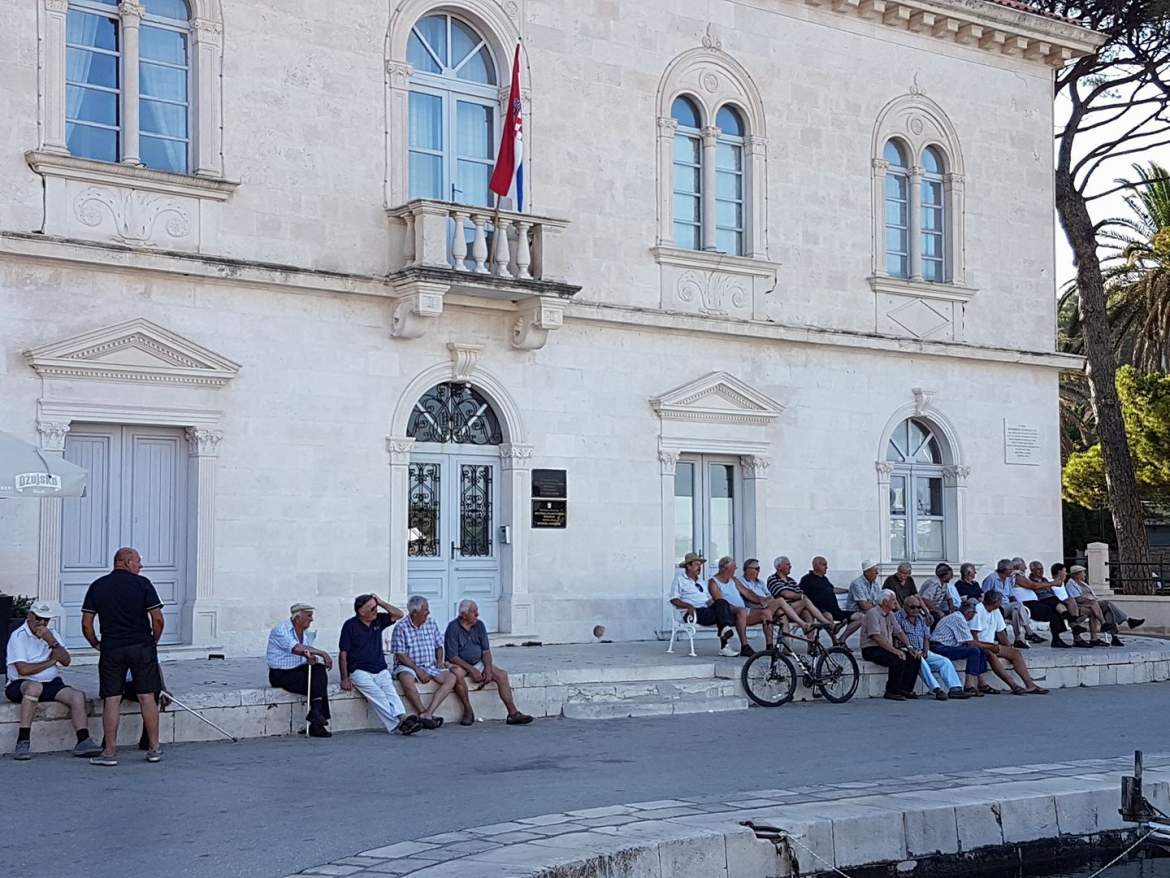
Local friends laughed, and I would walk past the bench wistfully, sometimes taking pictures. The one above is one of my favourite -I call it Rush Hour.
I just wanted to be part of the team.
Of course, I would fantasise when there was nobody around - if the bench was empty, it seemed, it was ok to sit.
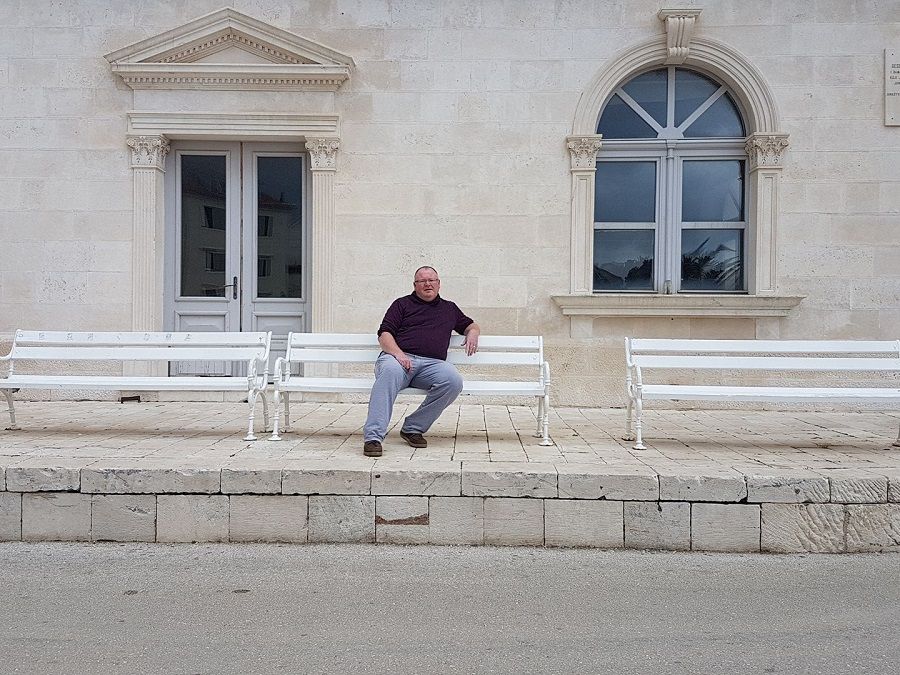
And then one day, just 13 years after my arrival in this slice of Dalmatian heaven, something quite extraordinary happened.
I was late for an important meeting, the first meeting with the marketing guy from the proposed Four Seasons Hvar project. I could see him in the distance, and we made eye contact just as I was passing the bench. We smiled in anticipation of the handshake and greeting in about three seconds time when I heard a male voice to my right.
"Ugh, Debeli English," grunted the voice (Hey, Fat Englishman). I turned, and the man motioned for me to sit with them on the bench. There was room for me on the bench!
But the timing was poor. What would this Australian guy think, and how could he take me seriously if I sat on a bench with some oldies instead of greeting him? What a dilemma at this potentially historic moment in my life in Dalmatia.
Sometimes, the heart has to rule the head. I smiled at my bench partners, shook hands with the Aussie, and said:
"Look, I know this is a bit weird as we have not even met yet, but do you mind taking a photo of me sitting on this bench with these guys. I know it sounds odd, and I will explain, and the beers are on me."
He looked at me like I was a total nut job, but did as I asked.
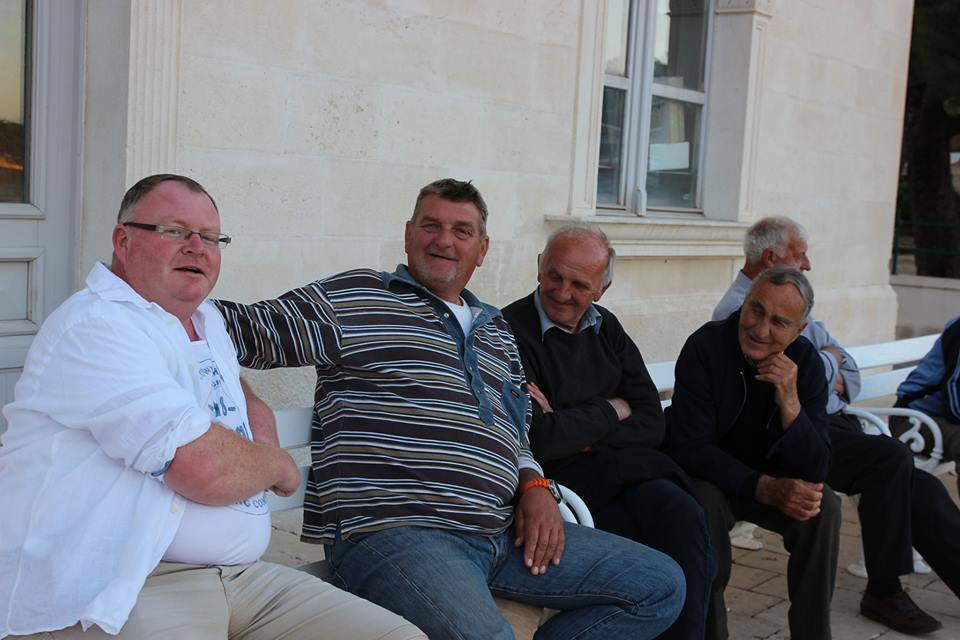
It was one of the great life achievements of my sad little existence. And the Four Seasons never did get built.
News spread of my fine achievement. In ONLY 13 years, and a foreigner! My local friends were incredulous.
I blogged about it of course, and then the Jelsa bench started to attract a little bit of tourism for the town - the birth of a new type of tourism - bench tourism.
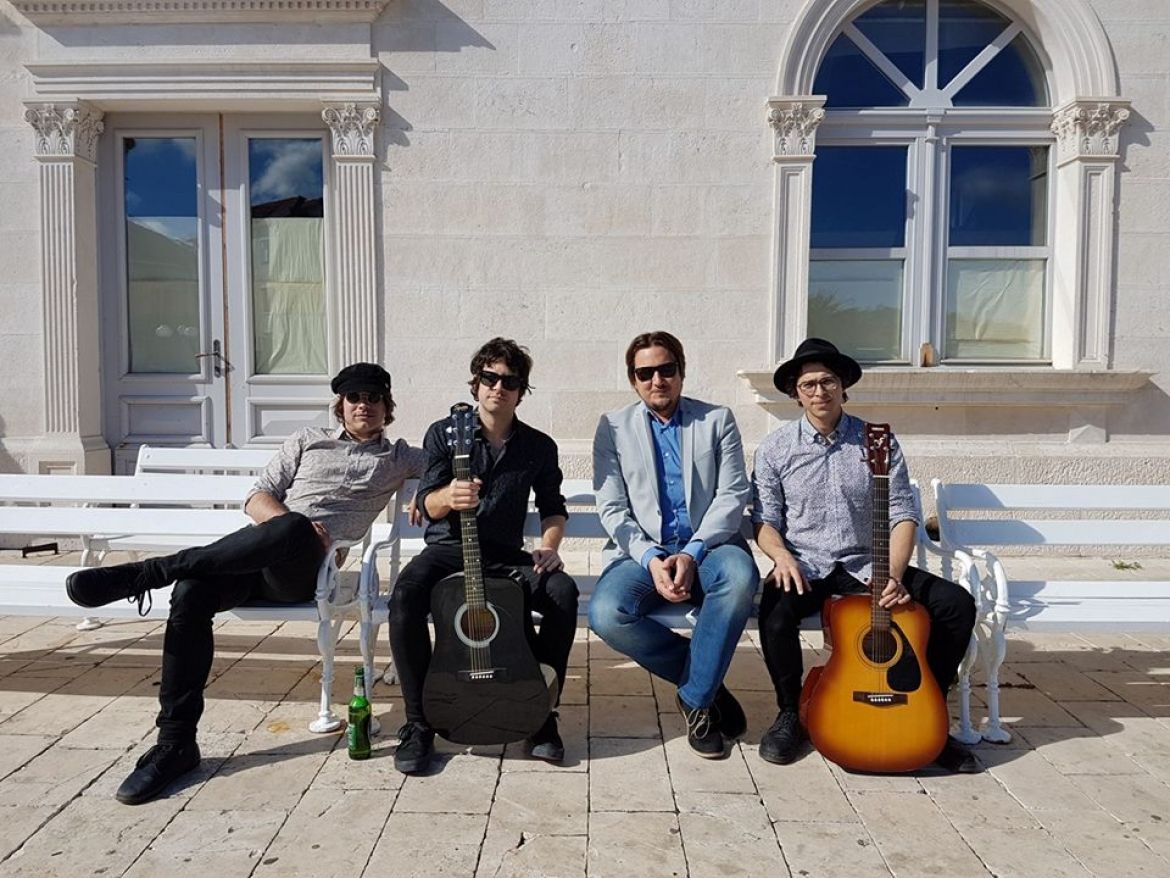
Rock bands jetted in from San Francisco to play on Dalmatia's hottest bench, with the Jelsa mayor (second right) granting permission for Cellar Doors to play what we believe to be the first live concert on a Dalmatian bench by an American band.

And then the influencers and bloggers started to tread the path to the Jelsa bench, with the team from Chasing the Donkey one of the original pioneers.
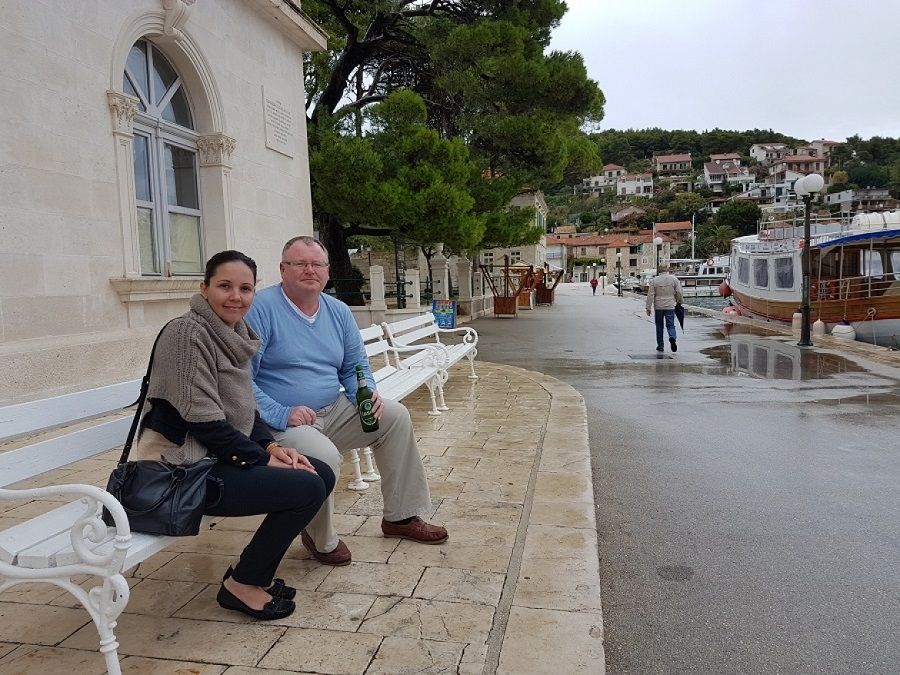
The inbox was insane, with young Mariana contacting me from Sydney to ask if I could have a selfie with her on the bench. She was coming to Imotski, but made the trip to the island especially for the bench experience (yes, really).
Bench tourism was becoming a thing.
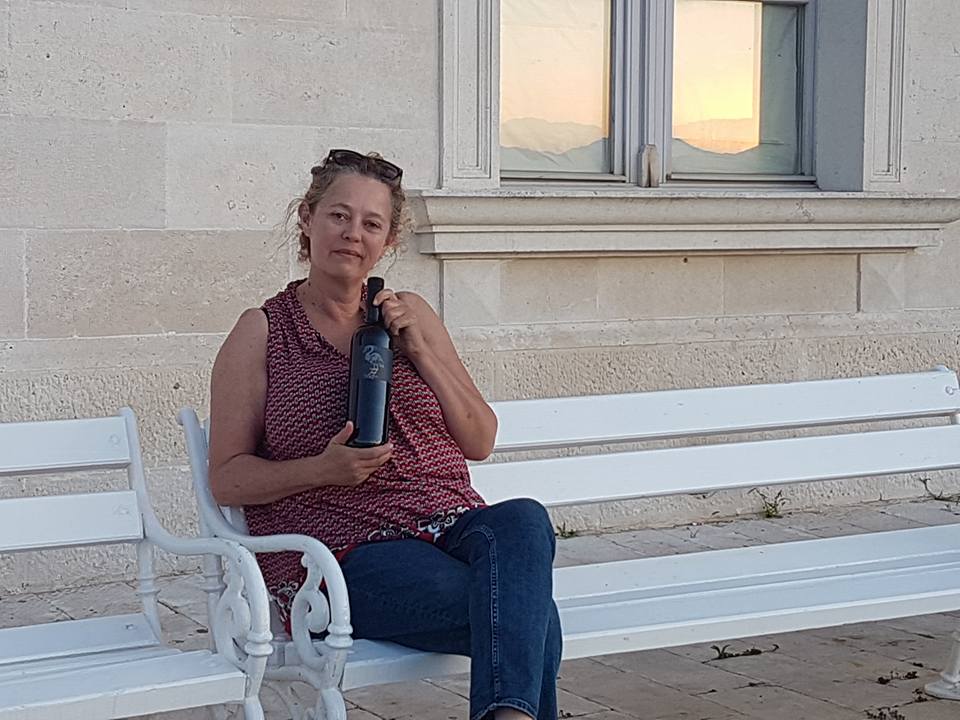
We even had Masters of Wine using the bench for promo material - Jo Ahearne MW, who makes excellent wine from Hvar grapes - highly recommended.
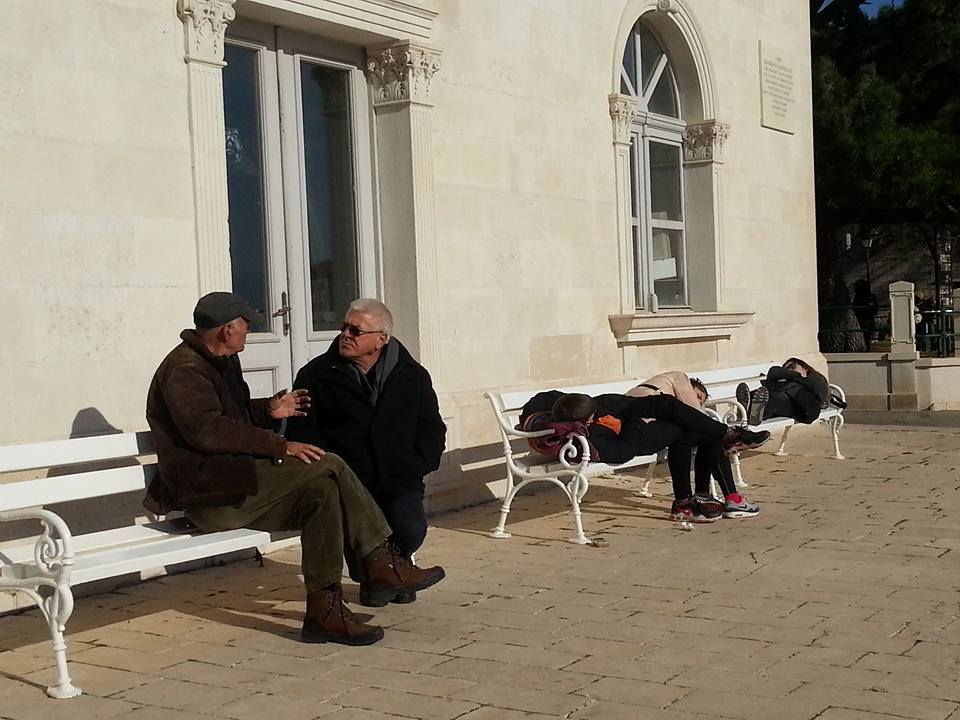
The wise old men even shared the bench on the occasion of the UNESCO Za Krizen procession on Maundy Thursday, as pilgrims who had walked the 22 km through the night rested after a sleepless night.
Life was good. Perfect even.
And then disaster struck.
The bench in Jelsa - an icon of Dalmatian tradition, a paragon of virtue, and a database of the most fascinating bits of information - was sent into permanent exile. For something called progress.

The iconic white bench was removed to make way for a new restaurant under some quite questionable circumstances. There were a couple of solutions offered to appease Jelsa's Google Brigade, with benches on the street the permanent solution.
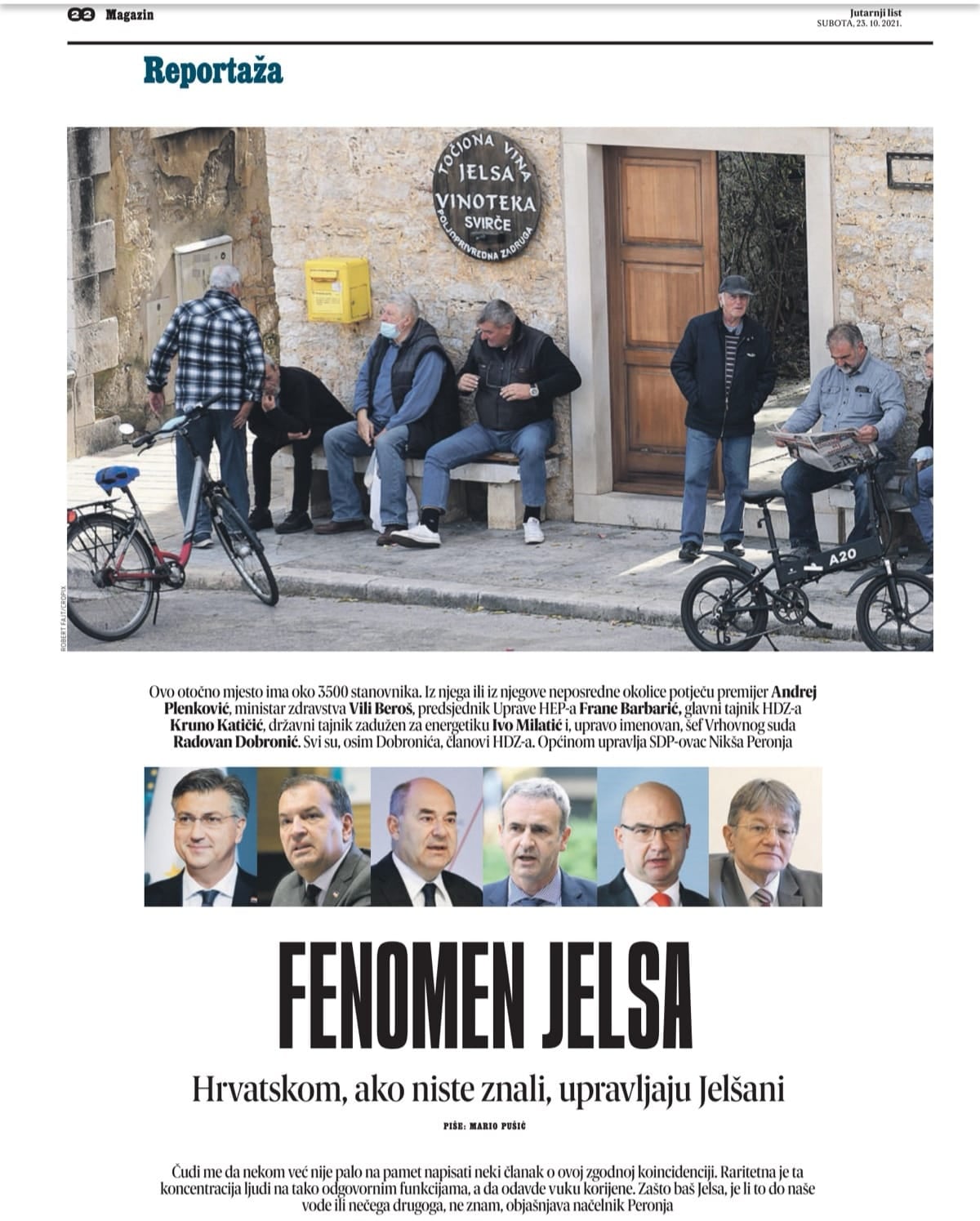
And for a time, the bench was banished to another part of the waterfront entirely. But I had to laugh at this presumably paid feature on the clever and influential people who came from Jelsa, including the current Prime Minister and Minister of Health. But the lead photo? The brains from The Bench.
Partly due to the fact that I was outraged at the removal of the bench, and partly because the whole deal with the restaurant seemed a little fishy, I did quite a lot of research on the awarding of the tender for the restaurant, which caused quite a furore when I published. So much so in fact, that the mayor announced he was suing me in a public meeting, see above. He never did, and the article I published remains one of the best researched on my time in Croatia, and one of which I am immensely proud.
But boy, fighting for bench freedom is a dangerous task.
And then, a few years ago, the Jelsa Tourist Board let their website domain lapse, and I managed to pick up Visit Jelsa and use it to promote bench tourism, as well as a polite request to transfer ownership of the website if only we could have our bench back.
But there was much more to the culture of the bench than what one found in Jelsa, and I found myself seeking out benches of all kinds on the island.
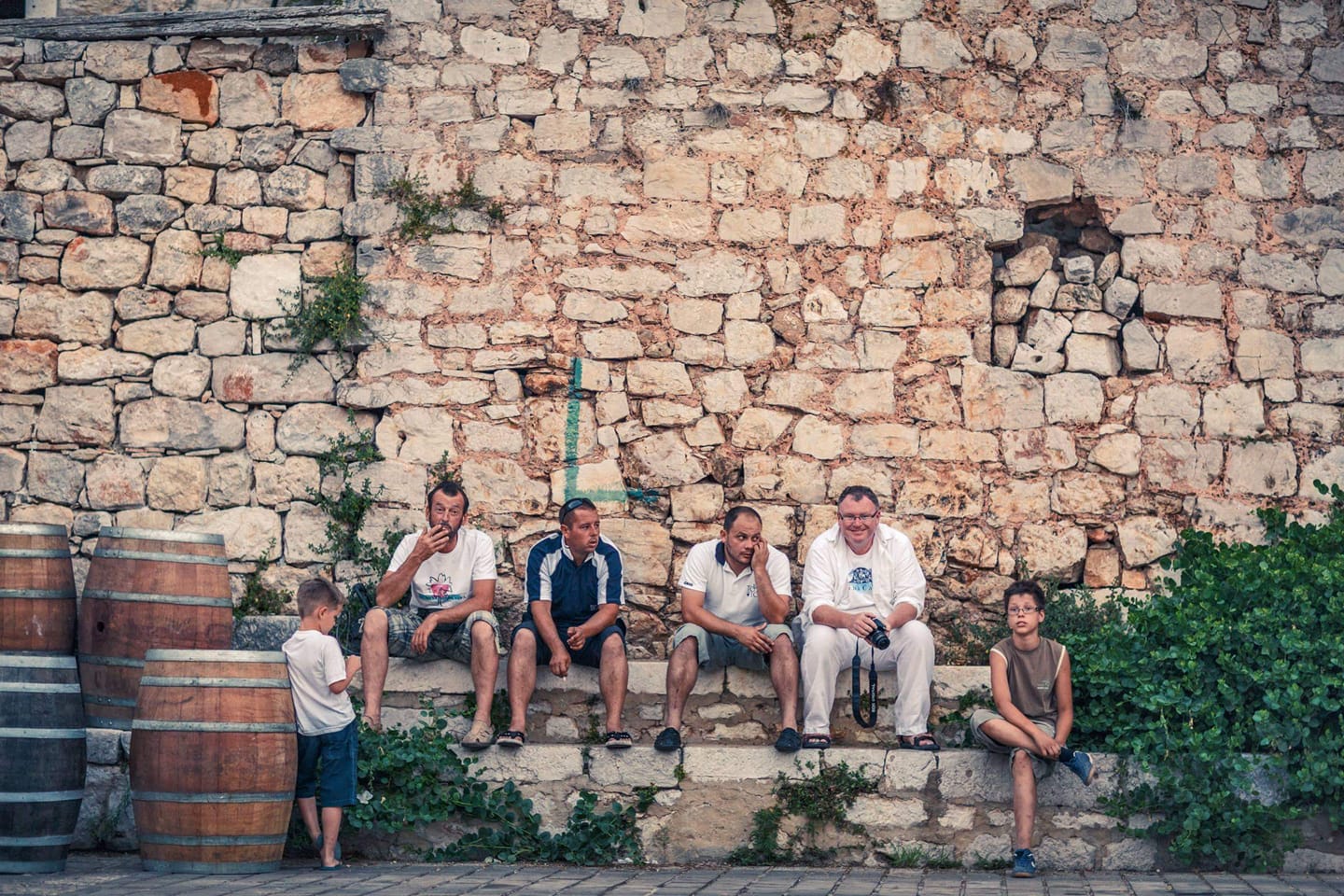
Chilling in Svirce at the first Boganusa festival.
And then I went in search of the best bench view. Is it this one high above Hvar Town?
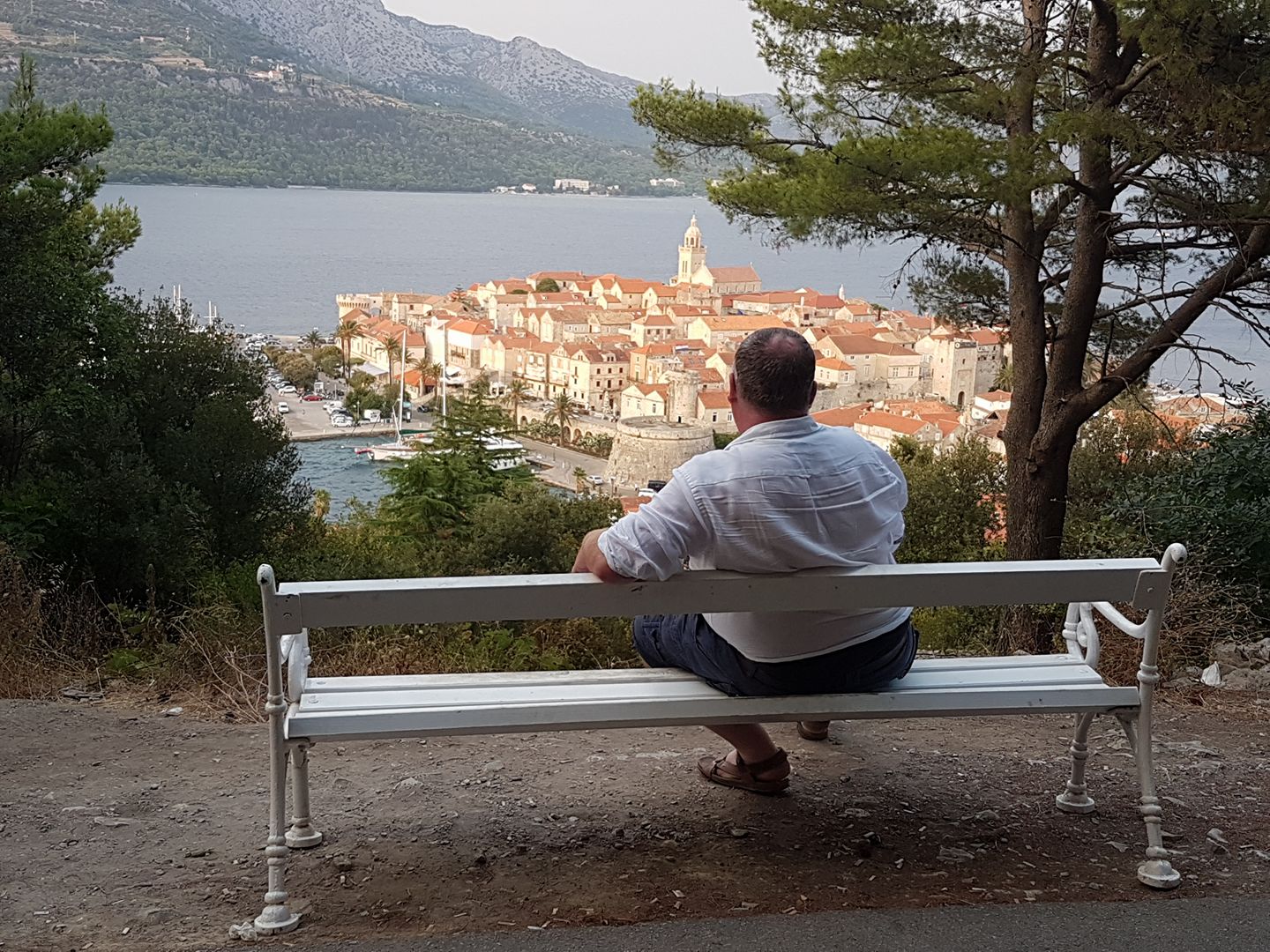
Or this gem on Korcula?

As we learned in the first article in this series, do not try and change Dalmatia, but expect Dalmatia to change you.
But sometimes change does come, and a teenager from Solin became an overnight sensation, as Ivan Mrvos presented the smart Dalmatian bench 2.0. Imagine what the wise old men from Dalmatian Google would come up with on this type of bench.
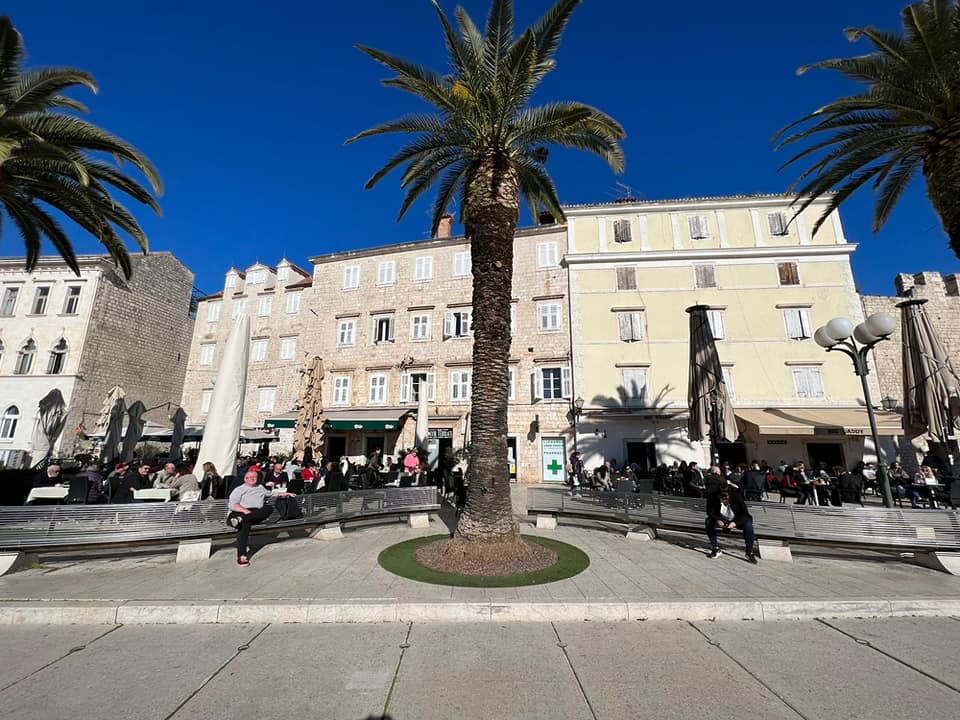
I started to expand the concept of bench tourism beyond the shores of Hvar, and I went off in search of unusual benches, or those in spectacular settings for bench tourism. The biggest I have found in Dalmatia was this beauty in Trogir.
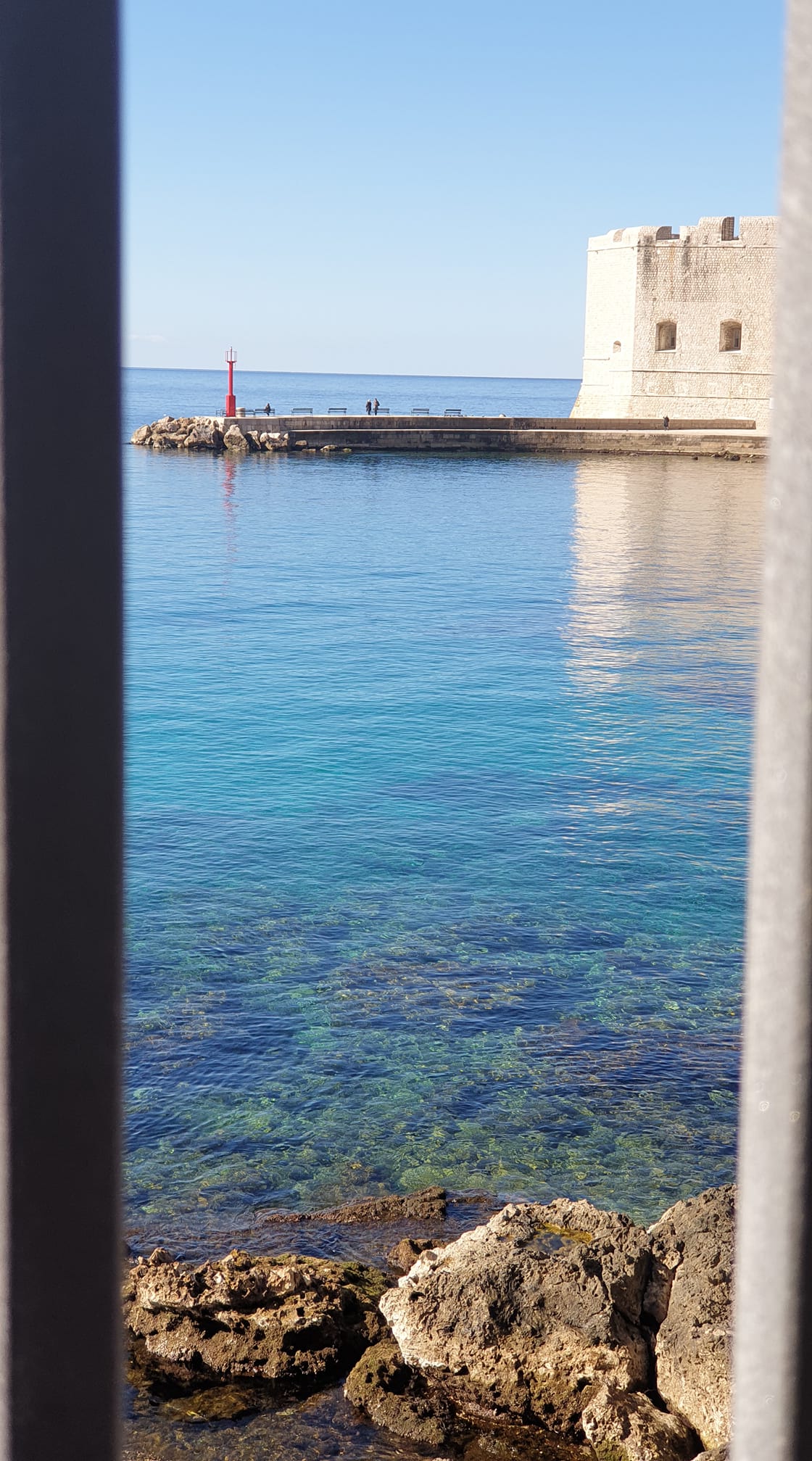
And it was hard to beach bench tourism with a view in Dubrovnik.
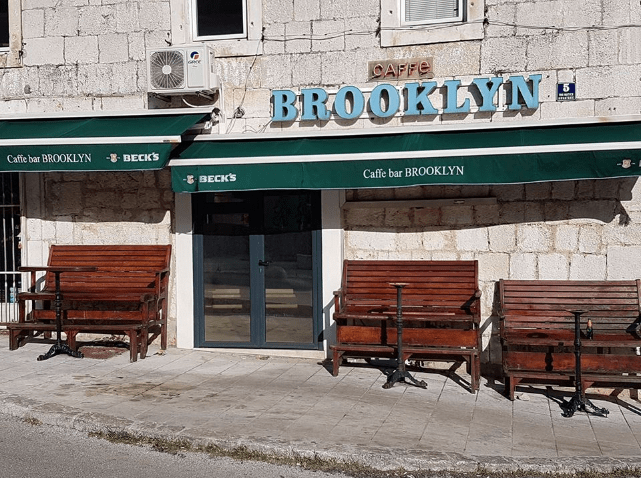
But for posh benches, the two-tier benches of Imotski are beyond impressive.
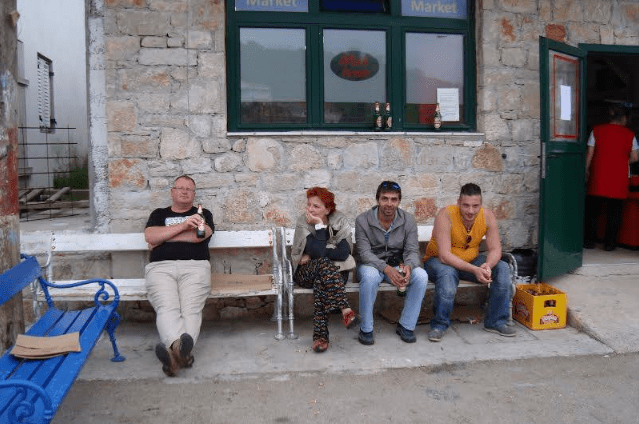
Some of my favourite benches in Dalmatia are these on the island of Zirje. With no bar open on the island in the winter, this IS the social life and gathering point in front of the small supermarket.
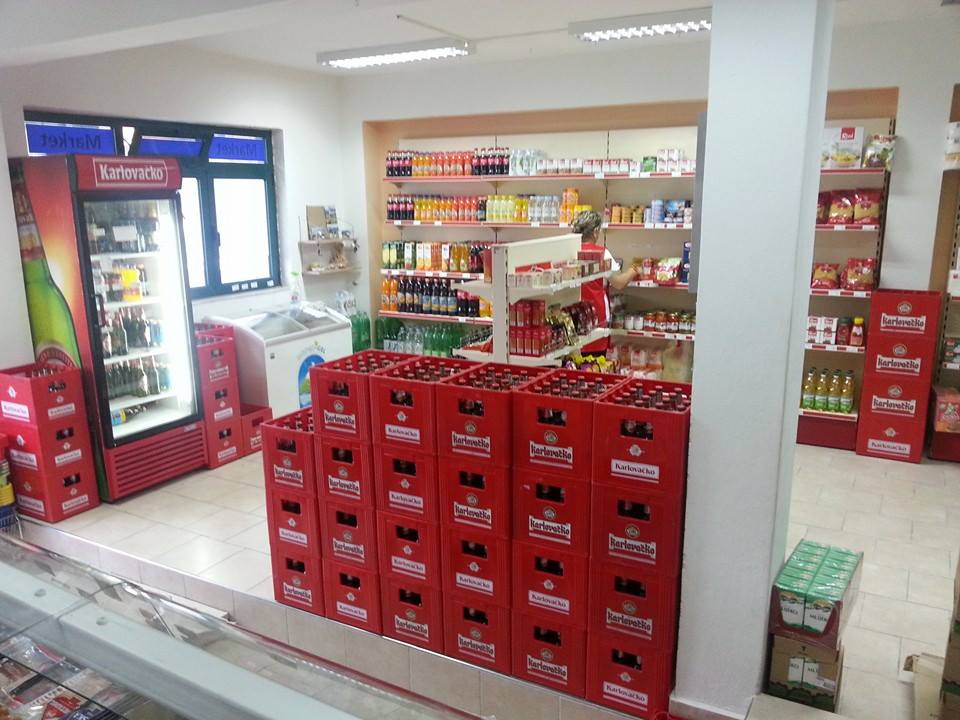
A supermarket like no other I have seen in Croatia - 50% alcohol, mostly beer.
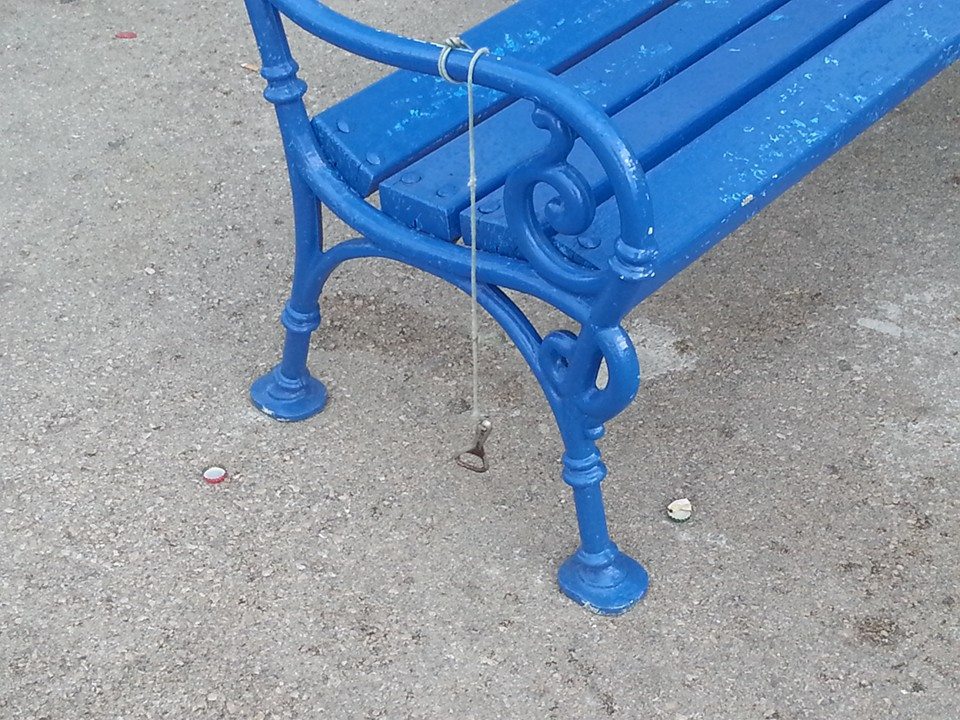
With a very handy bottle opener attached to Bench 3. That is what I like about bench culture in Dalmatia - it is adaptable to the specific needs of the day.
It should be pointed out that the bench is primarily part of Dalmatian culture, and not really as important in other parts of the country. But it should also be pointed out that when a weird foreigner starts writing about his love of benches, the inbox can get quite colourful.
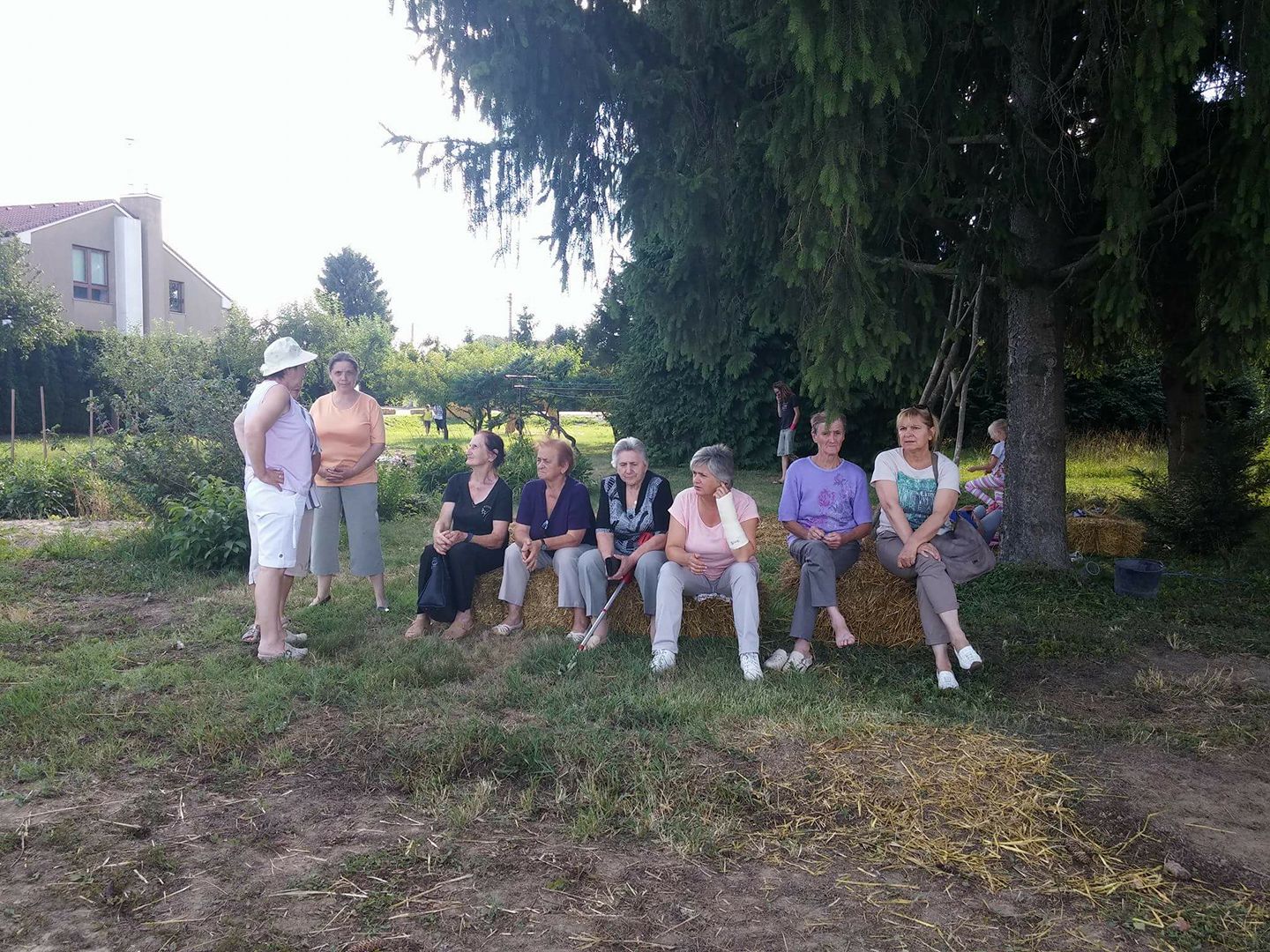
Probably the most unusual bench submission in the inbox - and the only all-female one - on bales of hay in Medjimurje.
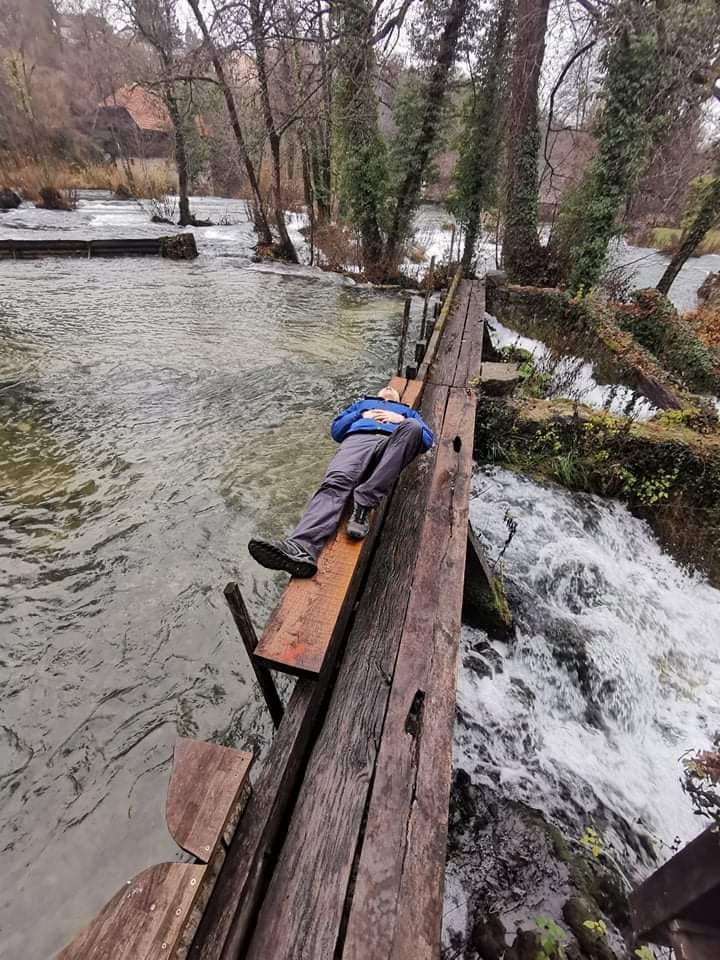
Extreme bench tourism in Rastoke.
And, of course, I kept my eyes out for bench tourism trends on my travels throughout the land.
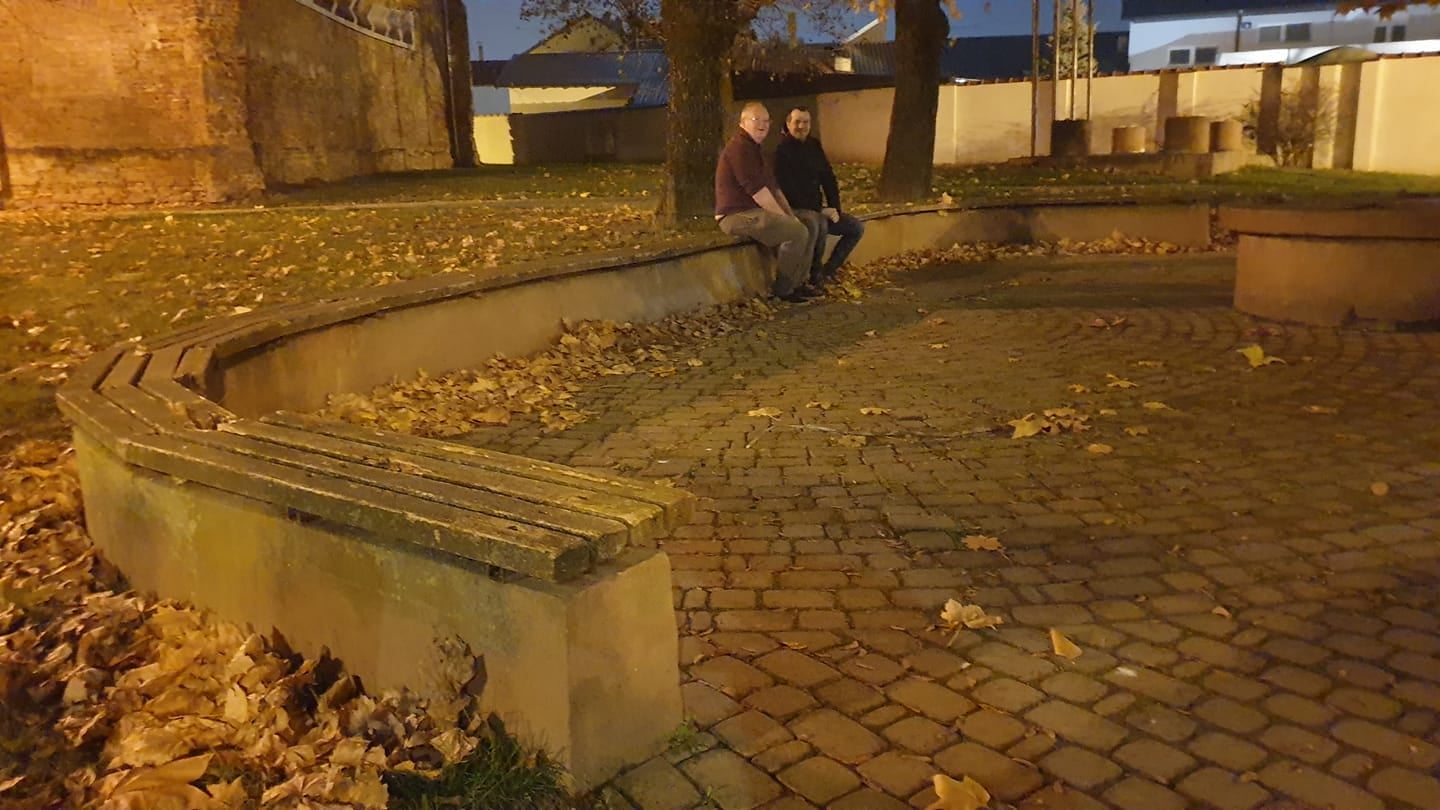
Vinkovci, the oldest continuously inhabited town in Europe, probably took the prize over Trogir as the biggest bench I have seen in Croatia.
And Vinkovci DEFINITELY has the coolest bench of all - the only bench I have seen where you can switch the view. Check it out in the video above - beyond awesome.
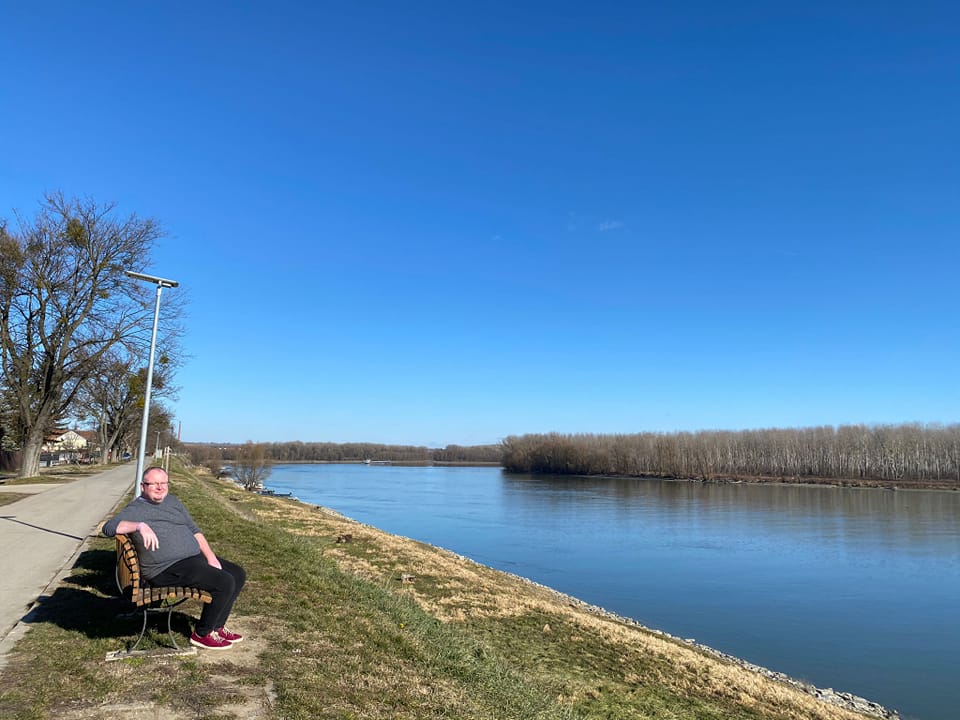
International bench tourism on the Danube - the morning view to Serbia from Dalj.
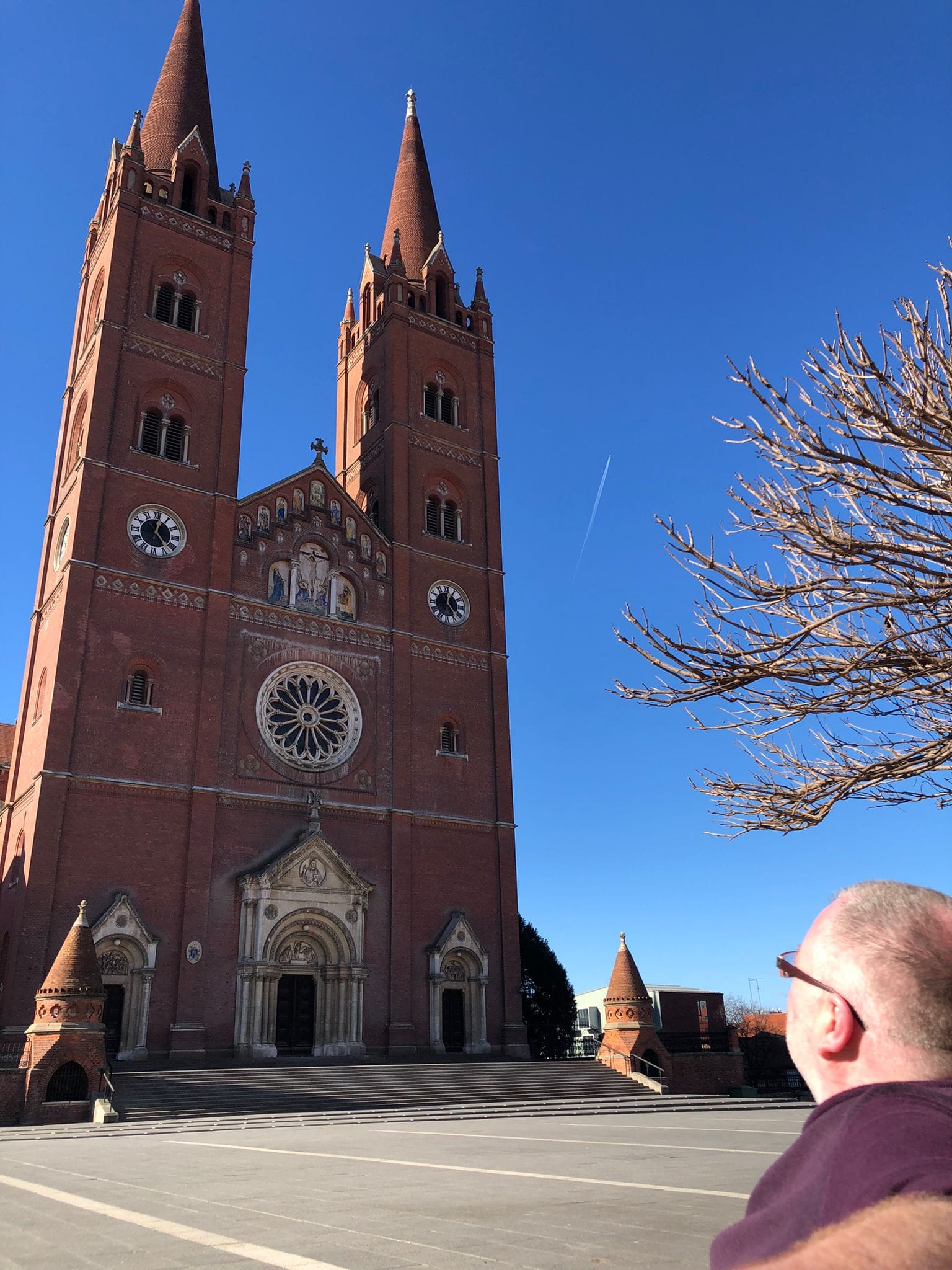
Religious bench tourism was a new departure - the fabulous cathedral in Djakovo.
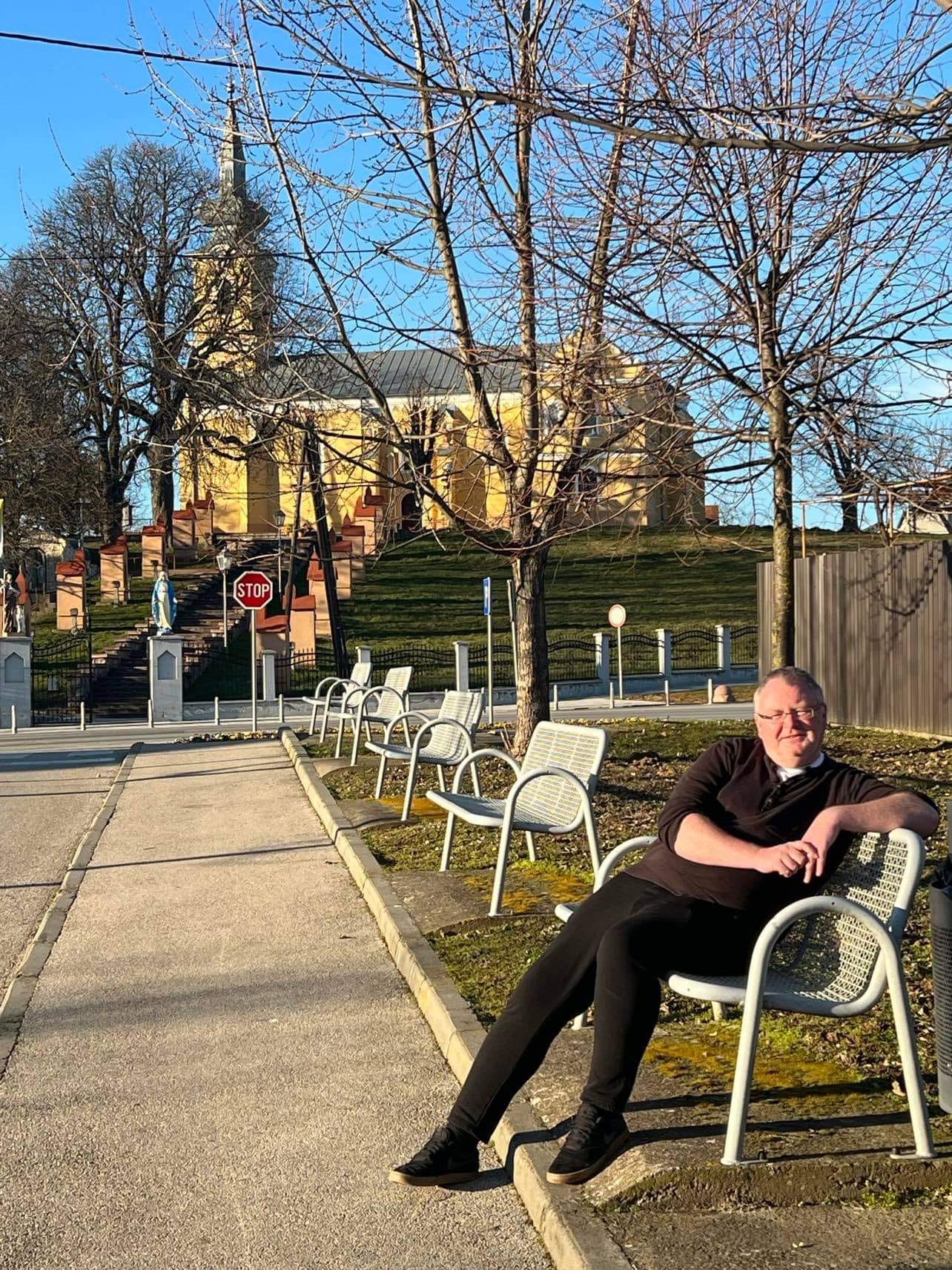
Or mass Mass tourism in Ivankovo.
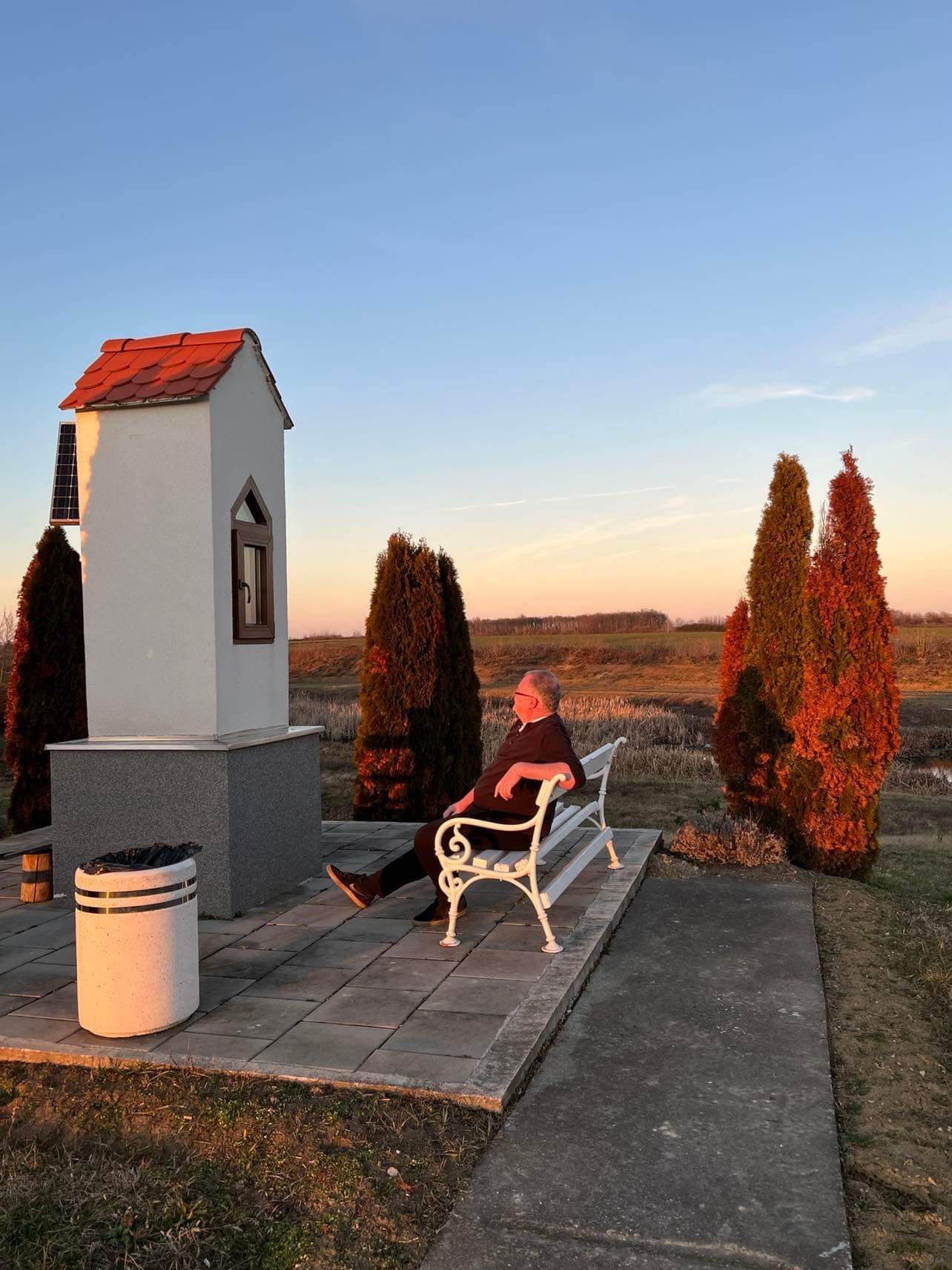
Slavonia seems to have benches for religious bench tourism in very random places, this one in a field in the middle of nowhere.
But imagine my joy when I discovered the first bench MUSEUM in Koprivnica-Krizevci county.

How cool is that?

Bench life in Croatia. For solo thought or intense debate, it is an essential part of the mix.
I accept that I may be a little more passionate about the bench than most, but trust me; there are worse cases out there than me.
Take this chap, who came up with a calendar for the Benches of Redditch calendar, a town near Birmingham in the UK not known for its bench tourism.
Imagine the calendars he could produce of Dalmatia...
****
What is it like to live in Croatia? An expat for 20 years, you can follow my series, 20 Ways Croatia Changed Me in 20 Years, starting at the beginning - Business and Dalmatia.
Follow Paul Bradbury on LinkedIn.
Croatia, a Survival Kit for Foreigners will be out by Christmas. If you would like to reserve a copy, email This email address is being protected from spambots. You need JavaScript enabled to view it. Subject 20 Years Book
20 Ways Croatia Changed Me in 20 Years: 12. Croatian Language & J*beni Dialects
July 22, 2022 - Twenty years a foreigner in Croatia. Part 12 of 20 Ways Croatia Changed Me in 20 Years - the Croatian language is the most logical I have ever learned, but the dialects will kill you.
I am pretty good at languages, but I gave up in Croatia.
But not for the reasons that you might think, for I genuinely think that the Croatian language is easily the most logical that I have ever attempted to learn, with the possible exception of Esperanto.
My Russian was pretty good, and I was comfortable enough to give live television interviews on the recommended uses of peanut butter on the edge of Siberia (don't ask) in 1993. My French peaked in post-genocidal Rwanda in 1995 when I was asked to educate the Minister of Agriculture on the benefits of planting Brussels sprouts (again, don't ask). And my German was polished as a bell boy on the night shift of a very posh 5-star hotel in Munich, where my duties ranged from explaining the whims of guests such as The Rolling Stones to arranging ladies of the night for German public figures (please, really don't ask).
And then came the Croatian language, or at least the variation of it to which I was exposed.
First, the good news for those wanting to learn Croatian. I firmly believe that it is one of the most logical languages in the world. And I mean that sincerely.
Once you have learned the Slavic structure of language (and that is the tricky bit), there are relatively few rules or exceptions in Croatia, and they can all be learned.
For example - 'k' followed by 'i' always goes to 'ci' - Afrika but u Africi, that kind of thing. Learn the Slavic structure of language (as I had with Russian) and those few exceptions, and you are home.
I will never forget watching my daughter learn to read in Croatian at the age of about three. It was one of the most extraordinary things I have ever witnessed. And not just because she is my daughter.
She picked up the alphabet very quickly, and then she started to write the letters. Tell me some words, she said. Pas (dog) - she wrote it perfectly. Kuca (house), again, not a moment's hesitation. I made things a little more complex every time, but without a moment's hesitation, she produced the correct spelling.
Strpljenje (patience) I said, fast-forwarding the task by a few layers of complexity. I hadn't finished uttering the word almost before she wrote it down flawlessly. It was an incredible spectacle, and I was very proud of her.
"How about the English word for osam (8)?" I suggested, trying to regain the intellectual superiority.
When I showed her that we spelled it E-I-G-H-T, she looked at me with innocent blue eyes and said:
"That is silly, Daddy, and so is your language. Mum's language is so much better."
I couldn't argue with that.
Phonetically, Croatian is the most regular language I have come across. What you see is what you pronounce. So if the language is logical and the pronunciation is predictable, why did I give up with the Croatian language when I had mastered other languages?
Two reasons. Those j*beni dialects, as well as the excellent English spoken by most Croatians.
When I first moved to Hvar back in 2002, I decided to learn Croatian. My Russian background helped enormously with the grammar, and I borrowed a book from the library (meeting my future wife in the process) to help me learn, as well as taking private language lessons. It was a curious experience, as I had two teachers for just me. They were used to foreigners doing battle with the Slavic structure. As I had lost my nerves with that battle learning Russian, I sailed through their lessons, and they could not keep up, as their lesson plans had predicted the Slavic wall of non-comprehension.
I gave up and decided to learn my Croatian in the wonderful cafe culture of Jelsa, over a beer or three. And I got to be pretty good.
Or so I thought, until I went to Zagreb on business as a real estate agent. The Croatian client wanted to buy a house on Hvar and asked me the price over a coffee on Ban Jelacic Square:
"50 mejorih," I replied.
He looked at me blankly and asked me to repeat. I did. He was lost. Thinking it was something to do with my atrocious accent, he asked me to write it on a piece of paper. I did so. 50,000.
"Ah 50 tisuca," he exclaimed - the very same word as in Russian. A horrendous realisation came over me. I had not been learning Croatian in the cafe at all, but rather some obscure Jelsa dialect.
It turned out that my word for thousand (mejorih) was actually a dialect word used only on Hvar - and not even on every part of Hvar. Take the catamaran to Brac, and they wouldn't have a clue what you are talking about.
What had I done? What had I been learning all this time? A useless language which could only be understood by about 2,000 people.
It got even worse when I started researching things a little. Croatia is FULL of dialects, not in the way the UK is, but they really speak almost different languages. On the island of Hvar, for example, there are apparently 8 different words for chisel. The bigger joke being that you cannot find a chisel to save your life even if you know all 8 variants.
I finally gave up on the Croatian language in about 2012 on a business trip to Split. For some reason, over a coffee with my business contact, we were discussing the merits of hanging out laundry to dry. It was not a subject on which I had a lot to contribute, but I did pick up a new Croatian word from the conversation, the Croatian (or what I thought was Croatian) word for the humble clothes peg - stipunica.
Arriving home on the catamaran, I had a coffee with my lovely mother-in-law on the terrace. She speaks no English and so we conversed in Croatian, with her asking me about my day. I told her that I had learned a new word - stipunica. She looked at me blankly. Finally, I got up from my chair and went to find a clothes peg to demonstrate what I had learned. She smiled.
"Ah, stipaljka."
I gave up.
Especially as the Croatian non-dialect word for clothes peg is apparently 'kvacice.'
English was so much easier, especially with the outstanding level of English spoken by most Croatians here. It is really impressive.
I can and do speak Croatian (much to my daughters' embarrassment) but I spoke it a lot better ten years ago than I do today. The level of English is simply too good, and I have got into the habit. There is one occasion when I do speak Croatian, however, and it always gets a laugh - when I speak at a conference or am interviewed on television. I always start with the following to a Croatian audience (translation to follow):
Ako Vam ne smeta, ja cu dalje na engleskom zbog punice. Imam najbolju punicu na svijetu, i prije nekolilo godine, ona je dala meni neki savjet. Ona je rekla "Zete, ja te jako volim i slusam te vec 13 godina, i zbog ovag ljubava, je sve razumijem kad ti pricas. Ali samo zbog ljubava. Imam jednu molbu od srce. Kad ti si na televiziju ili konferenciju, samo na engleskom, zato izvuces kao neki kreten.
(If you don't mind, I will continue in English due to my mother-in-law. I have the best mother-in-law in the world, and she gave me some advice a few years ago. She said "Son, I love you very much, and I have been listening to you for 13 years, and because of that love, I understand everything when you speak. But because of that love, I have one request from the bottom of my heart. When you are on television or speaking at a conference, only in English, as honestly, you sound like an idiot).
I can't disagree with my punica... but the sentence is a hit. It always gets a laugh and breaks the ice and shows that I respect the culture to at least try and learn the language. And then I can relax and continue in English.
Nobody has influenced my time with the Croatian language more than the man who helped me learn a completely different language than Croatian without telling me - Professor Frank John Dubokovich, Guardian of the Hvar Dialects. Of the few things I have achieved in my 20 years in this beautiful land, taking the Professor from a silly idea over a coffee one October to a TV star on British television makes me smile the most.
Frankie is a Jelsa legend. Born in New Zealand, he moved to Jelsa at the age of 8 when his Croatian family decided to move back to their homeland. He has always been trilingual (English, Croatian and Jelsa dialect) although I am sure I am not the only one who cannot work out what language he is speaking half the time. He is well-known in the community for his enthusiastic greeting of people from distance - perhaps the finest example of what I coined the Dalmatian Grunt.
And so began a journey which saw the Professor beamed into the homes of millions in Britain.
One morning, we happened to have a camera with us, and so I suggested we film the Dalmatian Grunt in an educational language video. What happened next was extraordinary. The original posting of the video above quickly amassed over 50,000 views (mejorih or tisuca...) on YouTube, and the comments were gold. He sounds like Uncle Ante, who moved from Dalmatia to Australia 50 years ago, that kind of thing.
Suddenly, we had a cool concept. Highlighting the differences between standard Croatian and Hvar dialect. We had so many topics - vegetables, months of the year, articles of clothing. We had guest dialect speakers, such as these chaps from Dubrovnik - a lesson of Hvar and Dubrovnik dialects and standard Croatian which proved beyond doubt that learning Croatian made no sense whatsoever.
Our fame was growing.
And when the deputy head coach of the Australian soccer team, Ante Milicic, contacted me for a request to meet the Professor, I knew we were onto something. Ante confided to me that he was a little obsessed by the Professor and had his voice both as his phone ringtone and alarm, as you can learn from their first meeting below.
But the best was yet to come.
National television got in touch. They were coming to film a show called Susur, an hour of tourism promotion of Jelsa on prime time television. They wanted to feature the Fat Blogger and record him eating blitva (Swiss chard) and also have an exclusive lesson with the Professor.
The Professor answered the call with a majestic display of dialect words for wine, finishing with an even more majestic Dalmatian Grunt for the nation. You can see it all below, starting at 02:16.
The Professor was getting mobbed on the streets of Zagreb by his increasing (and mostly young and female) army of fans, but the best was yet to come. Among the pearls in my inbox one morning was a request from a British reality show to engage the Professor's services to teach a little Croatia to the show's participants.
To watch about a dozen Brits practising the Dalmatian Grunt on national UK television under the Professor's dedicated supervision on a beach in Zaostrog was genuinely one of the highlights of my life.
The Croatian language at its finest.
****
What is it like to live in Croatia? An expat for 20 years, you can follow my series, 20 Ways Croatia Changed Me in 20 Years, starting at the beginning - Business and Dalmatia.
Follow Paul Bradbury on LinkedIn.
Croatia, a Survival Kit for Foreigners will be out by Christmas. If you would like to reserve a copy, email This email address is being protected from spambots. You need JavaScript enabled to view it. Subject 20 Years Book
20 Ways Croatia Changed Me in 20 Years: 11. Slavonia
July 21, 2022 - Twenty years a foreigner in Croatia. Part 11 of 20 Ways Croatia Changed Me in 20 Years - Croatia's most undiscovered destination with the very warmest welcome. Slavonia.
"Excellent service, thank you. Where are you from in Croatia?"
"Slavonia, Sir, a beautiful region in the east, far from the sea."
My first introduction to the region of Slavonia, once the breadbasket of south-east Europe, was through one of its finest exports - its reliable and hard-working workforce. Over the years in my time in Dalmatia and the rest of the coast and islands, I encountered a lot of very poor service, as well as a lot of excellence. And the very best staff consistently seemed to come from Slavonia. Or at least they used to - now they can be found raising the standards of service in businesses in Ireland, Germany and Sweden, where the opportunities are bigger, as are the pay packets.
(Tvrdja, the magnificent - and very vibrant - old town in Osijek)
It was more than a decade after I moved to Croatia that I made my first trip to Osijek, back in 2014. By then, I had a picture in my head based on the stereotypes of my time in Dalmatia. Almost none of my Dalmatian friends had been to Slavonia, and my knowledge of it was reduced to (usually) beautiful, hard-working people who complained a lot less than Dalmatians, coming from a land famous for devastation in war, emigration, rakija and one of the finest foods on the planet - a spicy sausage called kulen.
If locals talked about Slavonia at all, it was with pity, in much the same way that they might about a friend with a handicap. The war was terrible there; there are no jobs, everyone is leaving. But they would fondly remember the excellent kulen, of course (which incidentally was on my list on my travels in the culture of moving vegetables - an earlier post in this series).
By the time of my first visit to Osijek in 2014, I was beyond curious. Slavonia seemed to be a black hole in the minds of people elsewhere in Croatia (it actually is). Few people knew much about it, even less had been, and yet there was a steady stream of outstanding humans that emerged from the region each summer to serve tourists the length of the coast. In fact, just understanding exactly where Slavonia was and how much of Croatia is included in the region causes the utmost confusion. Try it, by asking a Croatian not from the region. To be fair, it is a little complicated, as Senka explored in her excellent TCN article a few years ago - Slavonia or Not Slavonia: How to Call Eastern Croatia? (Author's note - I am mostly using Slavonia in this article to refer to eastern Croatia for ease of reading and comprehension)
What was this place like?
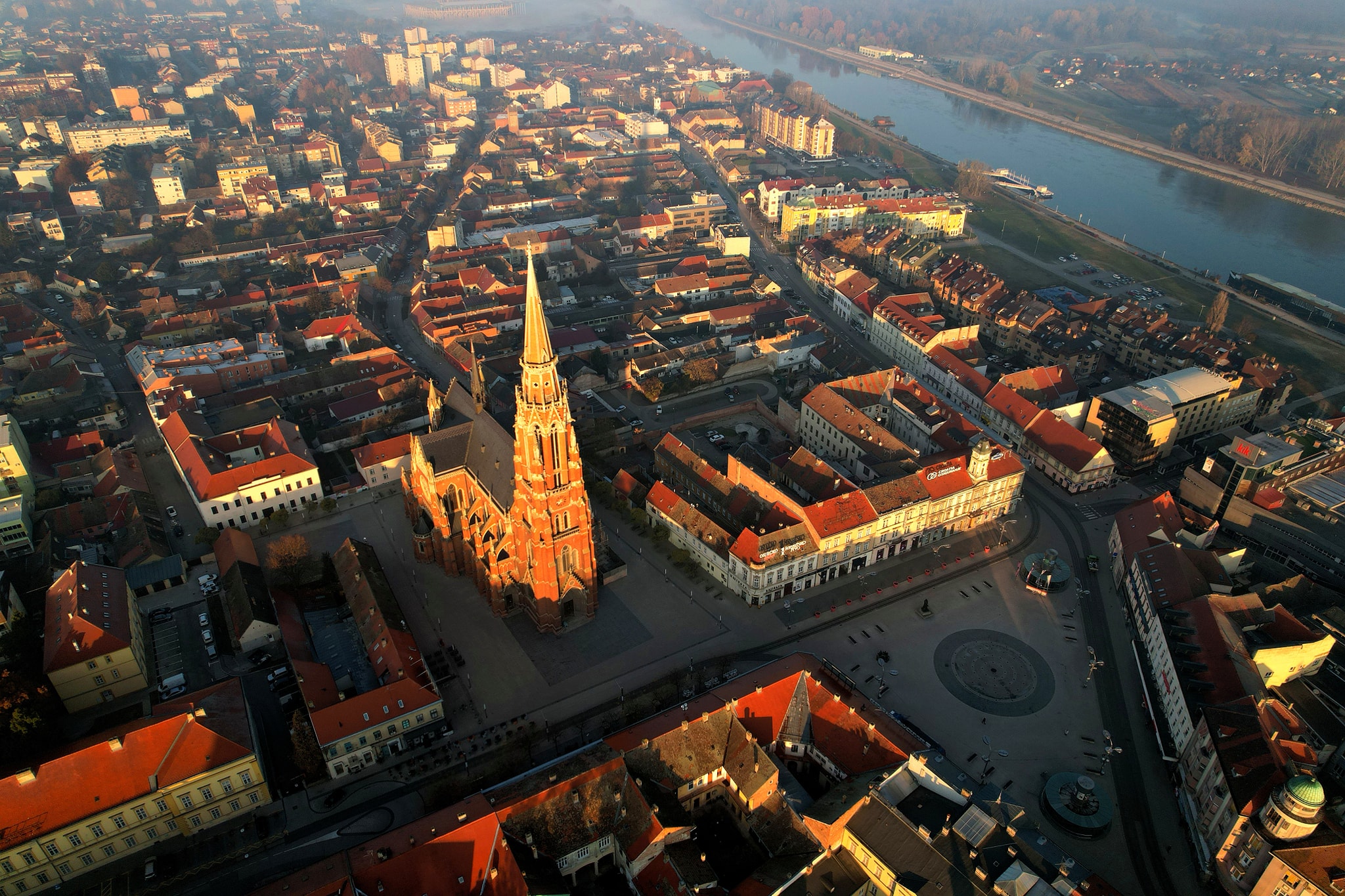
It was one of the biggest surprises of my time in Croatia. This black hole of depression in the minds of many locals was actually one of the most vibrant places in the country, with a VERY lively scene, superb nature, stunning architecture, fabulous food and wine at a fraction of prices on the coast, and probably my favourite part of my initial Slavonian experiences - the people. Such warmhearted and welcoming people who may have next to nothing, but they would share it with you. And they sure knew how to party.
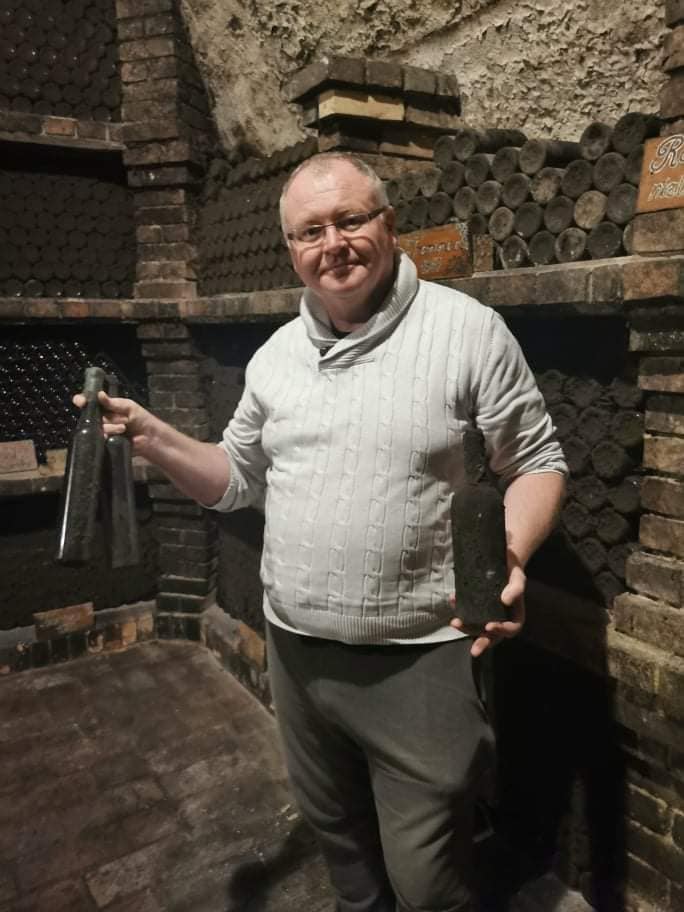
(Secrets of the East - where else can you try (or at least hold) the wines served at the Coronation of Queen Elizabeth II in 1953, and the weddings of Princes Harry and William - the fabulous Ilocki Podrum)
We produced some promo video material recently, one about Dalmatia and one about Slavonia. Both were professionally done, showcasing the beauty of the regions and their towns. A friend in Osijek watched them and complimented me on the production, but had a suggestion:
"They both show the beauty of the regions very well, but there is a difference about tourism between the regions. In Dalmatia, it is more about the beaches, the nature and the coastal towns. In Slavonia, it is much more about the people."
And I have to agree. Nowhere in Croatia have the people made such a strong impression on me - starting with those excellent waiters all those years ago - than in Slavonia. And I was not alone. Speaking to tourists and some locals who had visited, the comments all focused on the food, the vibe... and the people.
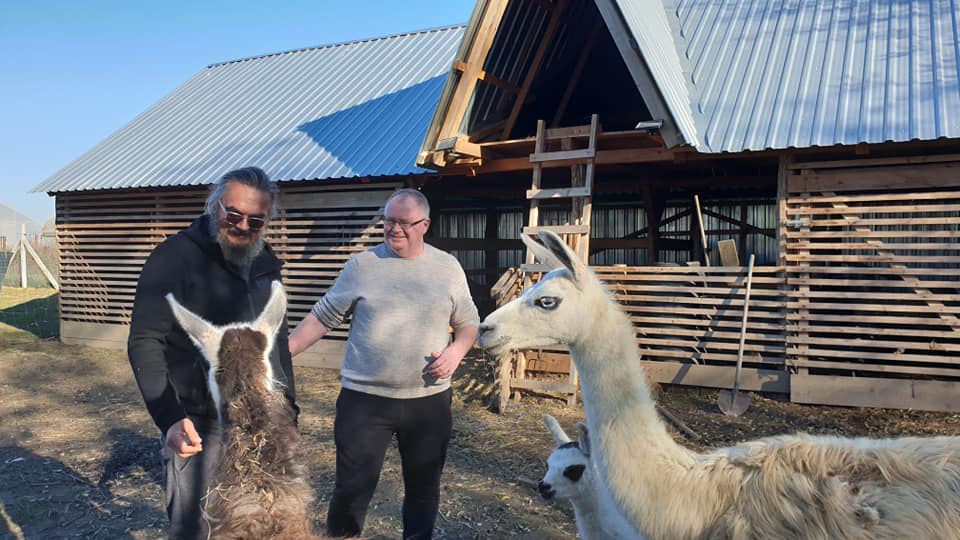
(Hanging out with the llamas and one of the Legends of Slavonia - celebrated photographer Mario Romulic at his incredible Magical Forest project)
Those people... Returning from my last trip, a thought came into my mind on the difference between tourism in Dalmatia and Slavonia, apart from the obvious things such as the sea and beaches. One key difference is that I don't think anyone comes back from Slavonia disappointed with the tourism experience, whereas the same cannot be said of Dalmatia. Dalmatia at its finest is the best place on the planet, but those spots are increasingly hard to find, with a lot of overpriced mediocrity appearing everywhere. Not so in Slavonia, where prices are insanely good, and the hospitality of the people genuine, almost without exception.
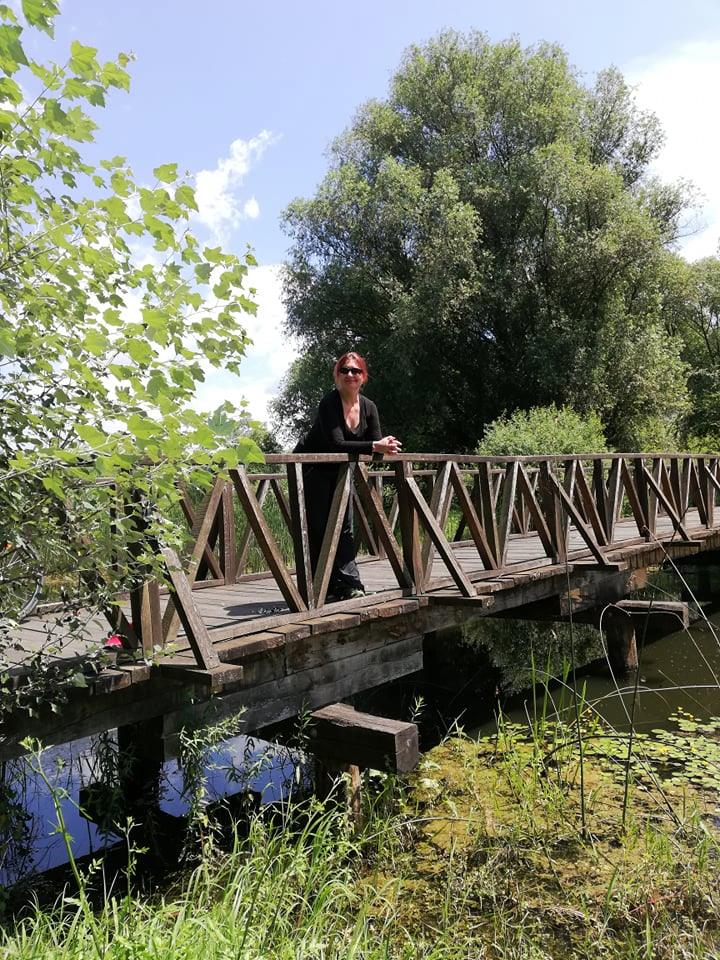
(Digital Nomad Julie Odler enjoying the wonders of eastern Croatia, her temporary home back in 2019)
I remember when I first started writing positively about Slavonia, there was a great deal of skepticism. Paul, you are always very positive about Croatia, but really how many other foreigners feel the same way as you do? But those comments stopped when I published an interview with a digital nomad living in Osijek in 2019. Julie had swapped life in Denver for Osijek, declaring it as the best place she had lived as a single female. The article was picked up by the national media and went viral - one of the few positive stories about life in the east against a tidal wave of negative stories of emigration in the national media.
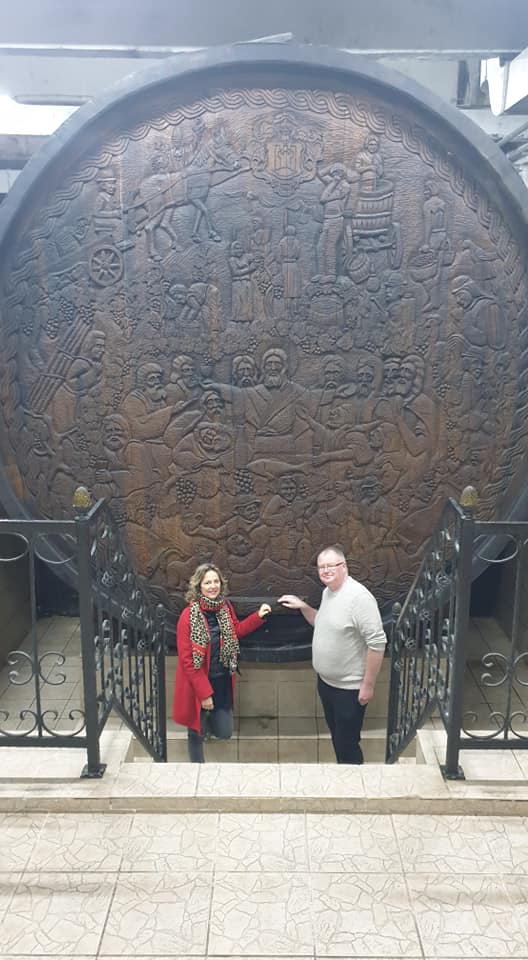
(With 75,000 litres inside, what is claimed to be the world's largest oak barrel in continuous use, in Erdut)
And every time I came back from Slavonia, I felt energised and tried to share that energy with friends here. But few understood or even believed, for Slavonia was the land of emigration and economic decline, devastated by war.
I am certainly not the only foreigner to report on that amazing energy. One of my favourite stories in tourism happened in December 2015, when a (I think) Frenchman called Pascal Tang posted a viral video about Slavonia and its people. It was hailed as one of the best promotions of Slavonia and was all over the Croatian media, with calls for the Croatian National Tourist Board to perhaps learn from this volunteer enthusiast. The tourist board responded to the criticism when the then Director of the Croatian National Tourist Board apparently happened to be in Paris where a meeting and invitation was arranged.
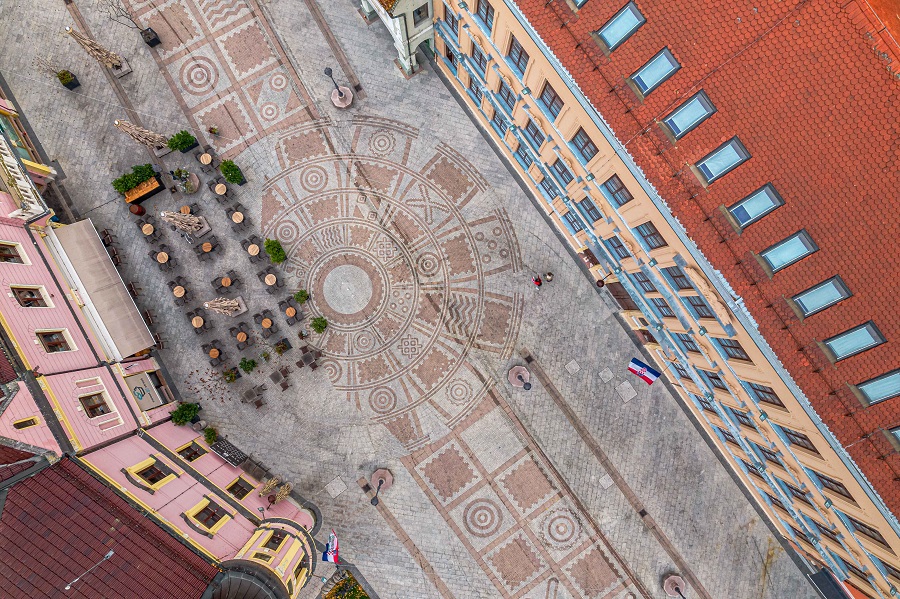
(Symbols of the world's oldest Indo-European calendar, the Orion, which was found in Vinkovci, the oldest continuously inhabit town in Europe, more than 8,300 years)
Last November, I decided to try and show just how magical Slavonia and eastern Croatia really was. Over a beer with videographer/writer Steve Tsentserensky, an Amerian digital nomad, I asked him what he knew about eastern Croatia. War, Vukovar, that's it, he replied. I asked him to give me 6 days of his time, to bring his cameras and drone, and I would show him an itinerary and part of Croatia that would blow his mind.
He agreed, and I worked with the fabulous tourist board directors of Osijek-Baranja County, Ivana Juric, and Rujana Busic Srpak of Vukovar Srjem County to put together an itinerary from Ilok to Baranja and all the magnificence in between.
It was easily the best tourism trip I have had in my 20 years in Croatia.
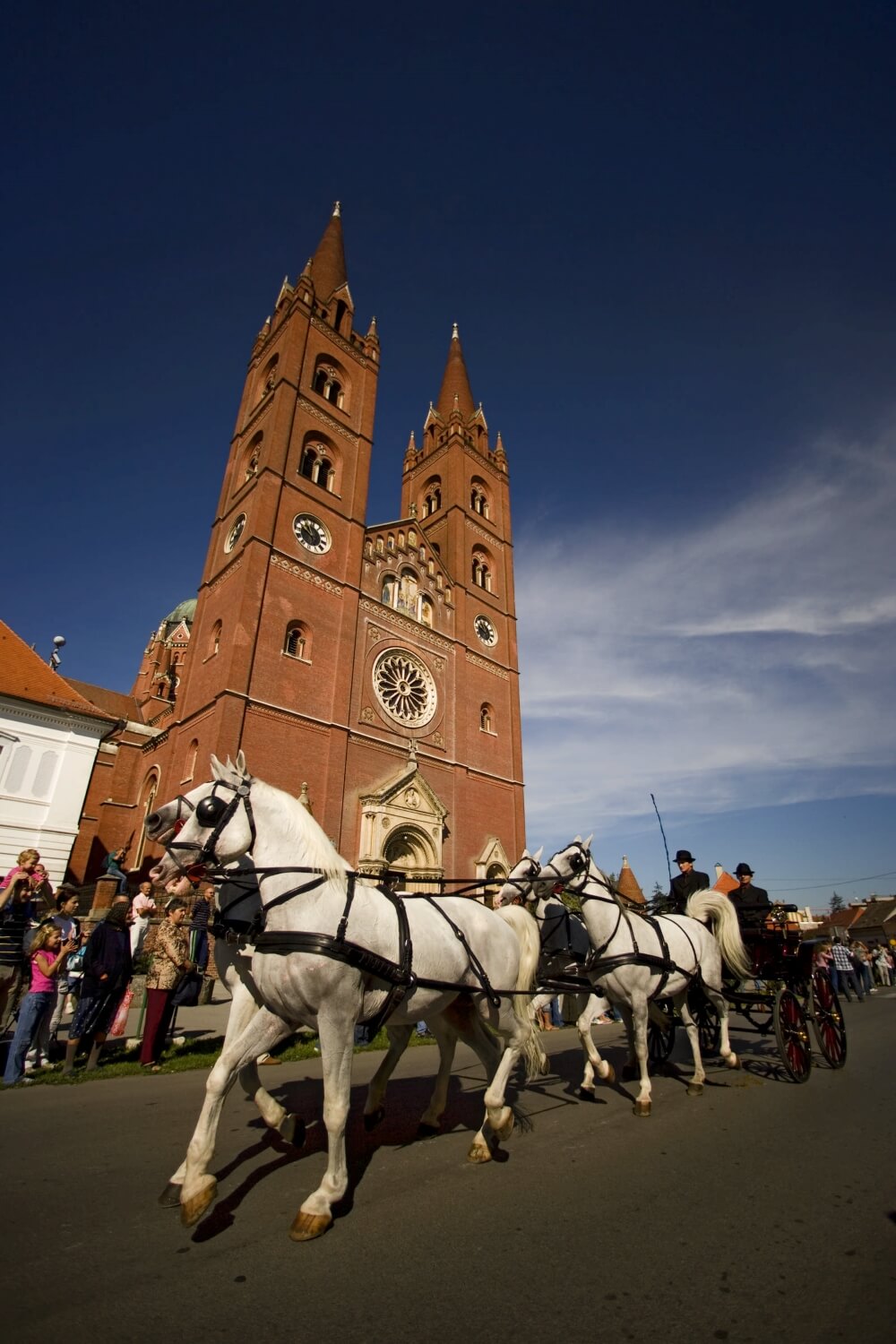
(The magnificent cathedral in Djakovo, home to the world-famous Lippizzaner horses - it is 50 years since the Queen came to inspect them)
In Slavonia and eastern Croatia.
In November.
And I posted a LOT on social media, every step of the way, with many locals commenting things like that - WOW, where is that? it is your country, dude.
Steve put together a video for us for our CROMADS projects - how many places in eastern Croatia do you recognise, above. Go on, take the test, how many can you name? If you want to learn more about this amazing region, here is the extended article I did, detailing the trip - Time to Tell the Truth about Slavonia Full of Life.
The energy in Osijek was INSANE. Nightlife in Osijek in November versus Split? Absolutely no contest.
When I got back to Zagreb, I was busy telling my friends about how amazing Slavonia was and when was the last time they visited. Osijek is just over two hours by car from Zagreb, after all, much closer than Split. I was a little taken aback at how few of my Zagreb friends had been. Hvar I could understand, as it was so far away, but Zagreb?
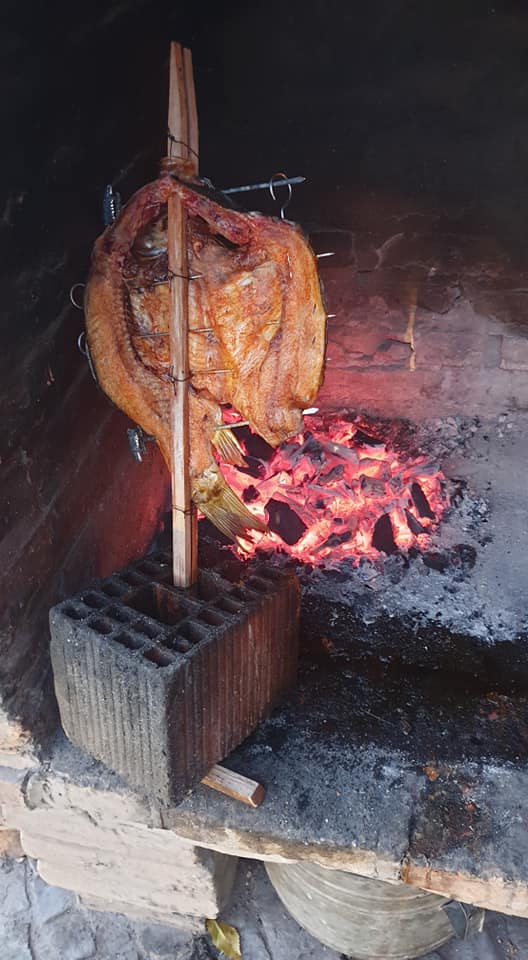
(A land where the river fish rules alongside meat, meat, meat)
I decided to post on Facebook. I never complain on social media (or should I say never whine), as there is no point, but here is what I posted.
I am genuinely and honestly shocked at how many of my Croatian friends tell me that they have never been to Slavonia. Guys, you are missing out big time. Osijek is the most fun place to be at this time of year.
Among the first responses I got was this, which attracted several likes:
It's hard to travel as a local when avg salaries are 4-6000 kunas a month ( $600-1000)
I decided to modify my post:
I am genuinely and honestly shocked at how many of my Croatian friends tell me that they have never been to Slavonia, but are among the 200,000 who go skiing abroad each year and so have money. Guys, you are missing out big time. Osijek is the most fun place to be at this time of year.
Silence.
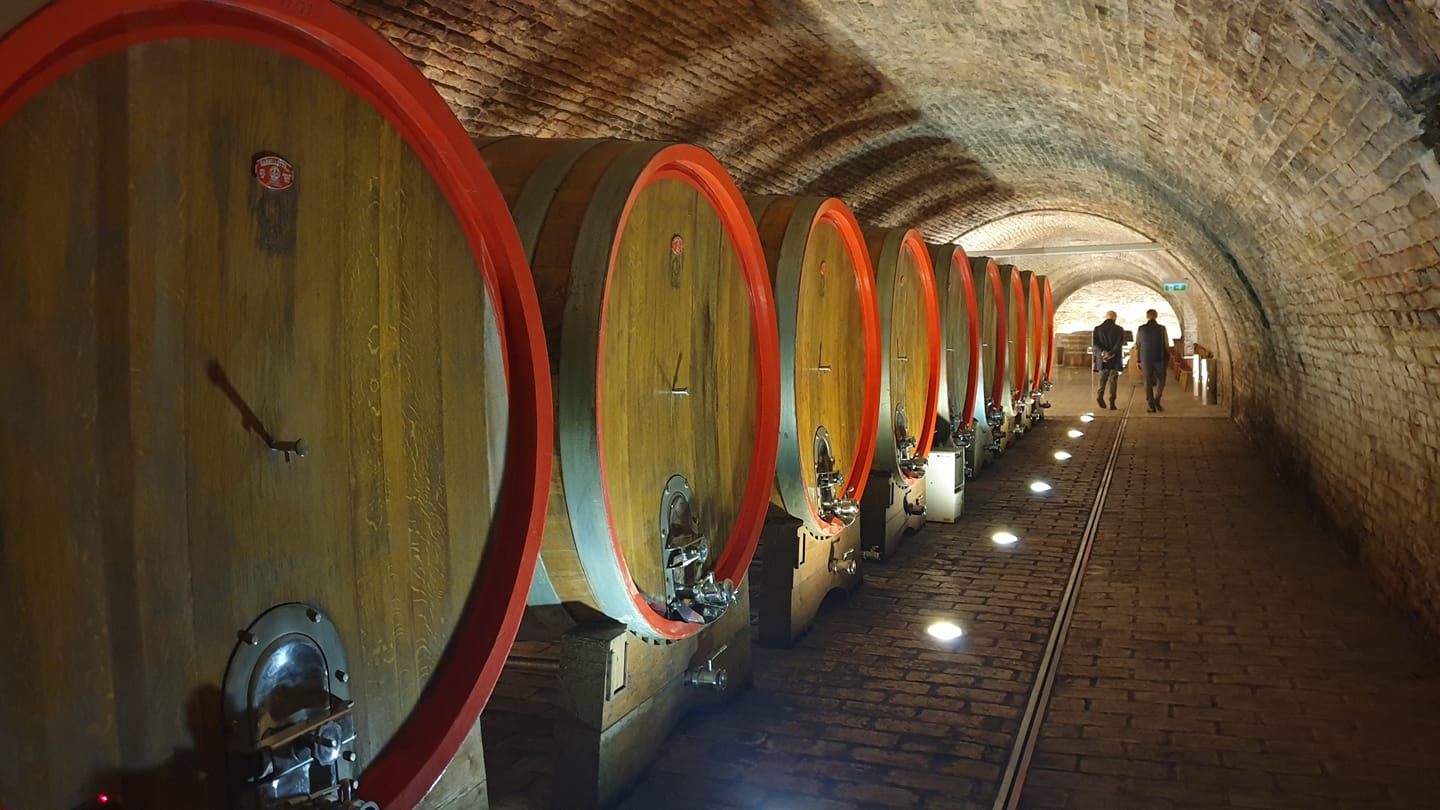
(The superb Belje cellars in Baranja)
And then things got really interesting.
An educated tour guide friend of mine from Dubrovnik was in town, and we met for a beer. The conversation turned to Slavonia (no, he had never been), and I said I would like to ask him 3 questions. I have asked these questions to 60 locals in Zagreb over the last 6 months. Only TWO have got them all right. Can you answer all three?
1. What is the main town in Baranja?
2. Can you name 3 famous buildings in eastern Croatia, NOT including the Vukovar Water Tower?
3. Can you name 3 Slavonian dishes NOT including kulen?
Fifty-eight out of 60 people I asked in Zagreb couldn't. Can you (if you are not from or connected to the east)?
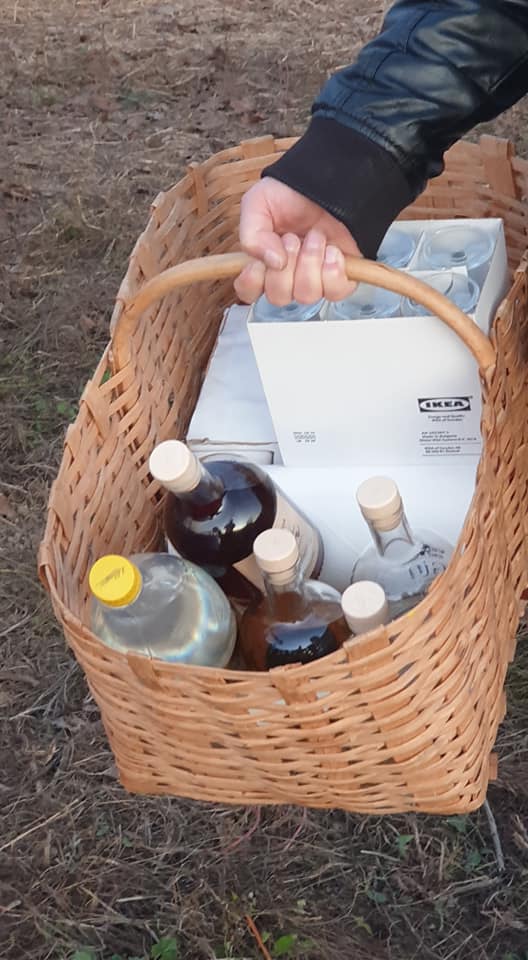
(A Slavonian picnic basket)
Although my interest in writing about tourism in Croatia is waning after all these years (let's face it, when the main strategy is to provide sun and sea and wait for tourists to come, there is little new to write about after a decade), the Slavonian tourism story has lots of untold gems. I made an appointment to see Minister of Tourism and Sports, Nikolina Brnjac, earlier this year, and she gave her enthusiastic approval for some initiatives I proposed. This included the offer of a ministerial letter of support for my Vukovar Card initiative (you can read about it in Vukovar Card: Support Local Economy Rather than Temporary Facebook Status, but I will be dedicating one article in this series entirely to Vukovar to explain it in more detail - there is a lot which needs to be said).
To the MANY Slavonians I have met over the years, I thank you for enriching my Croatian experience. Dalmatia will always be my first Croatian love, but the heart of Croatia is Slavonia.
****
What is it like to live in Croatia? An expat for 20 years, you can follow my series, 20 Ways Croatia Changed Me in 20 Years, starting at the beginning - Business and Dalmatia.
Follow Paul Bradbury on LinkedIn.
Croatia, a Survival Kit for Foreigners will be out by Christmas. If you would like to reserve a copy, email This email address is being protected from spambots. You need JavaScript enabled to view it. Subject 20 Years Book



